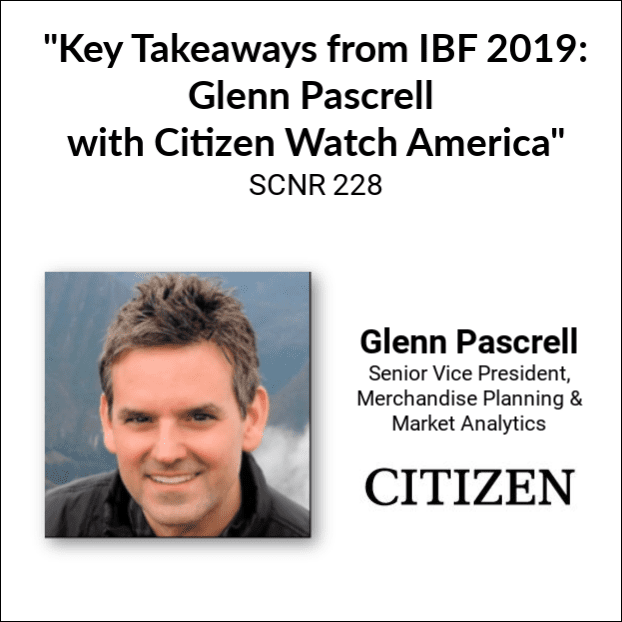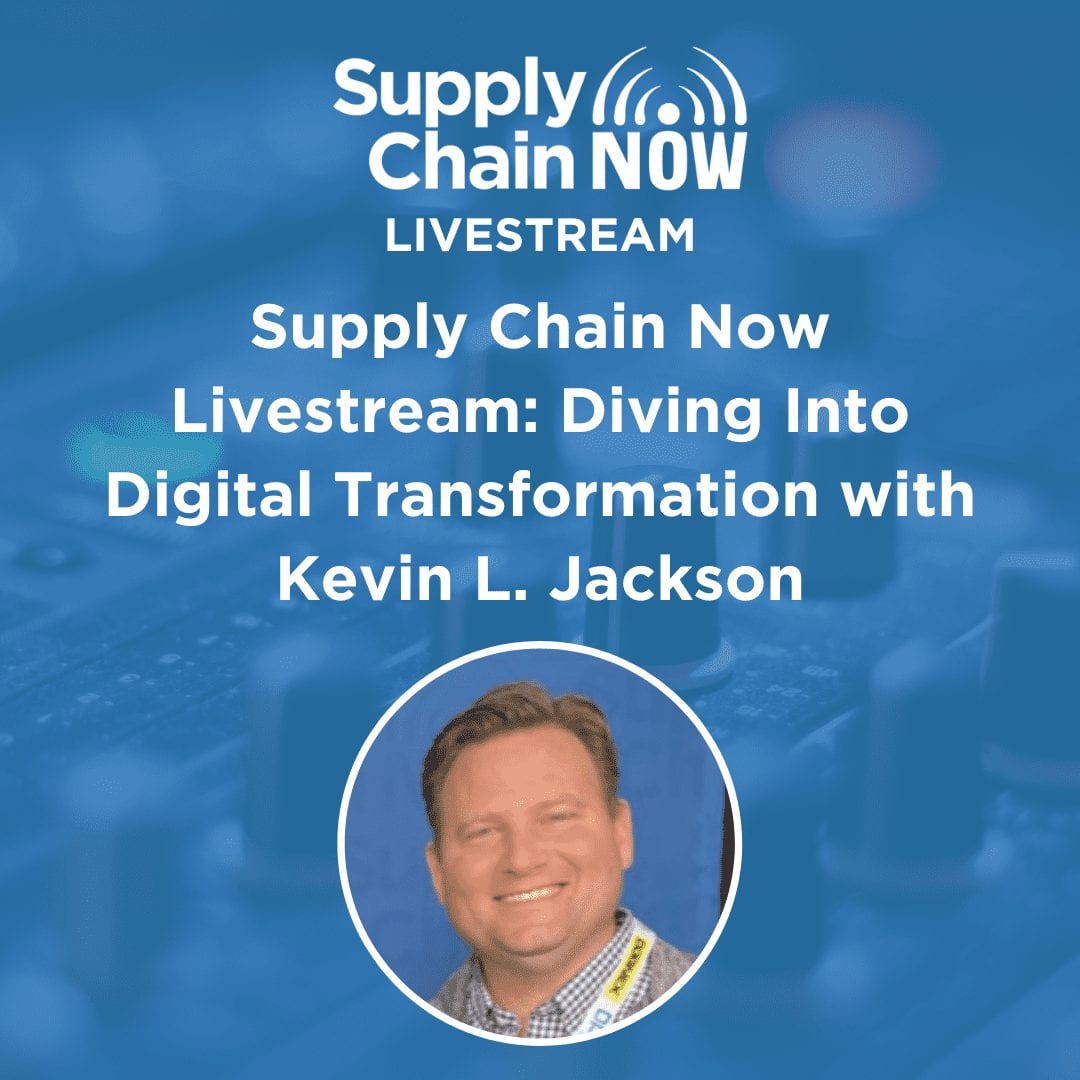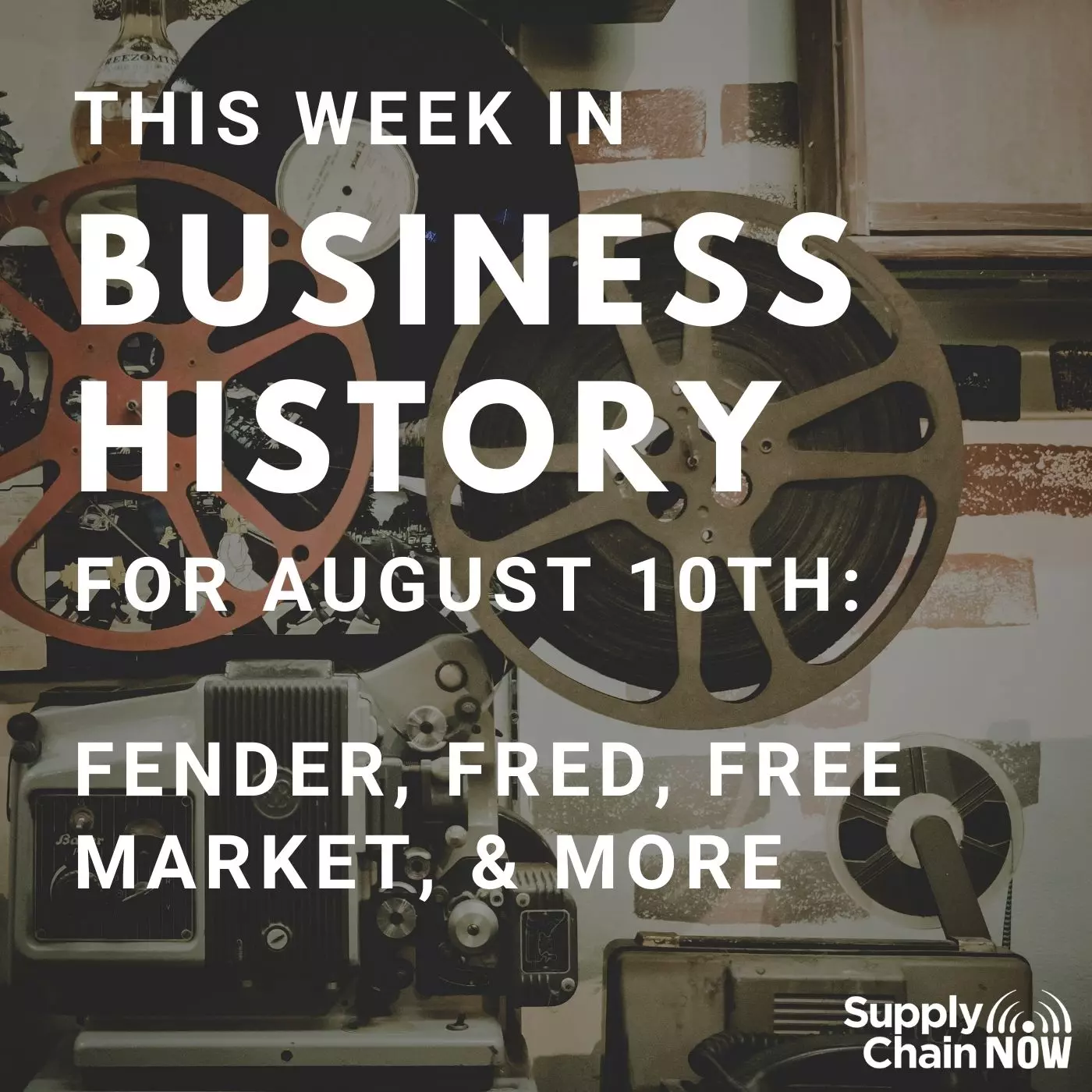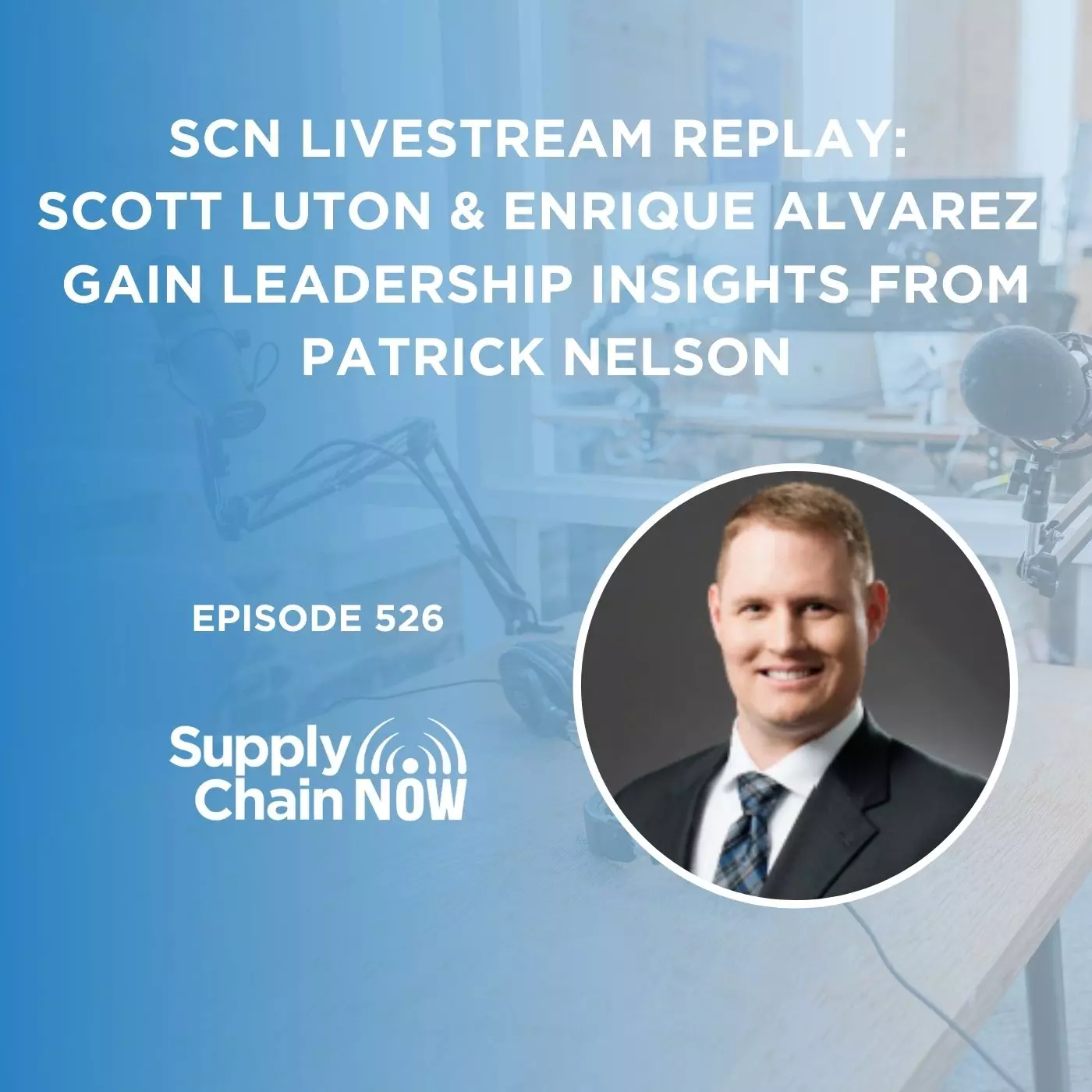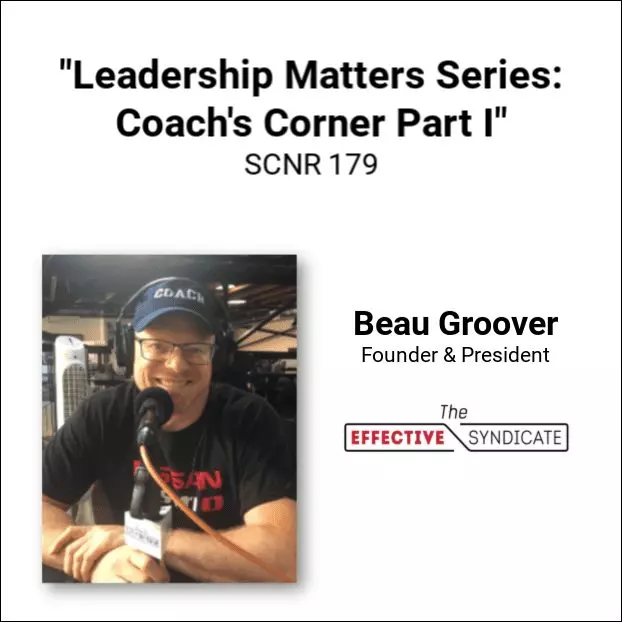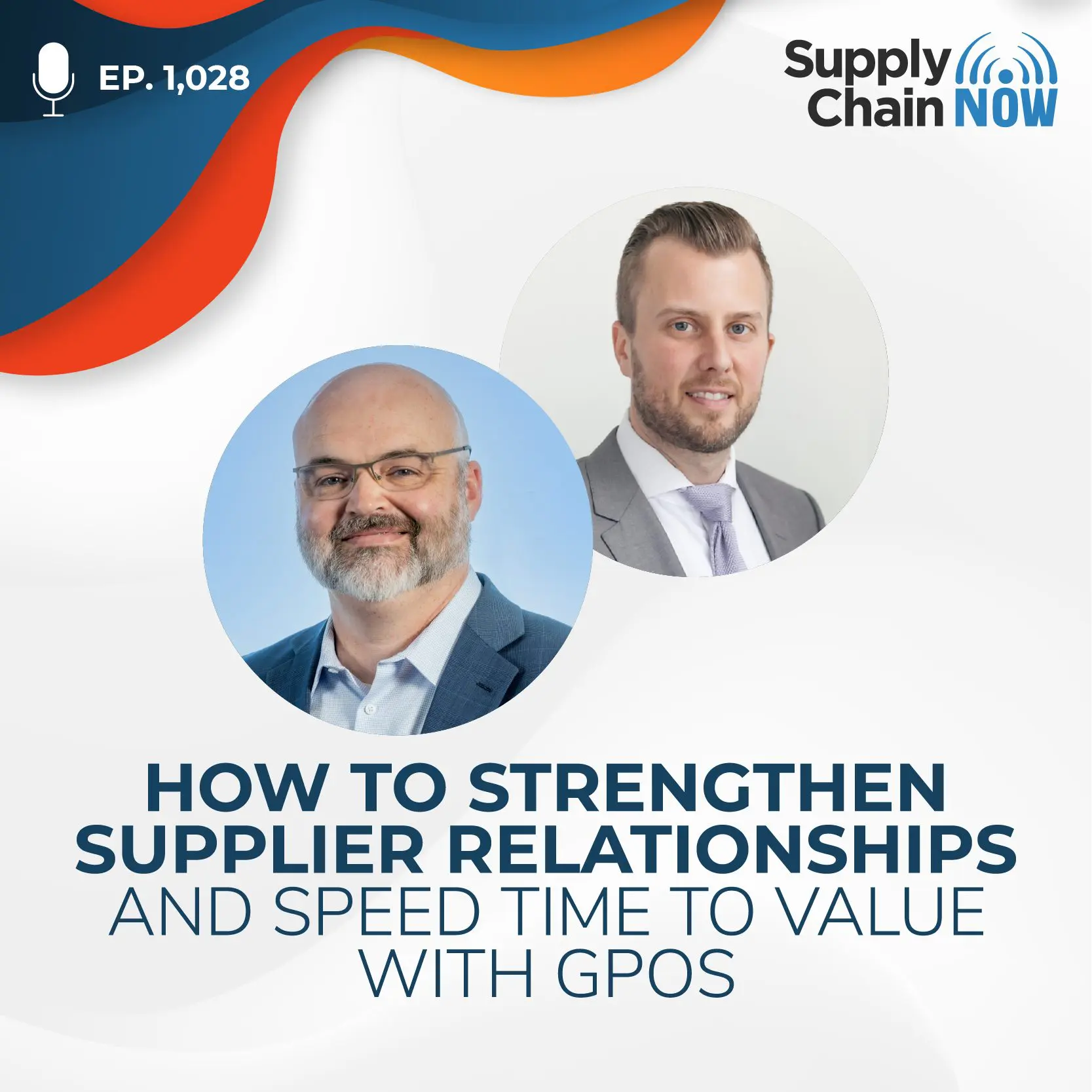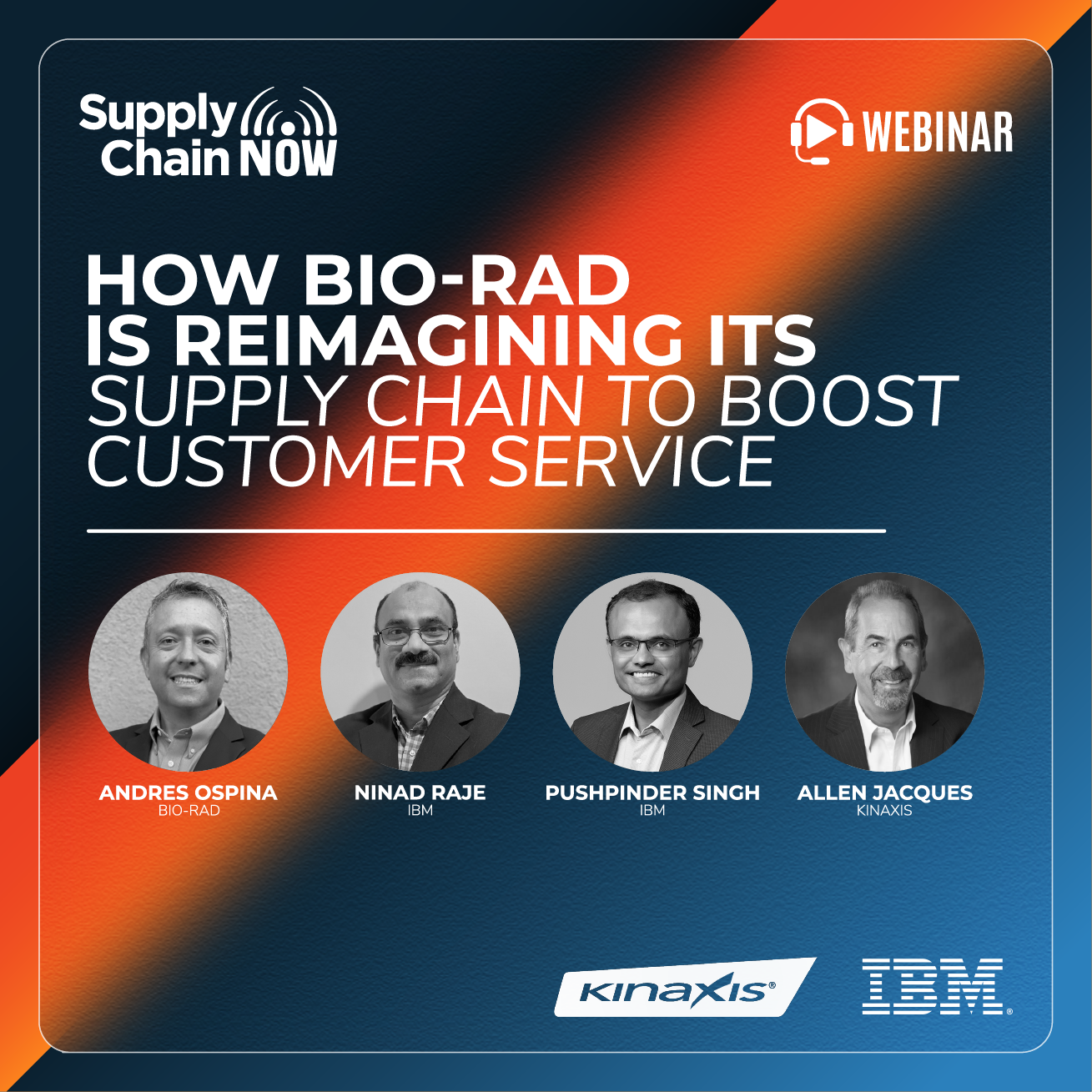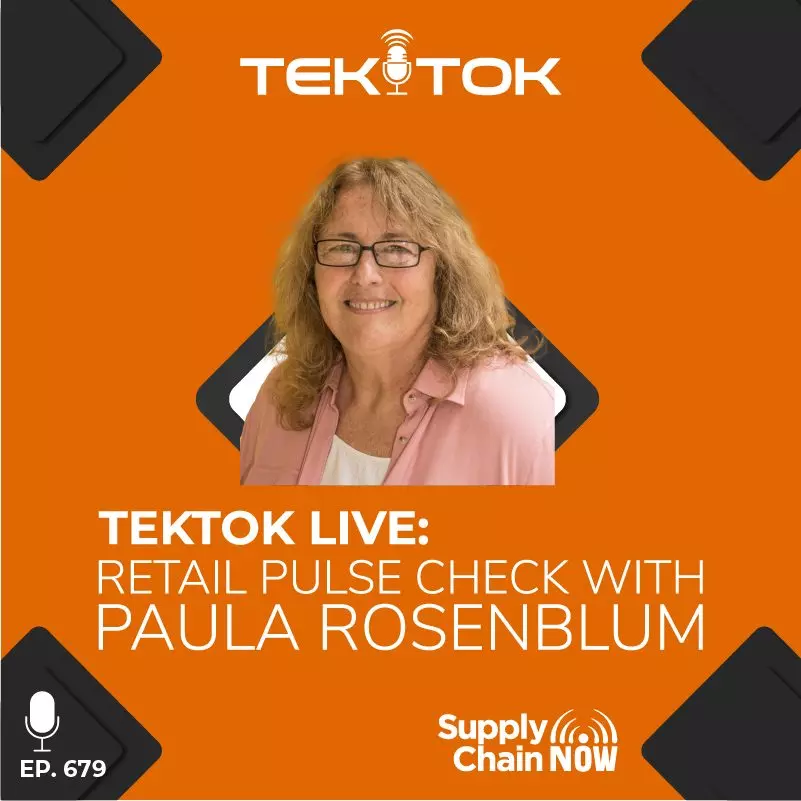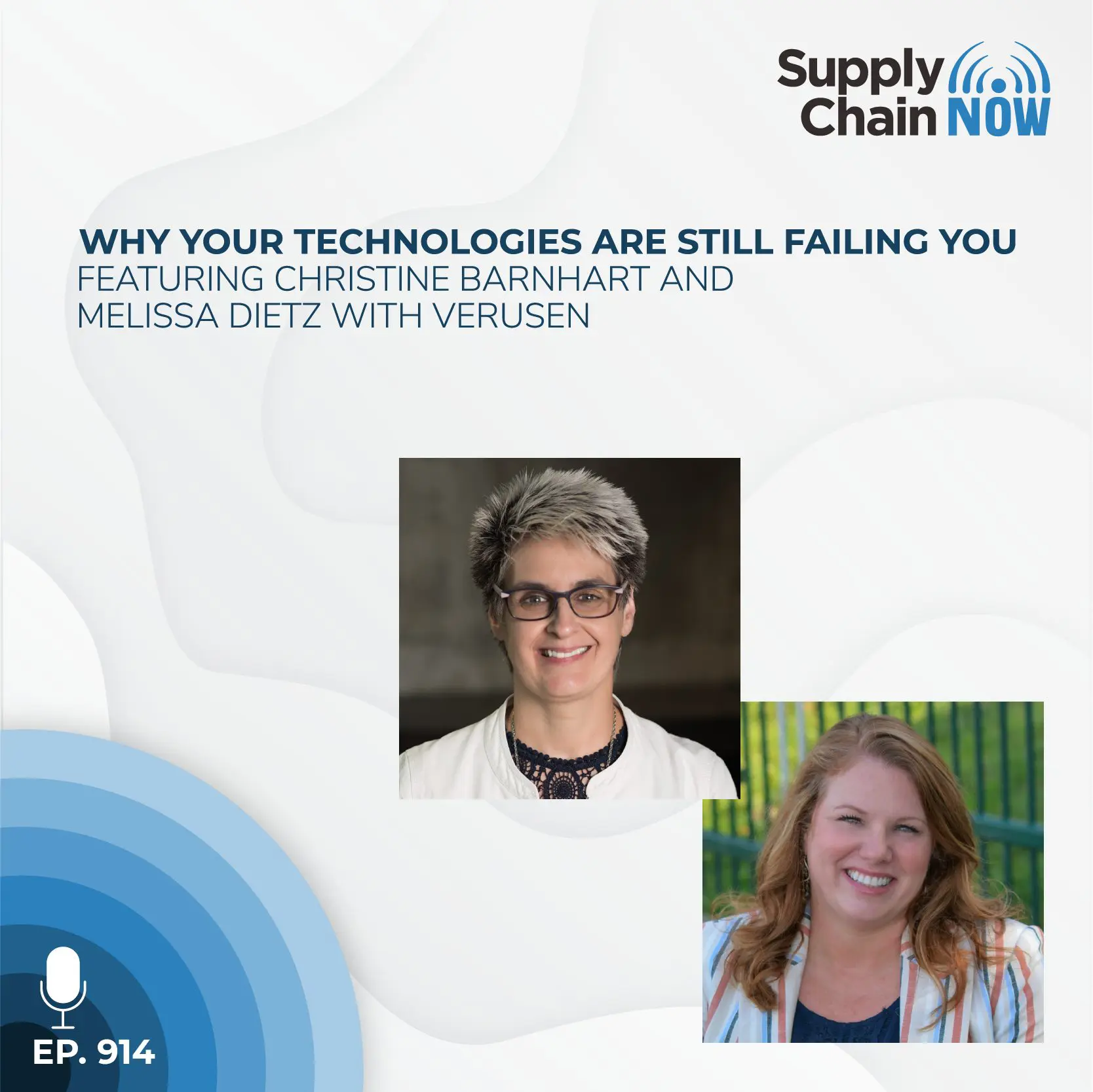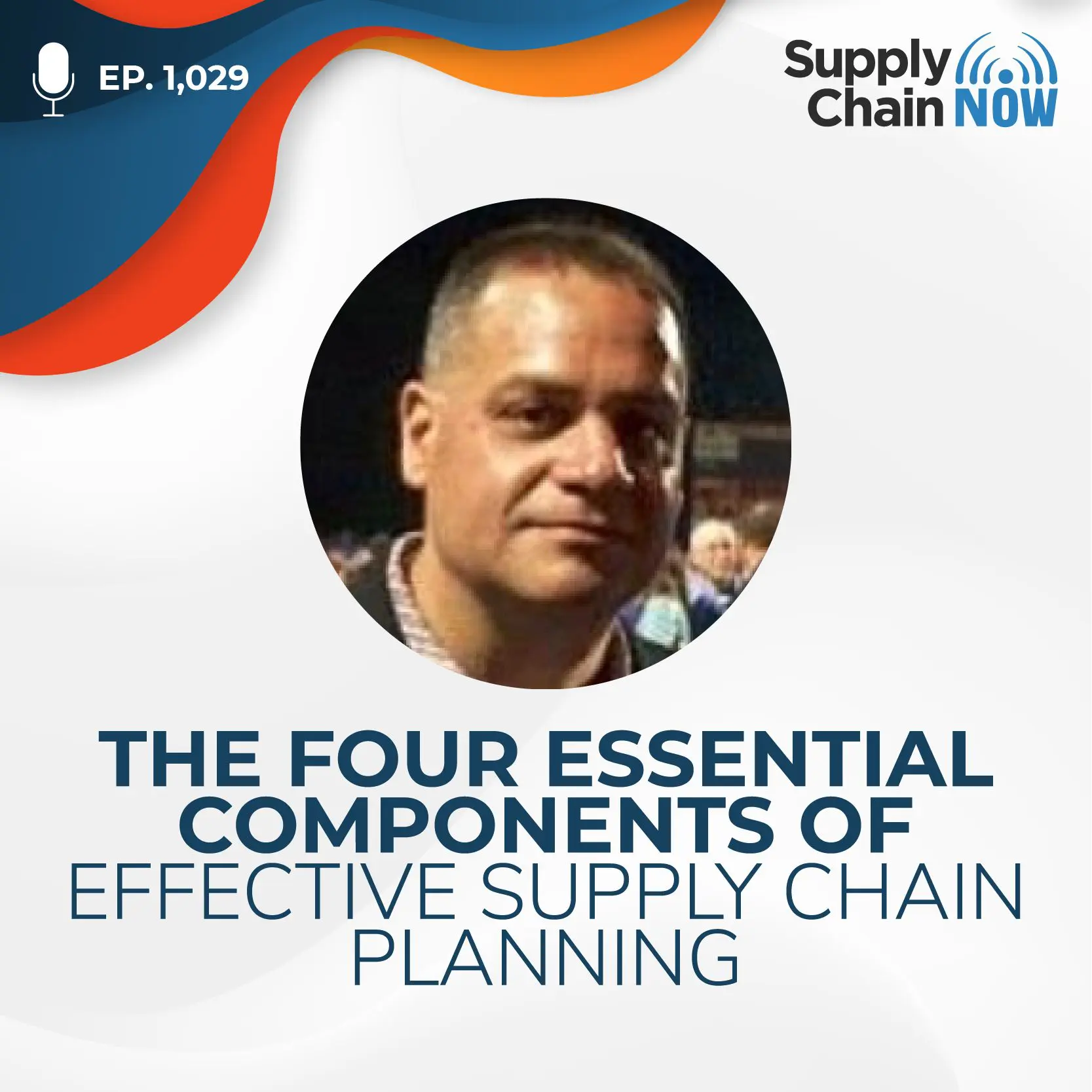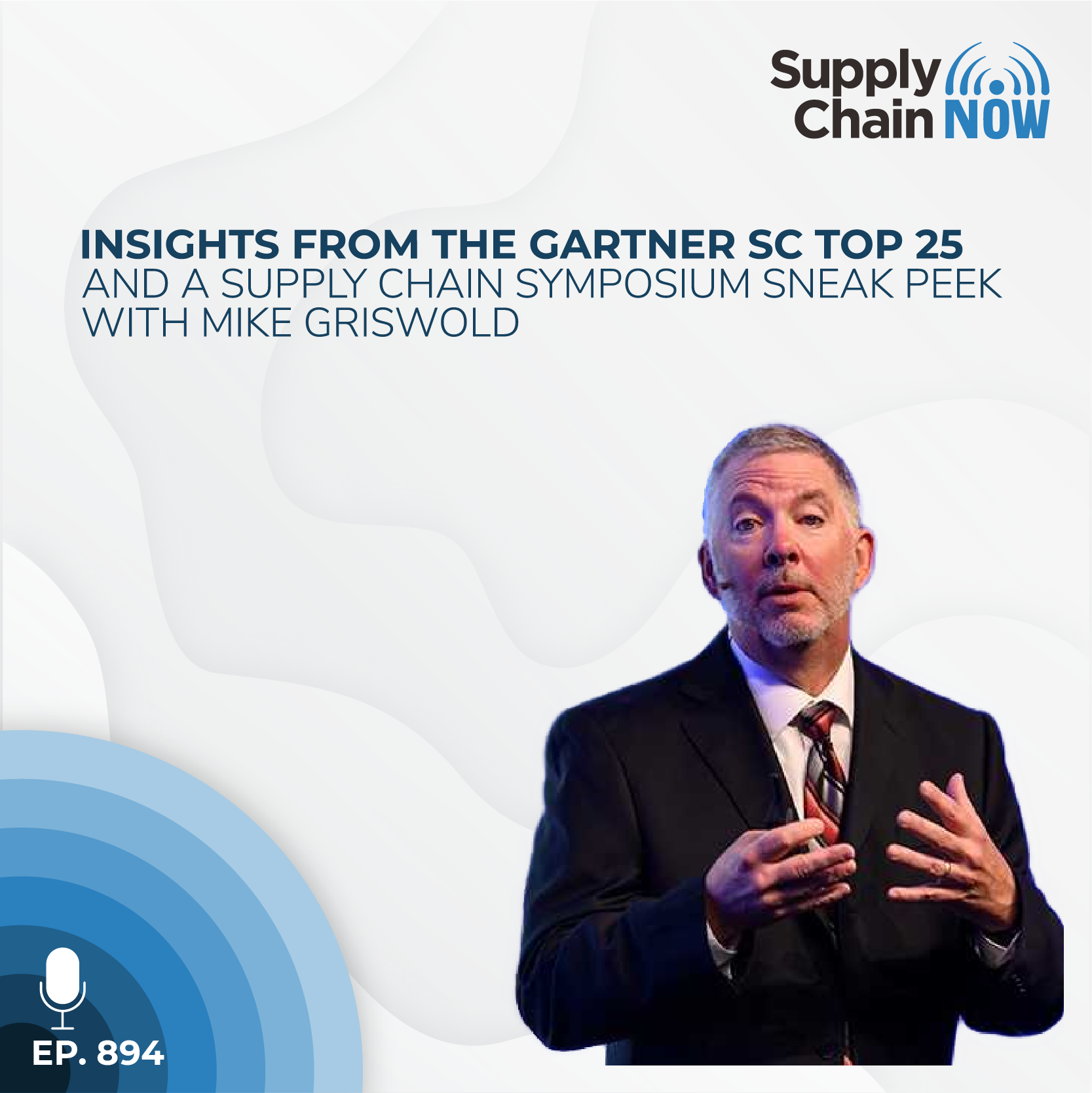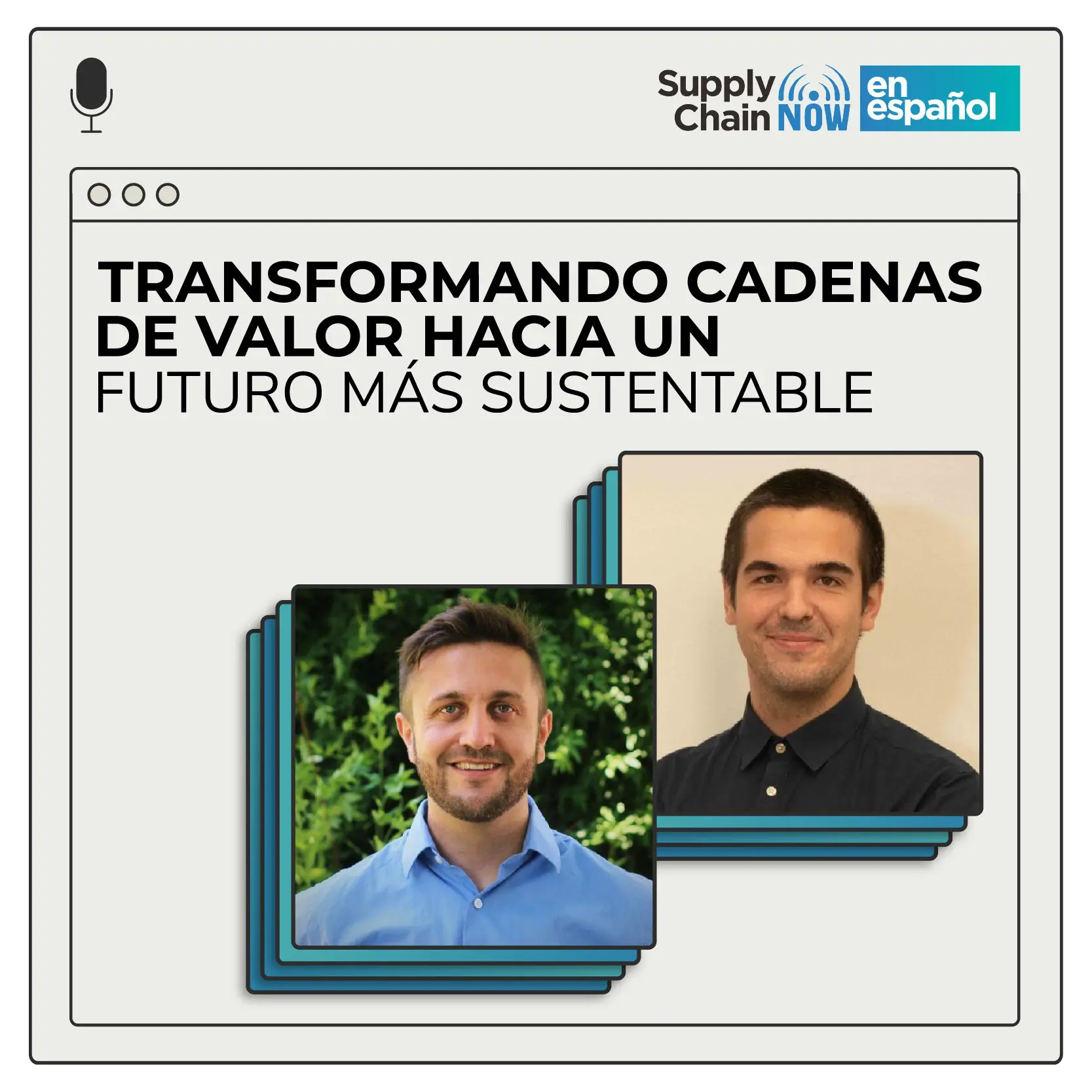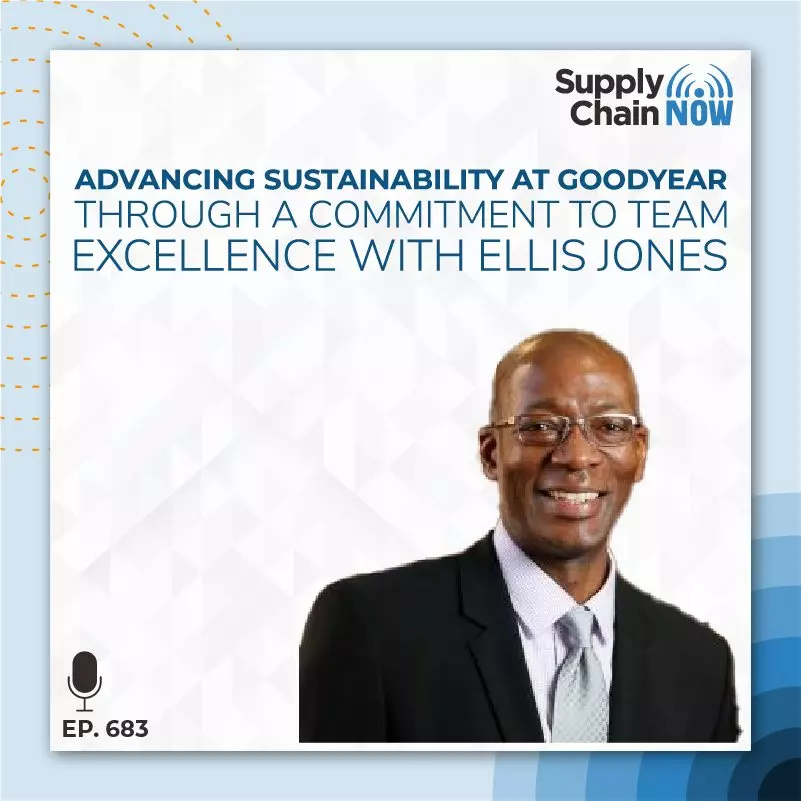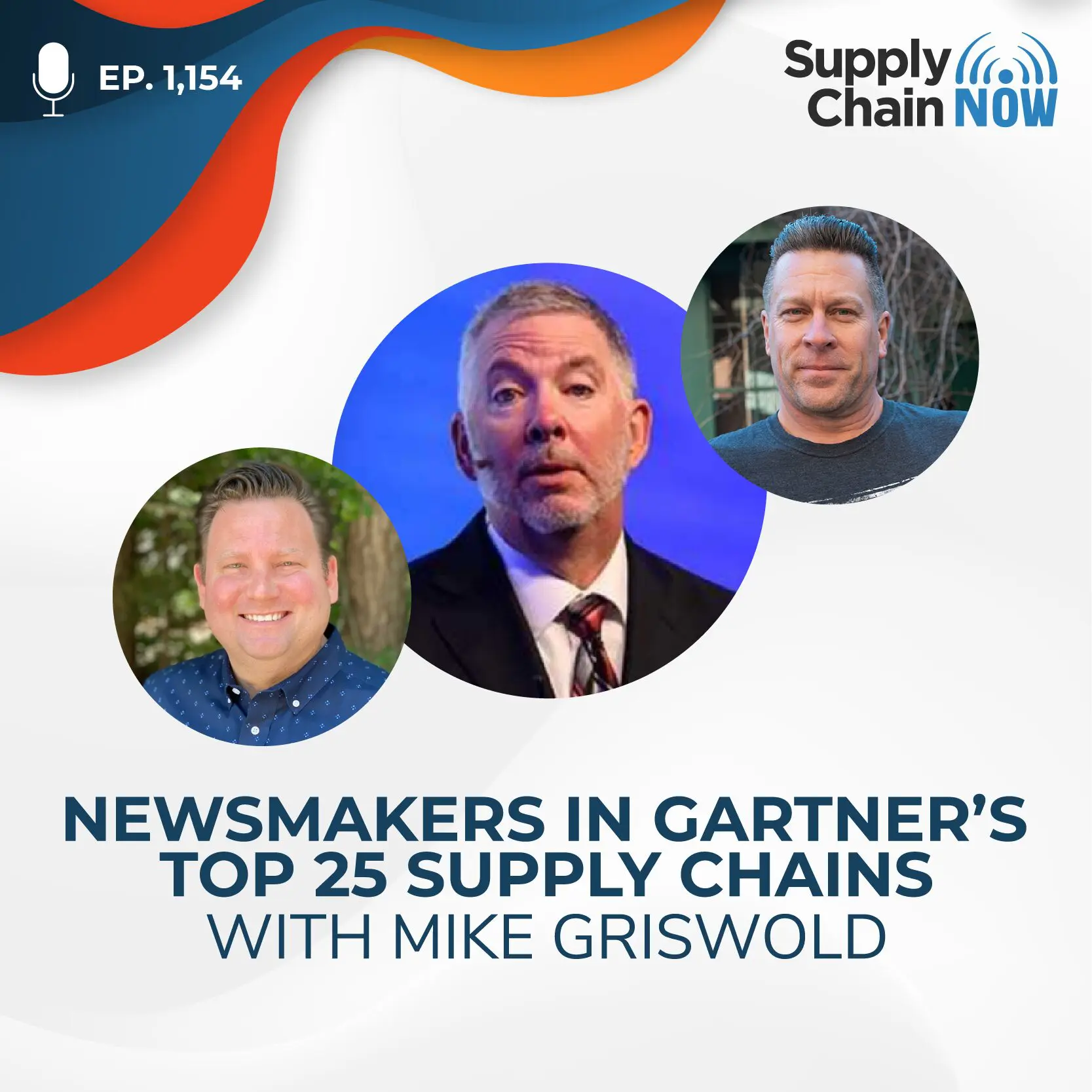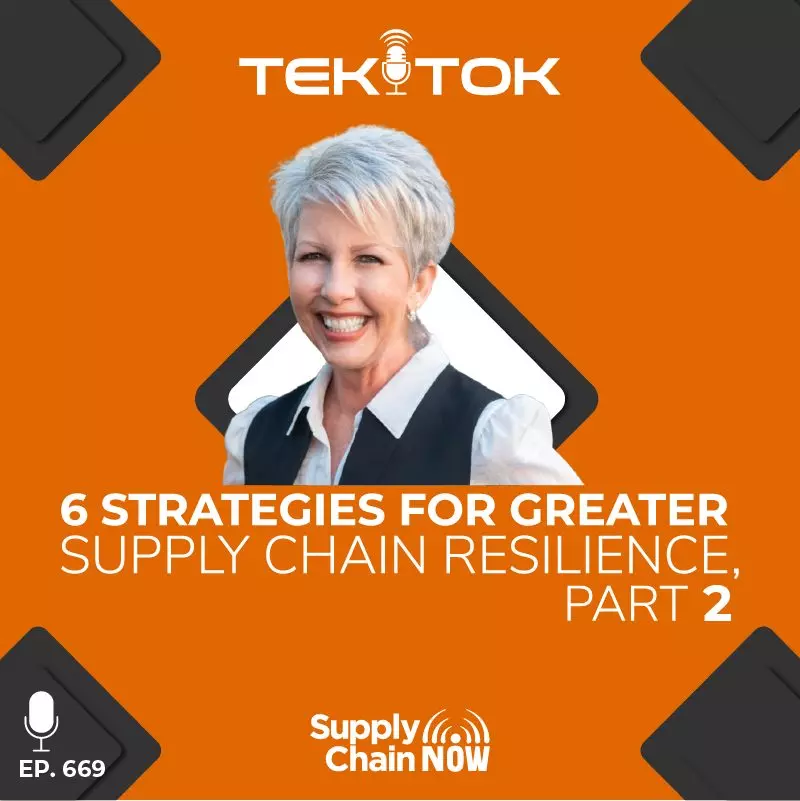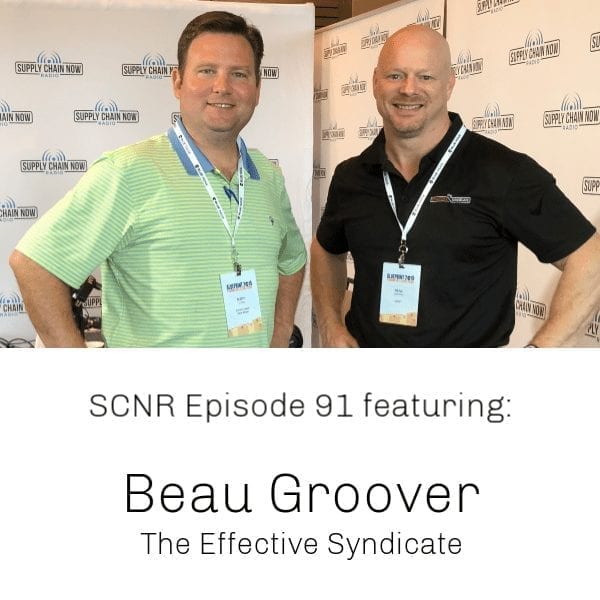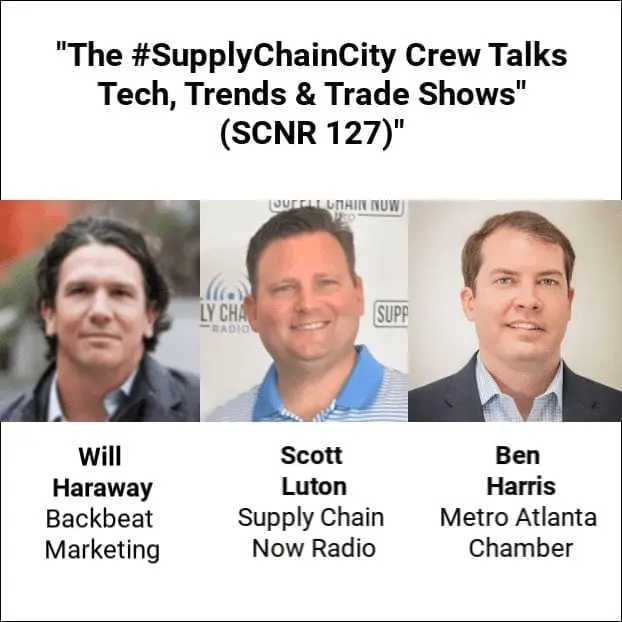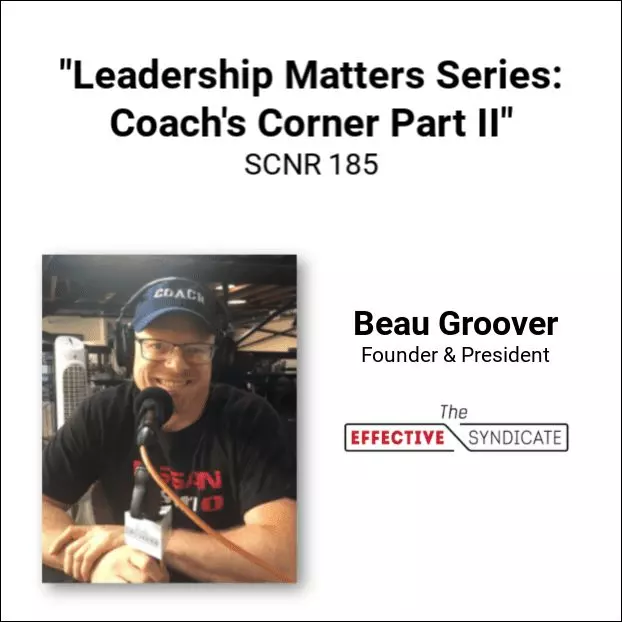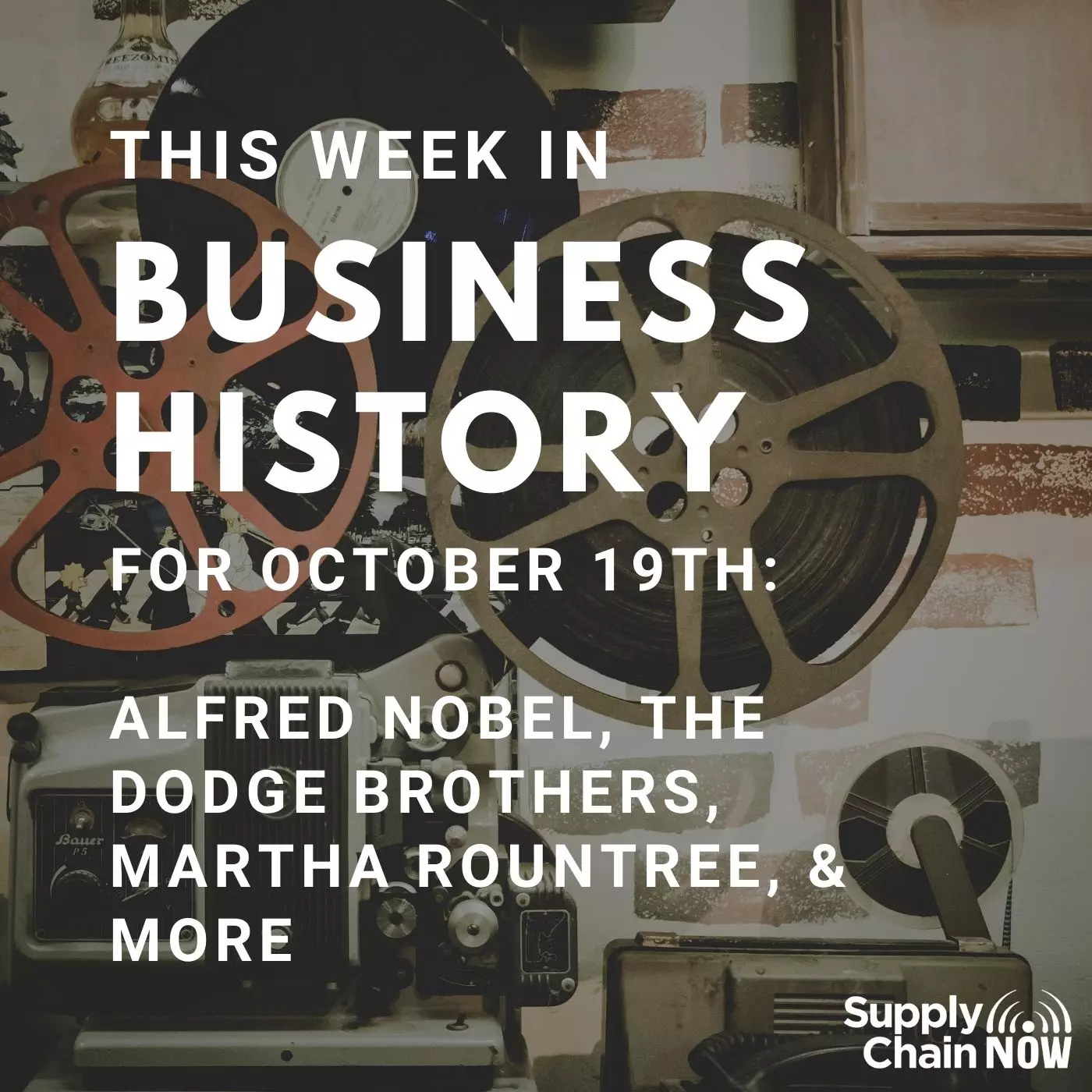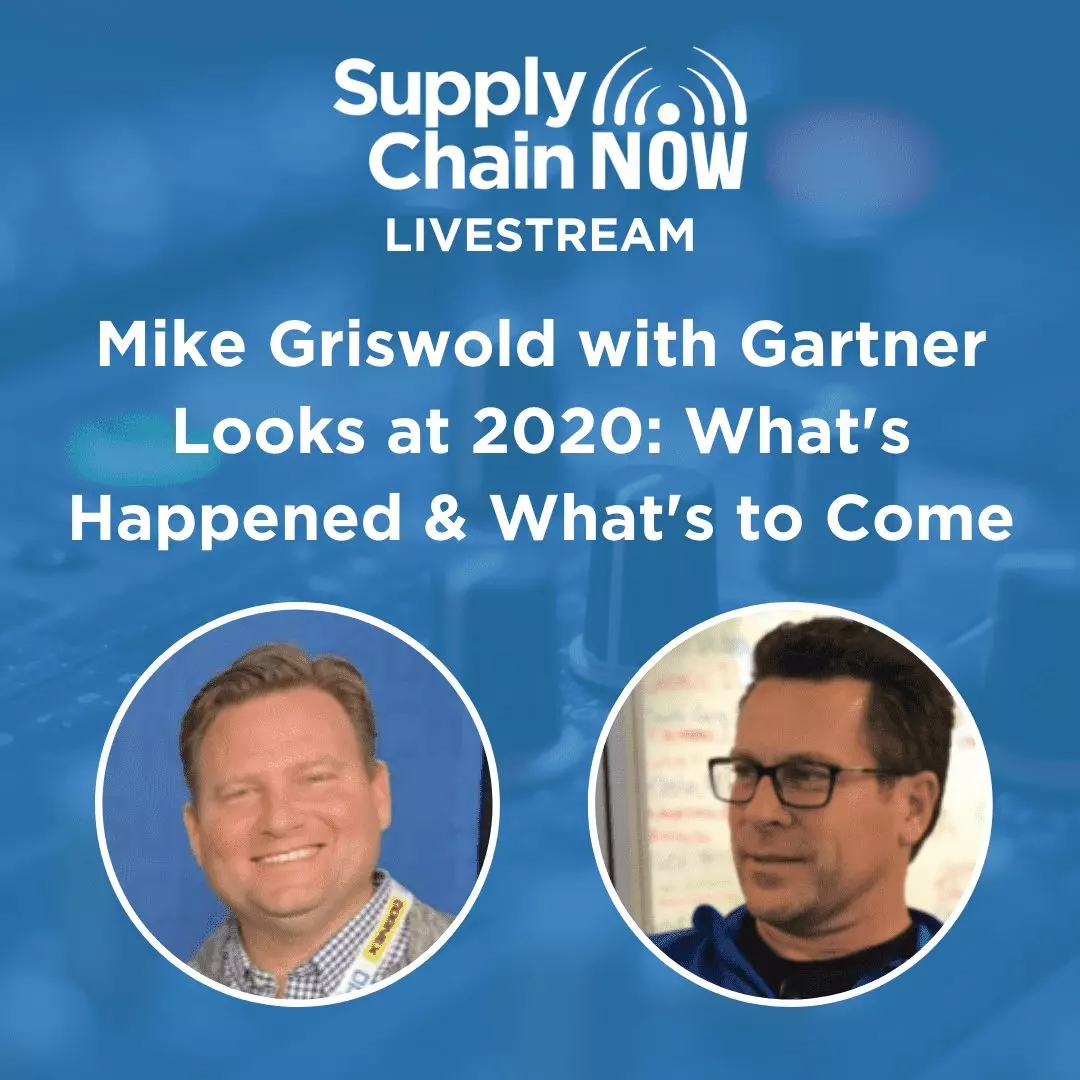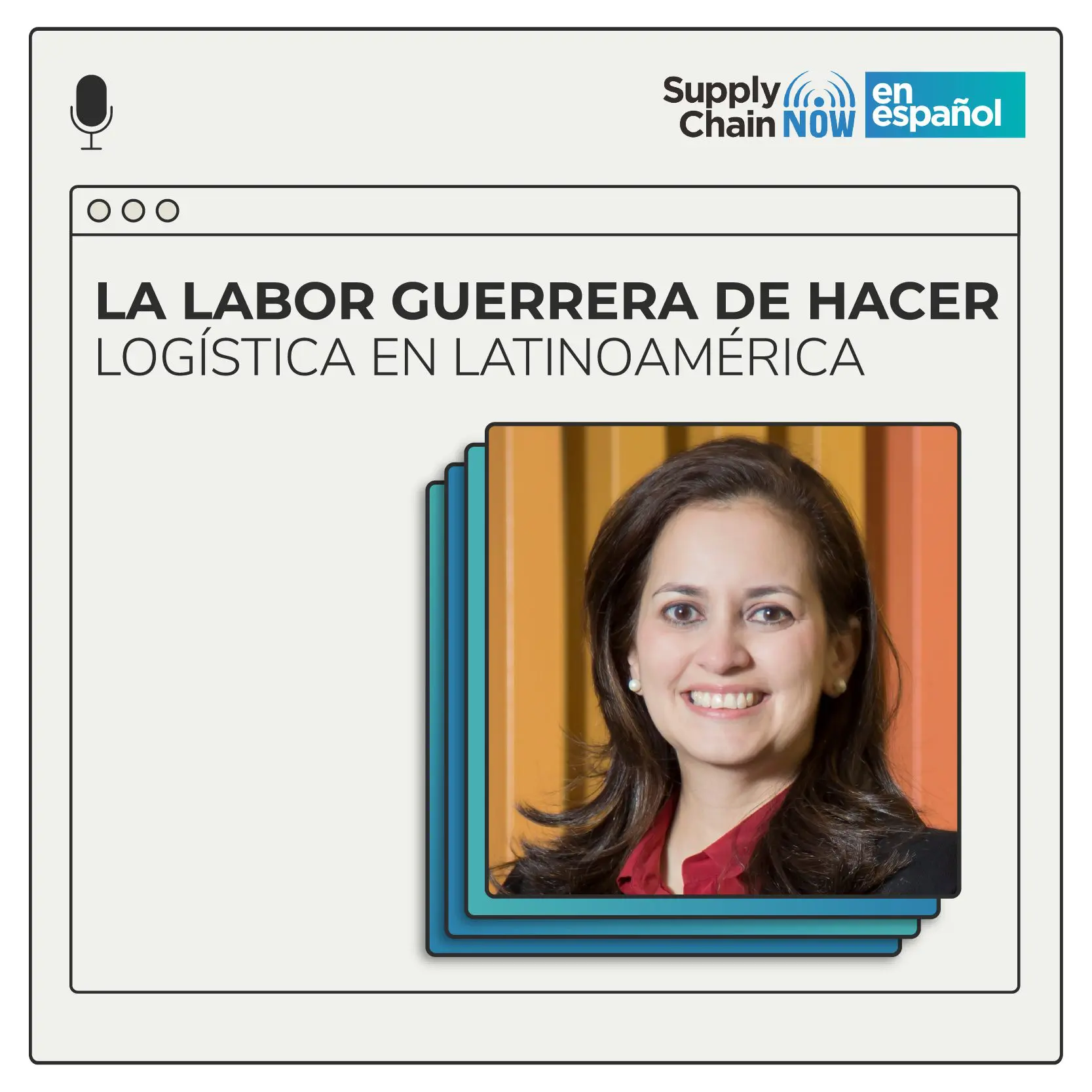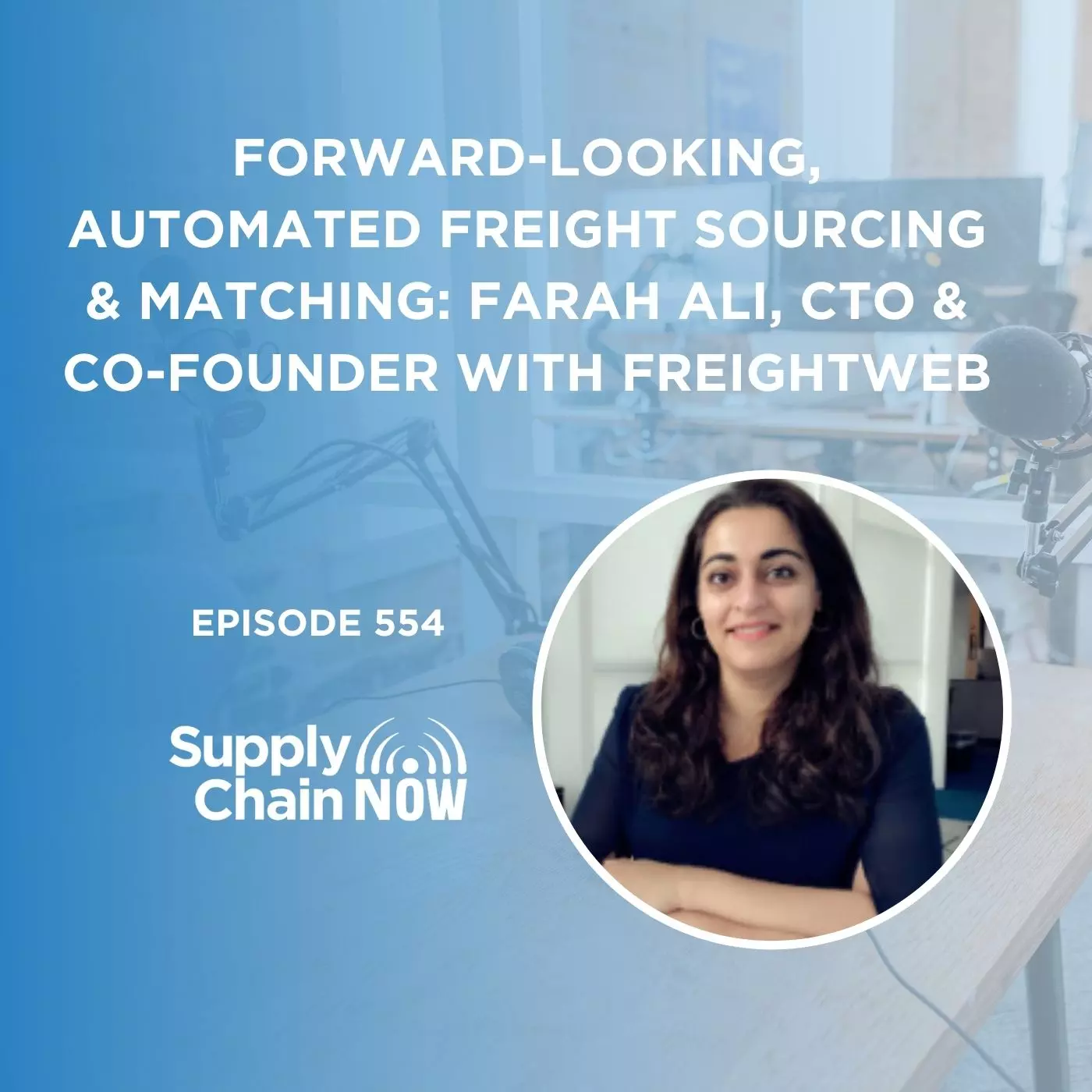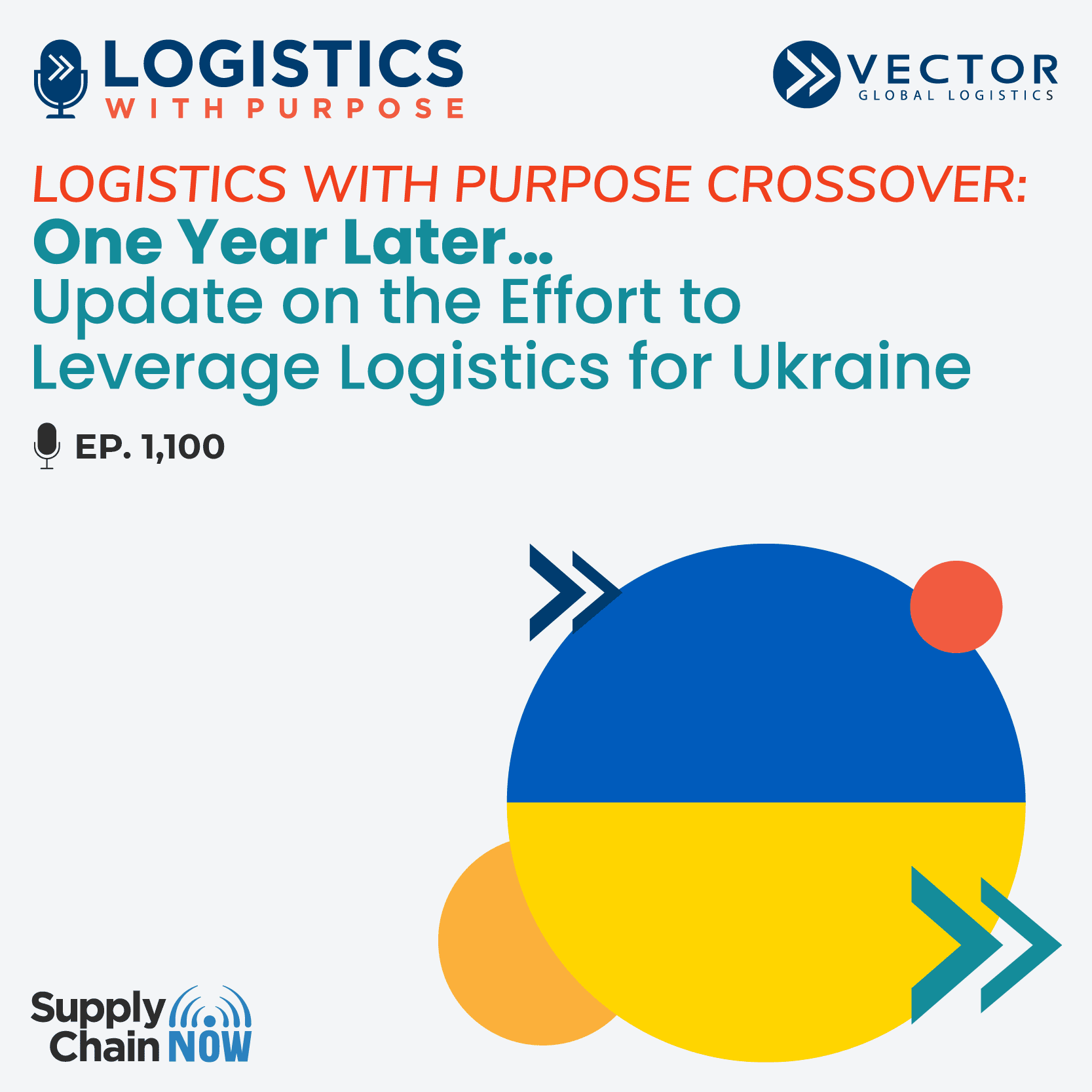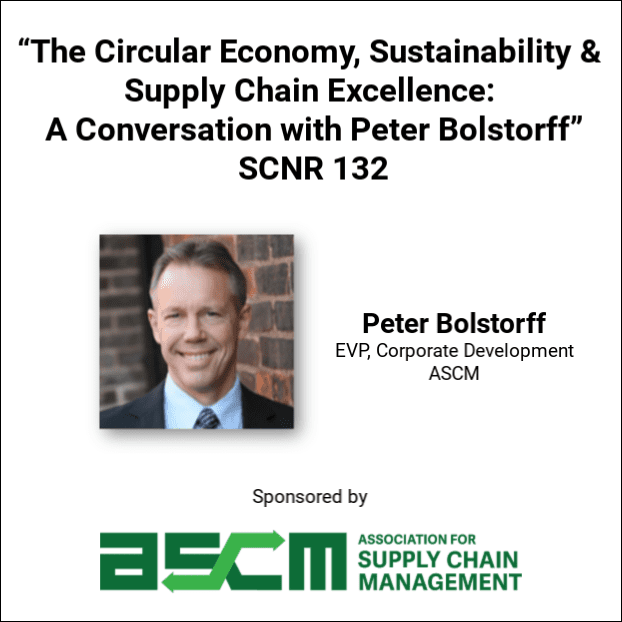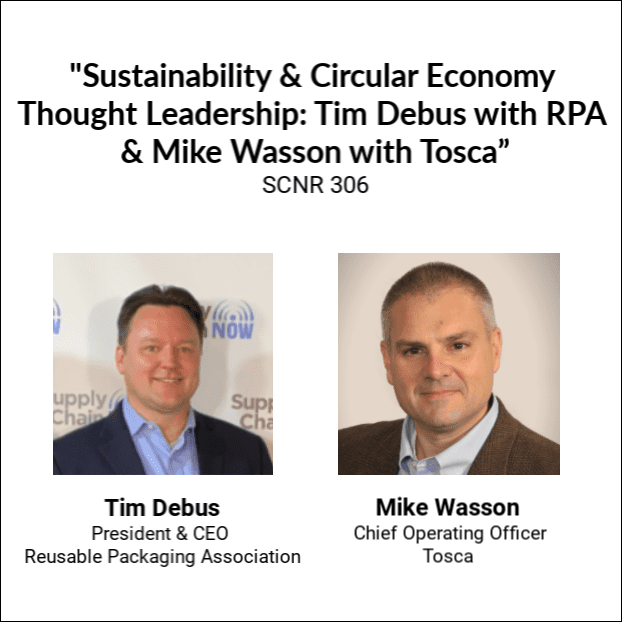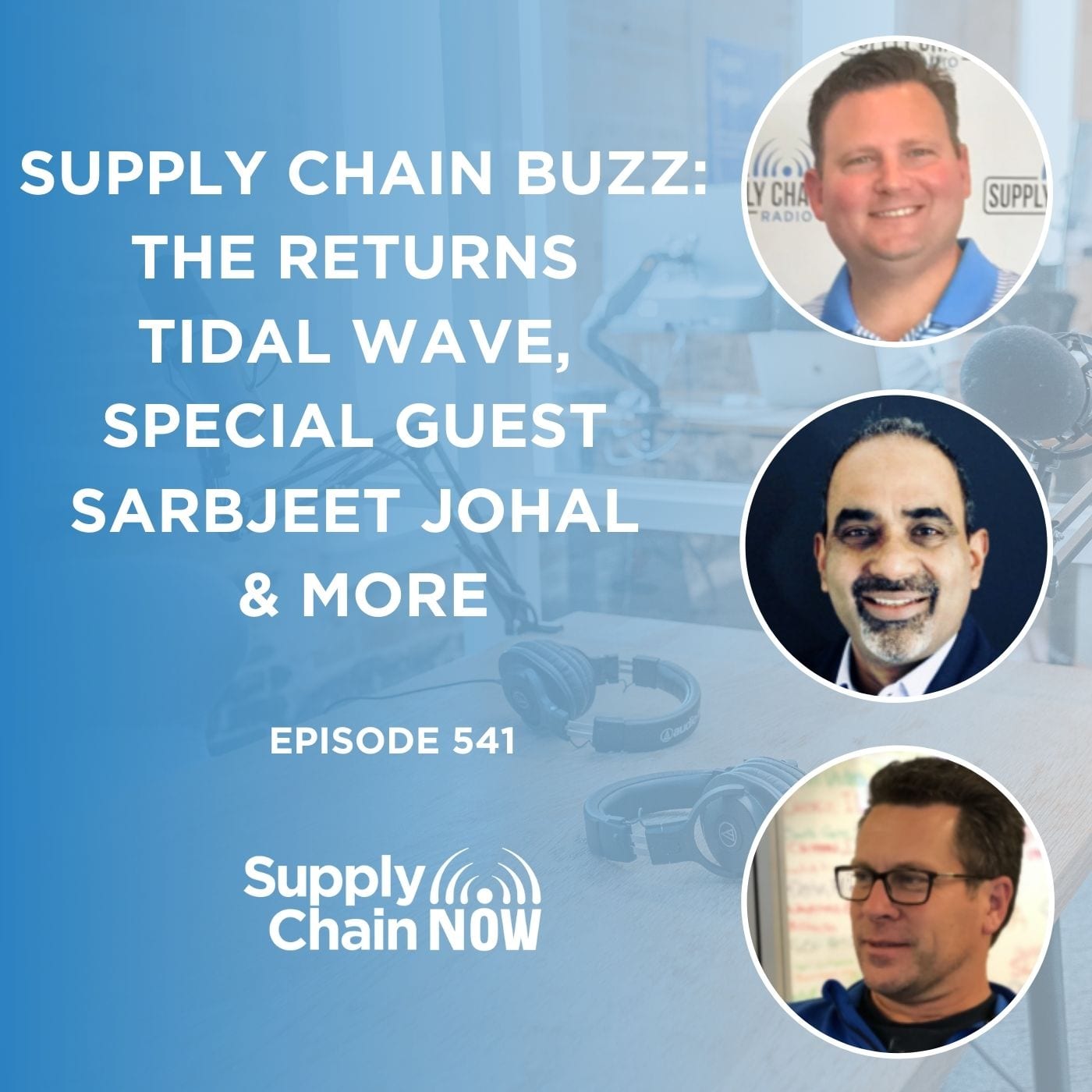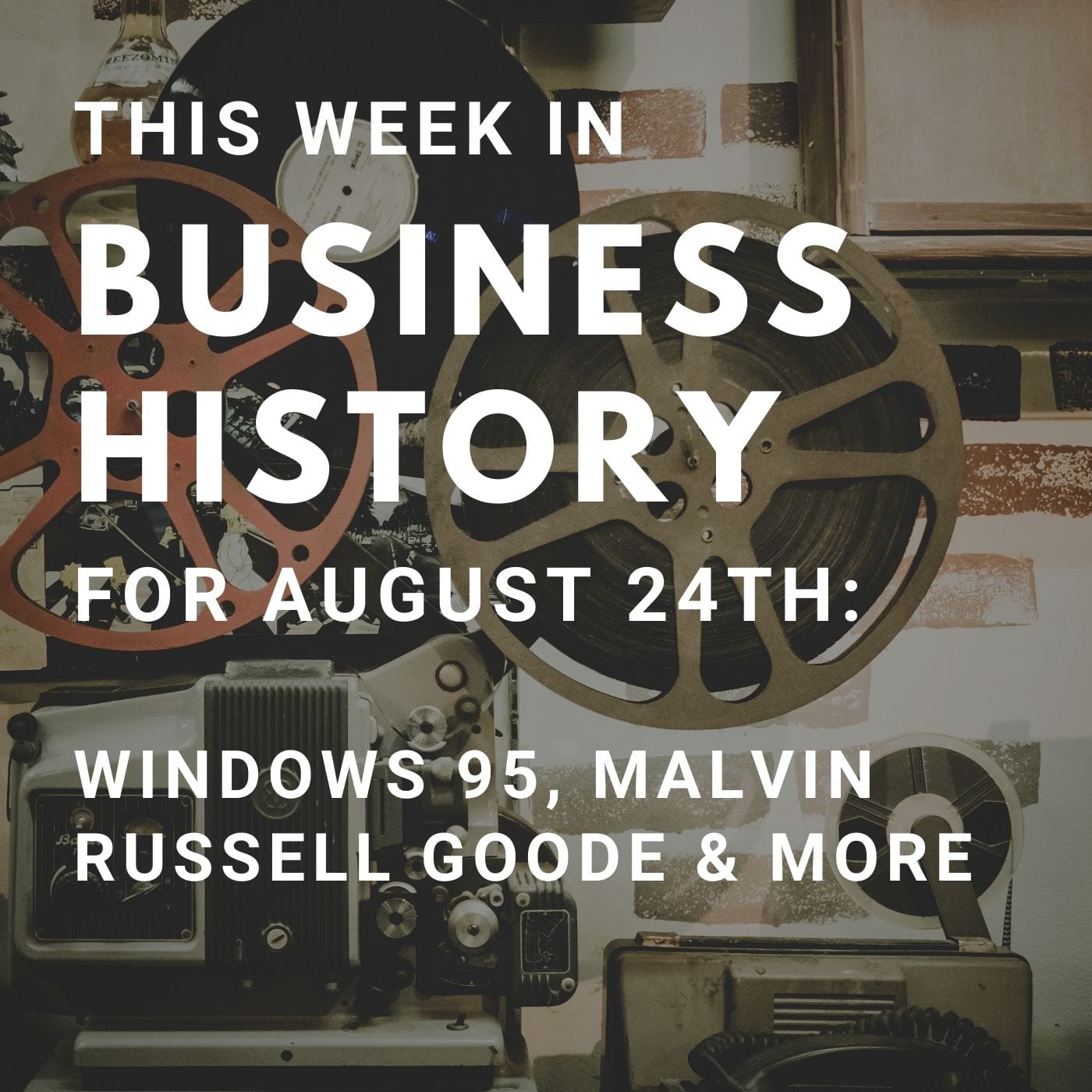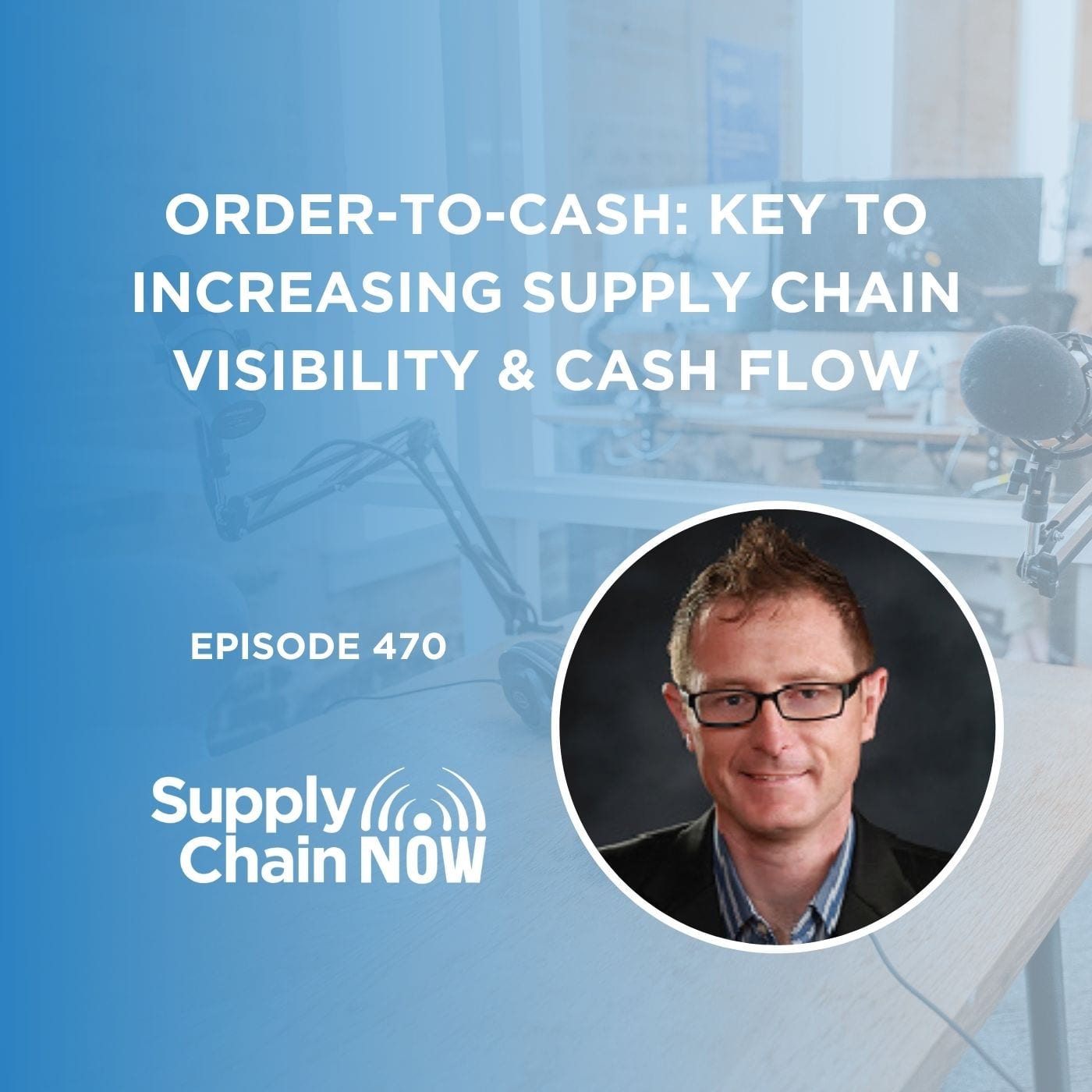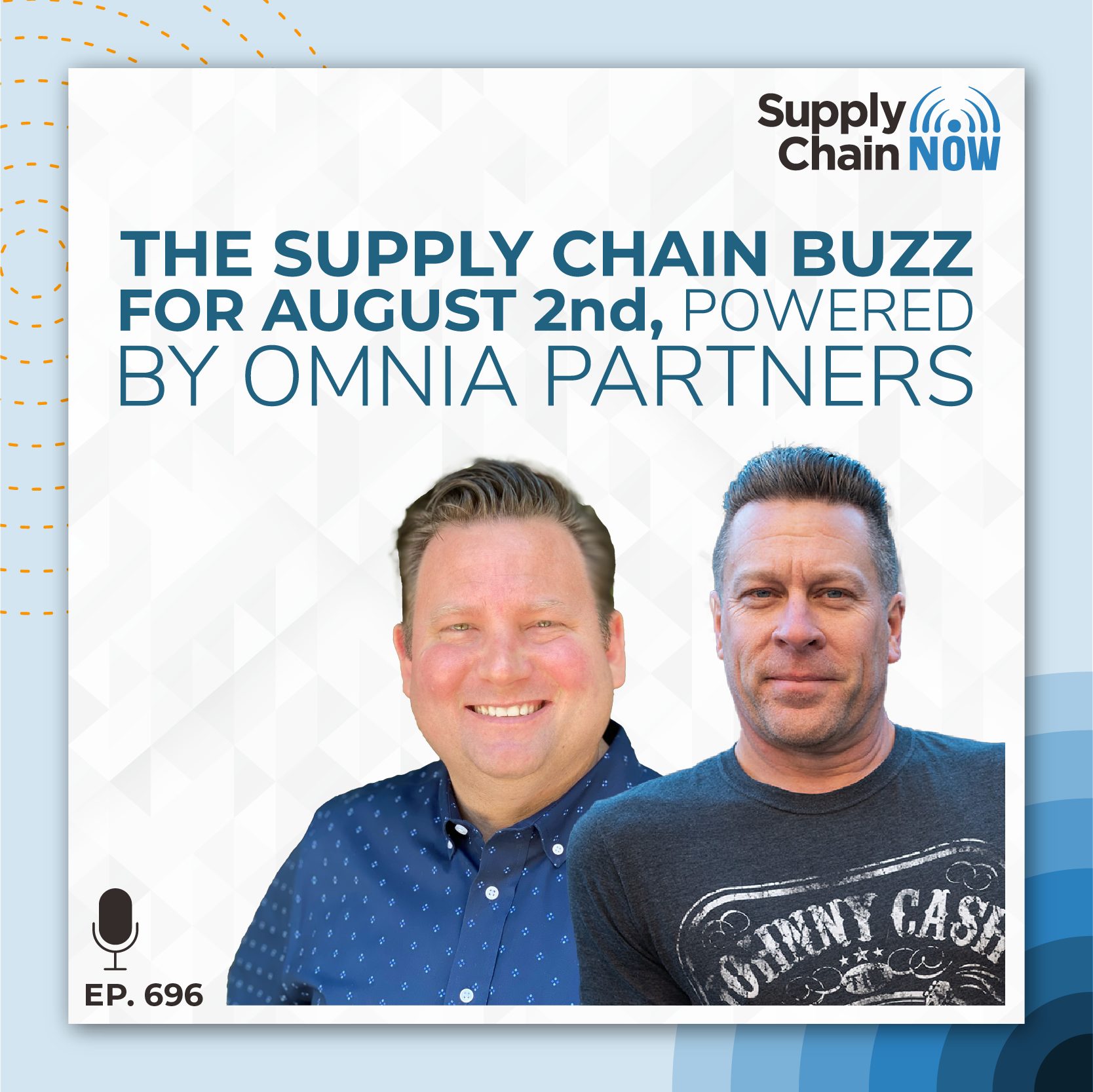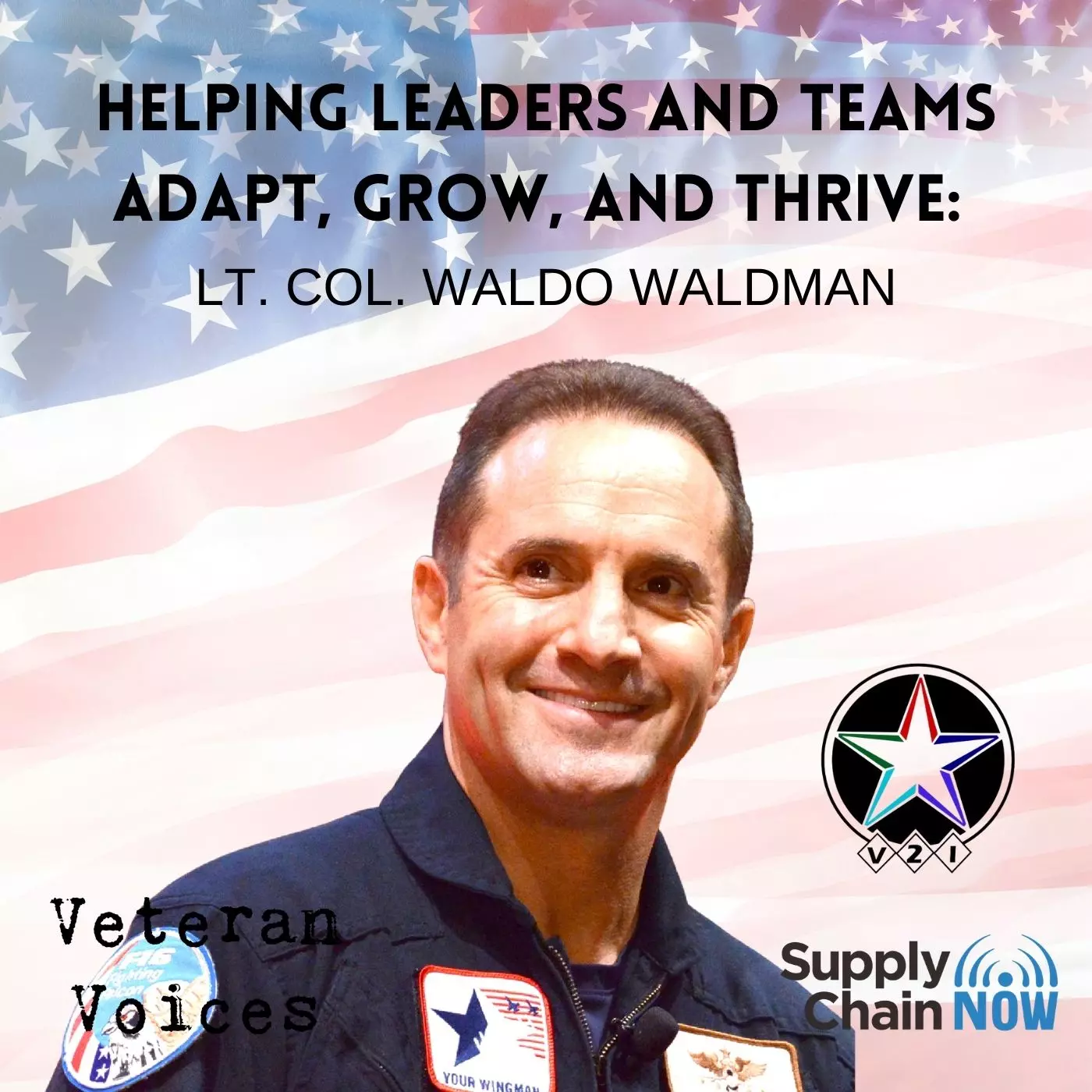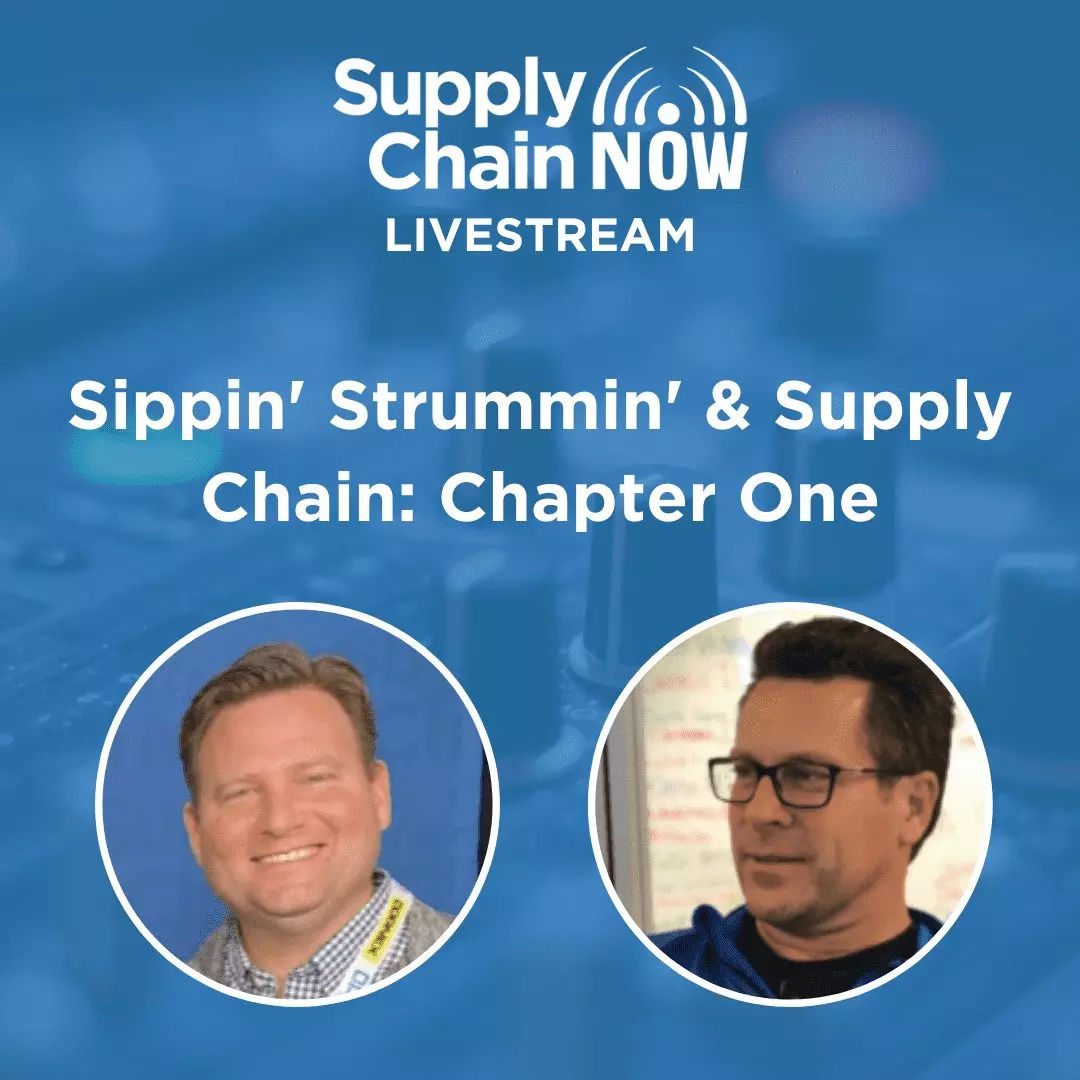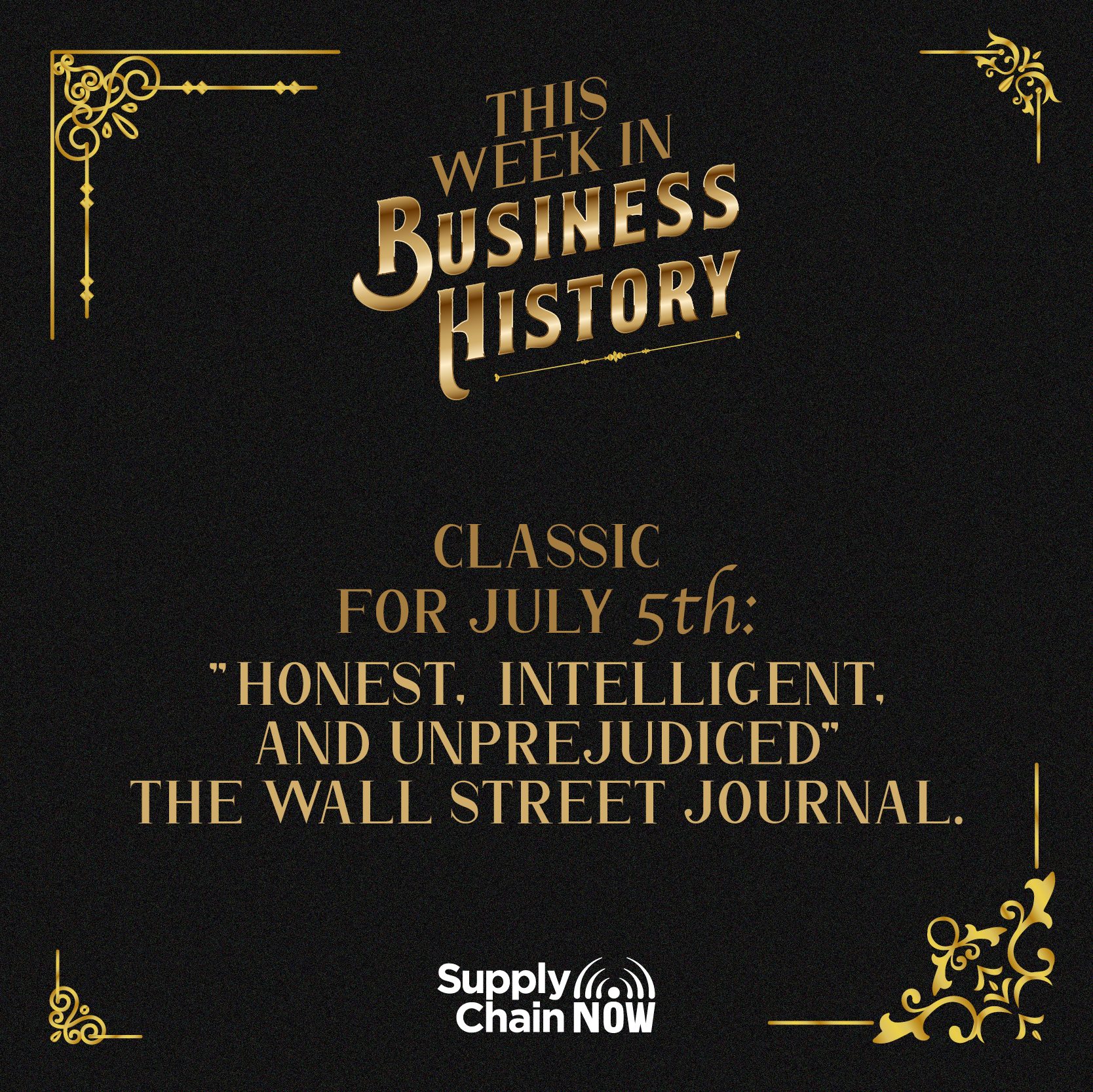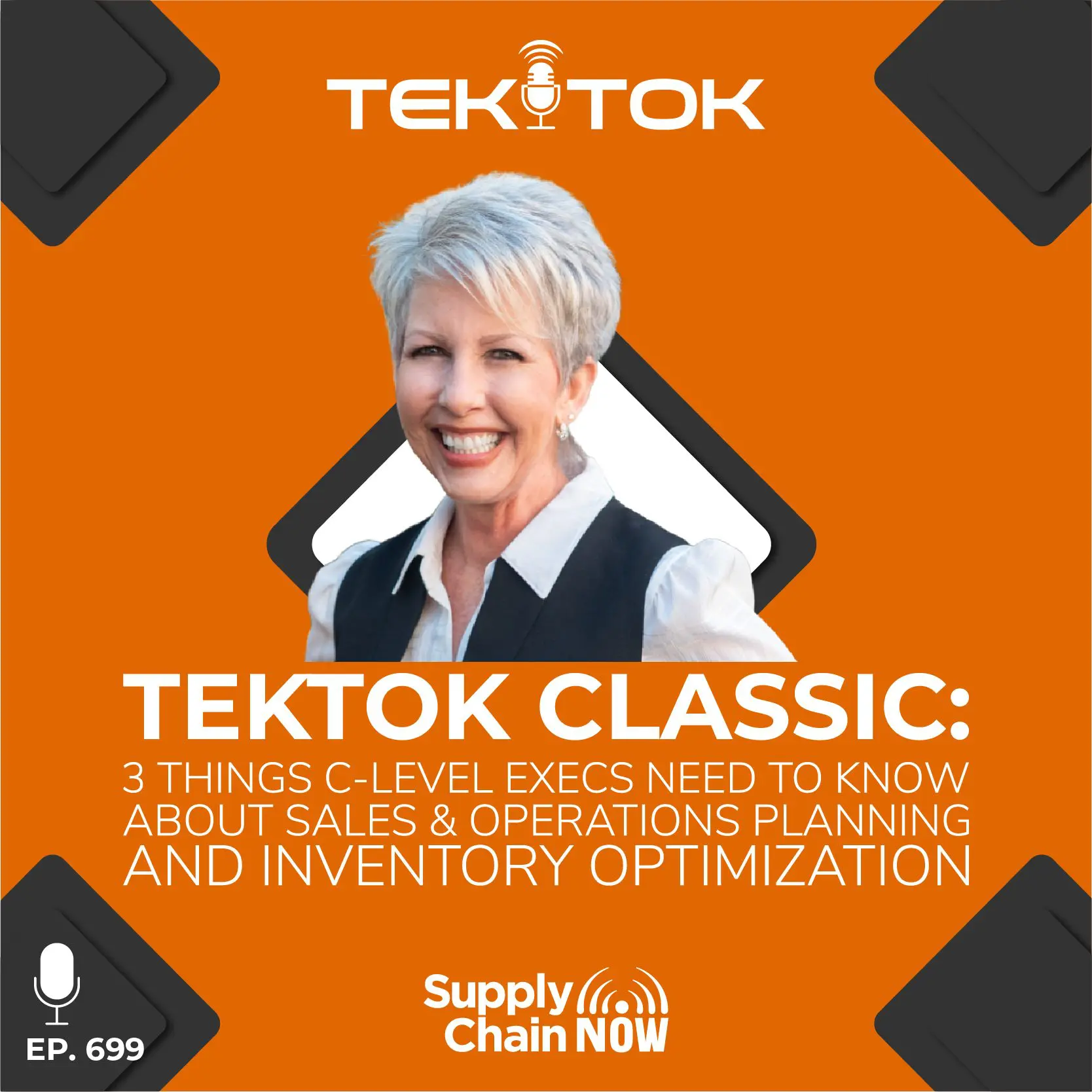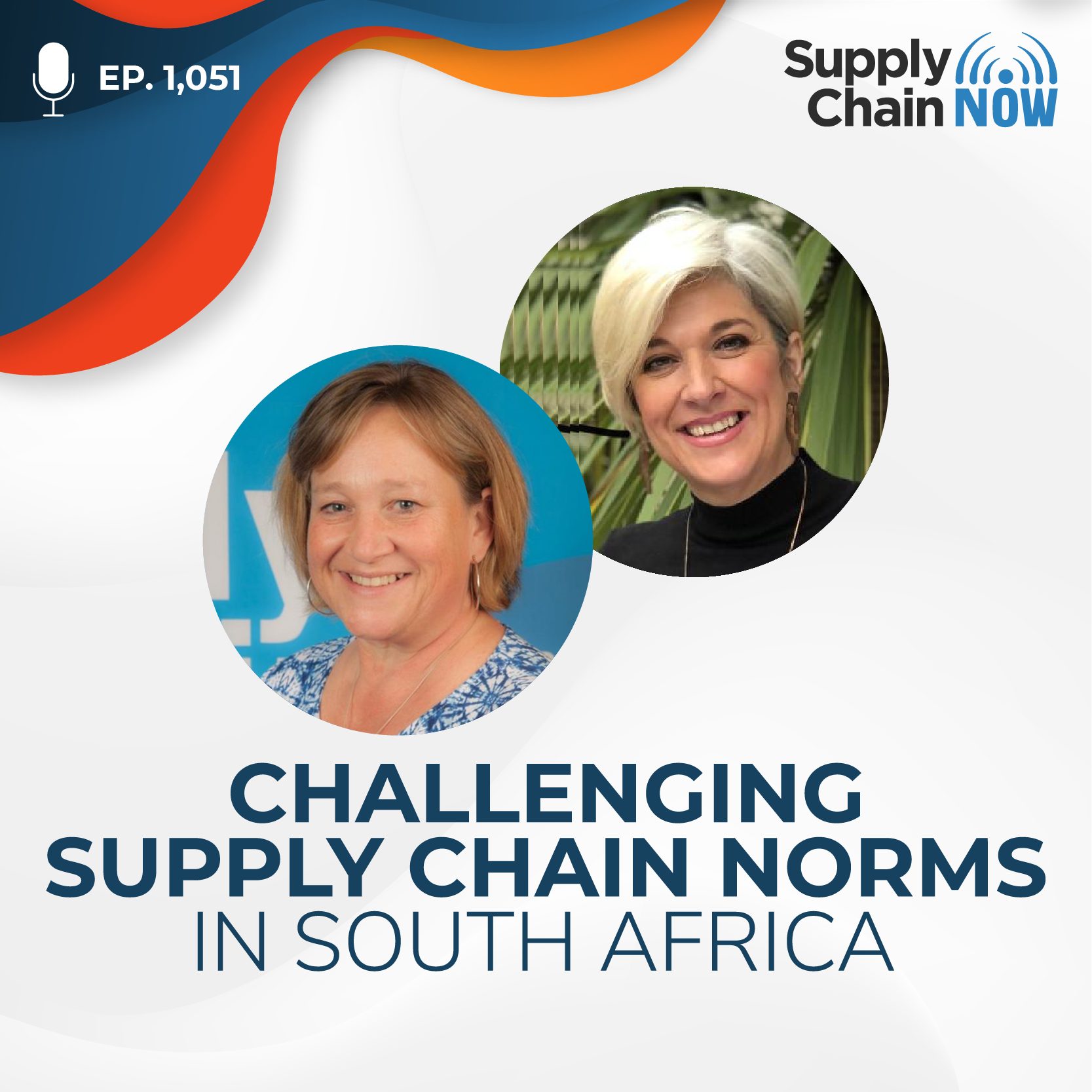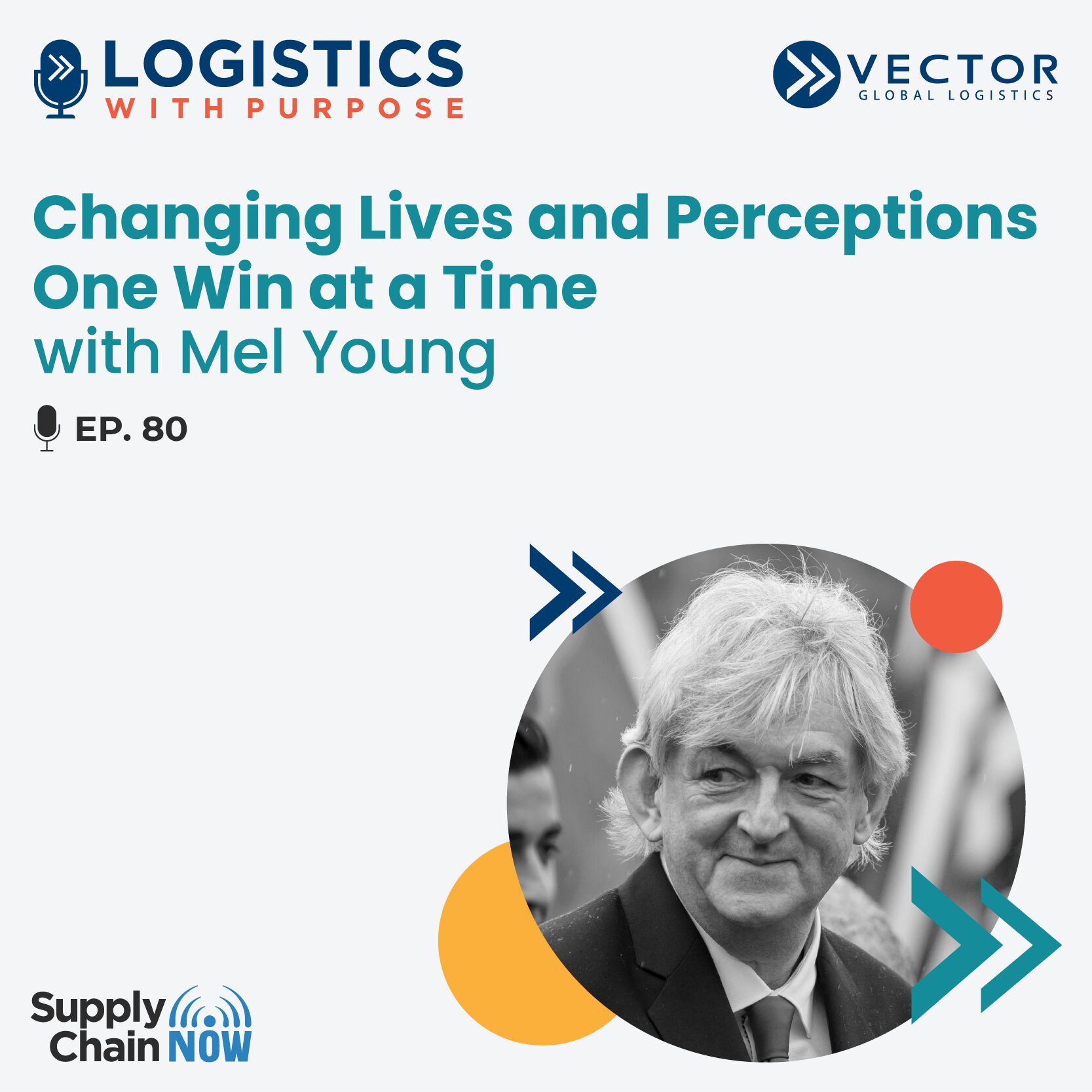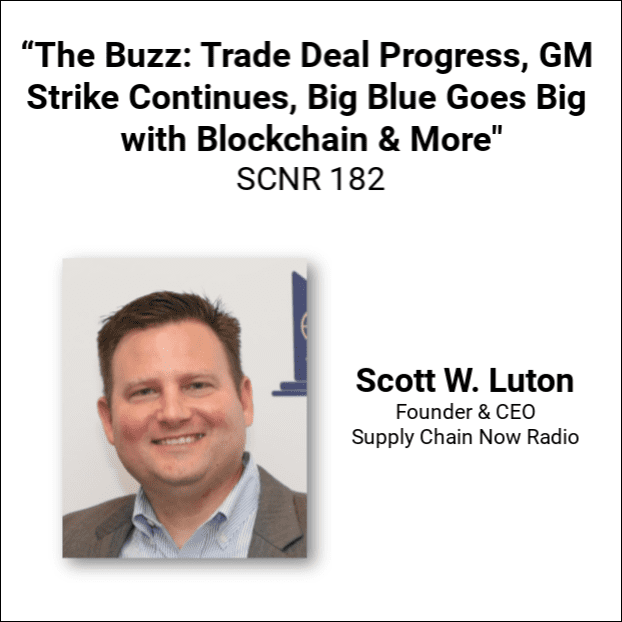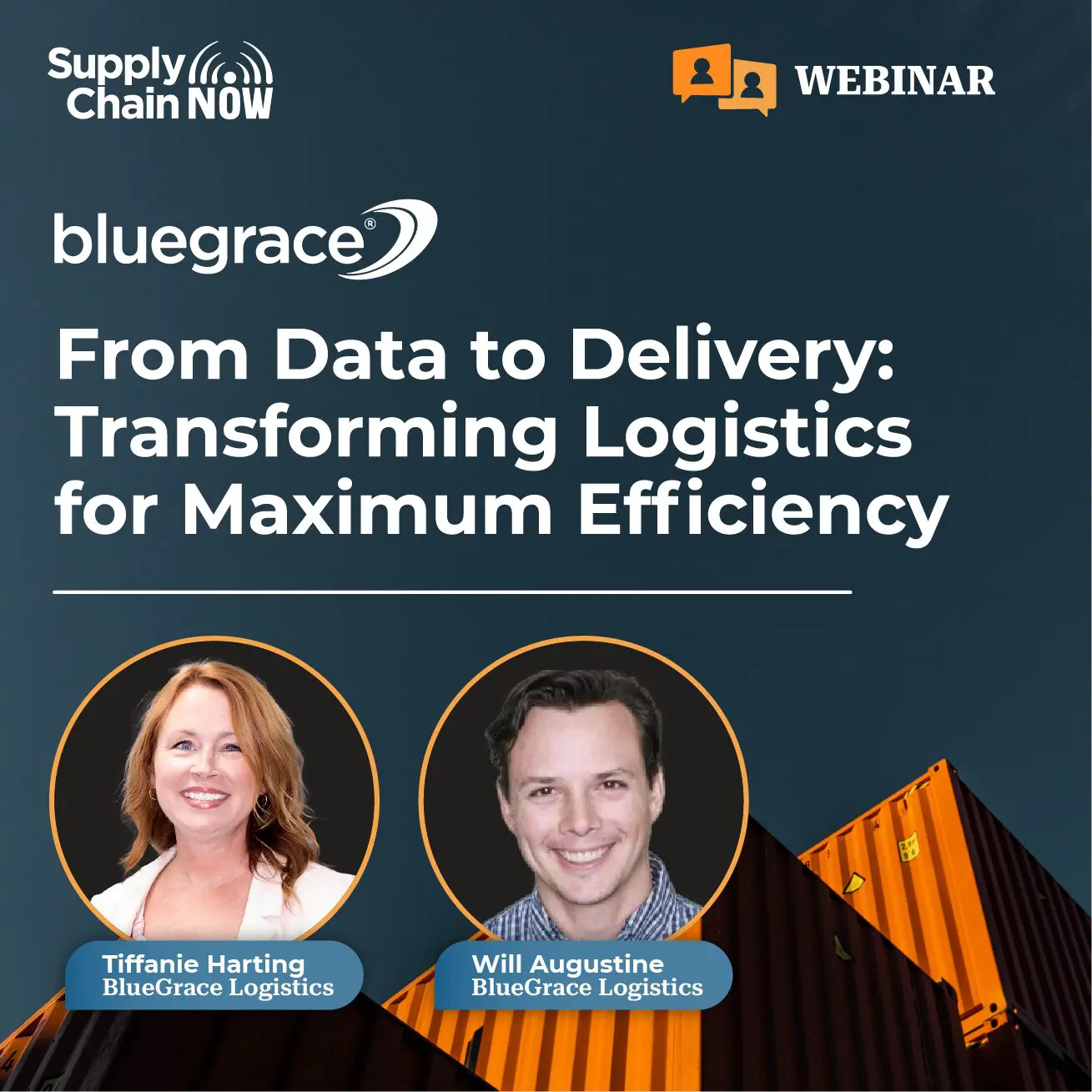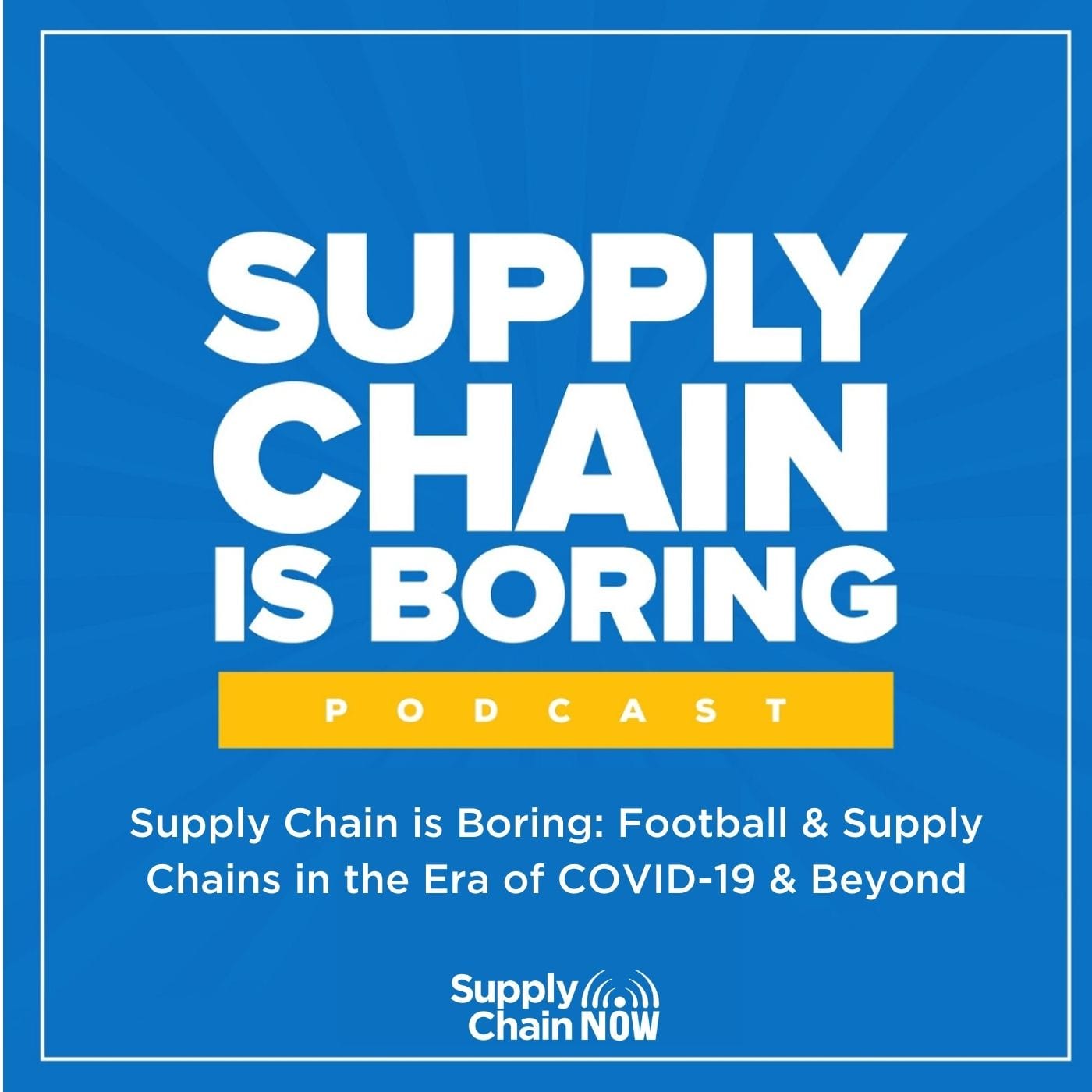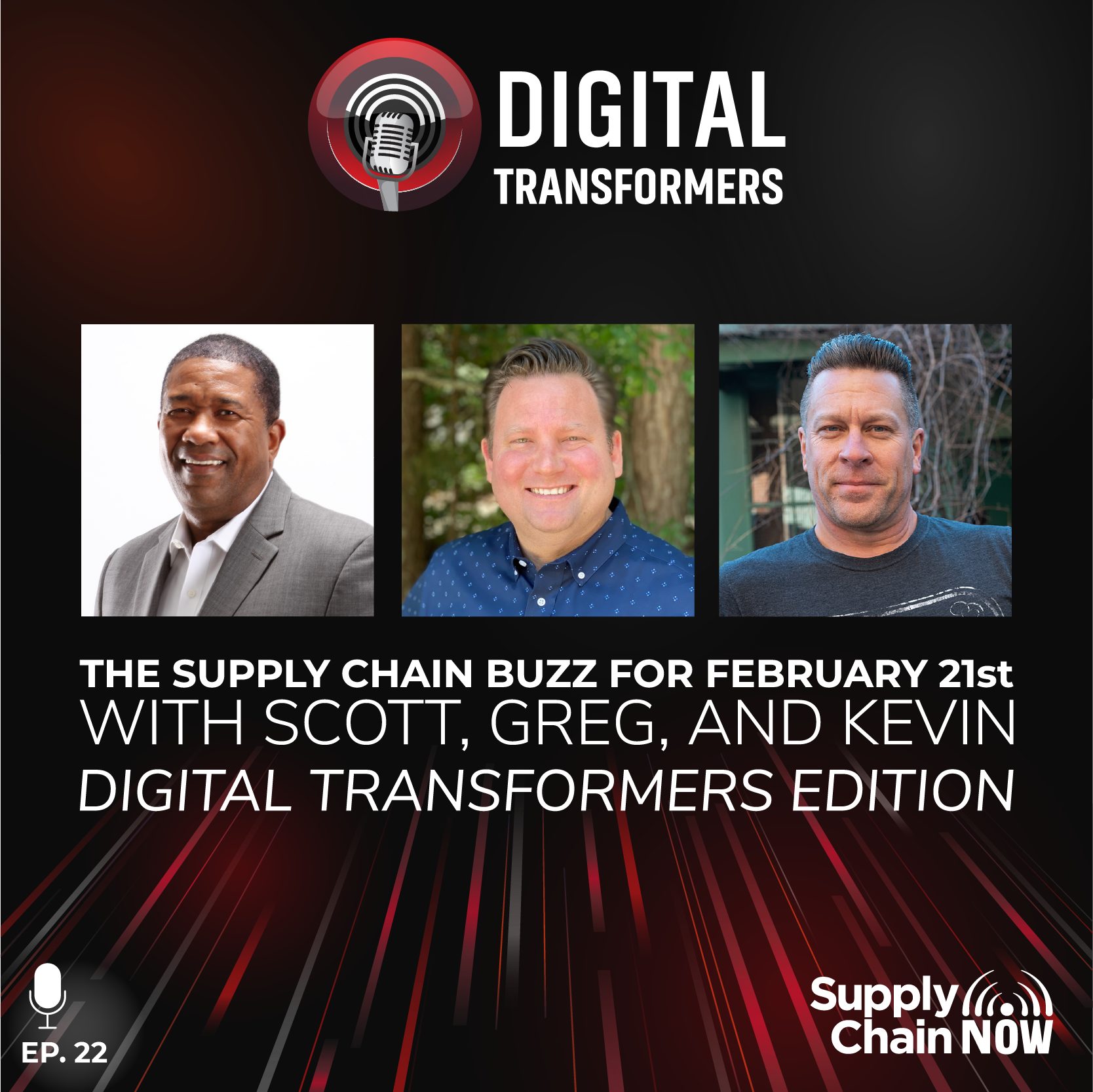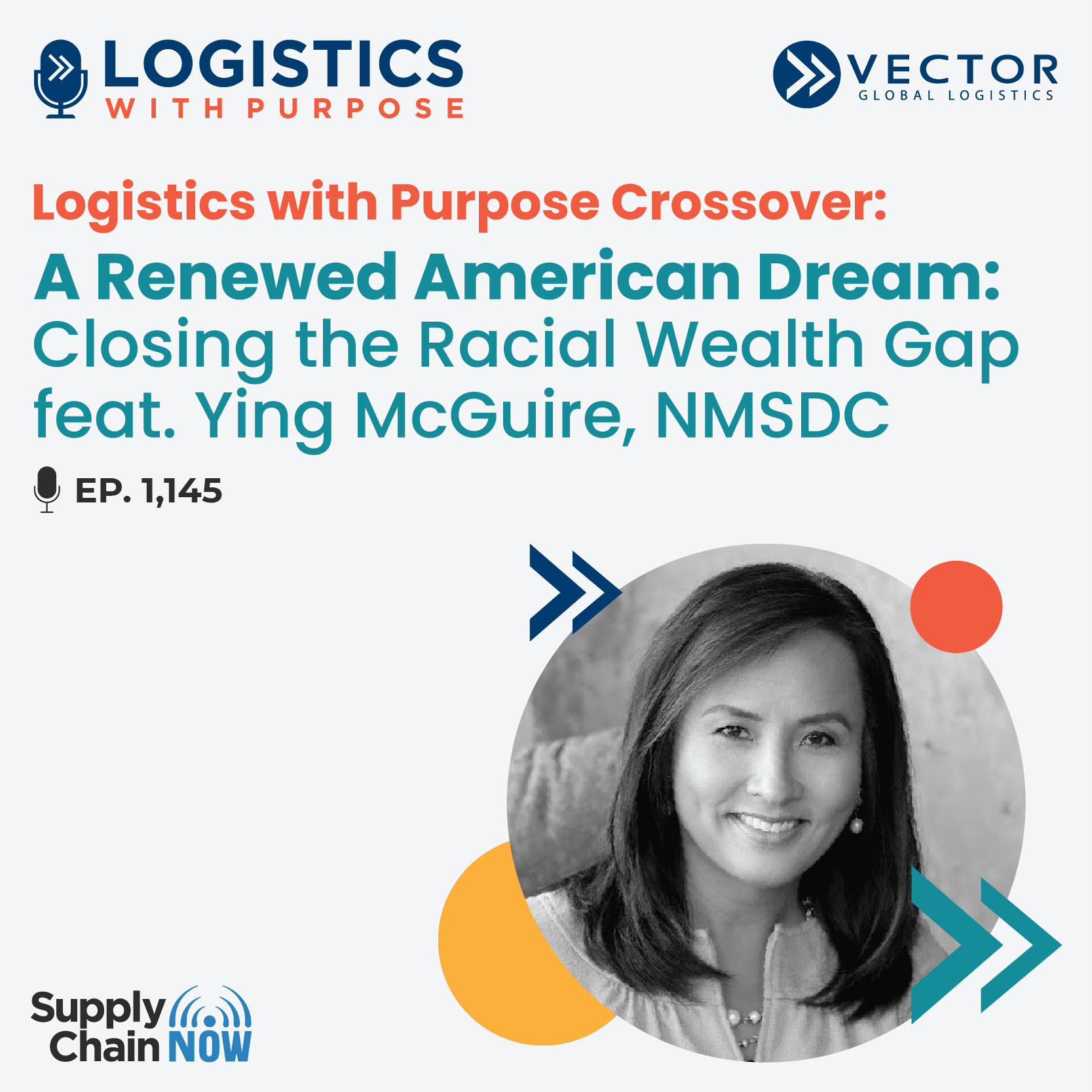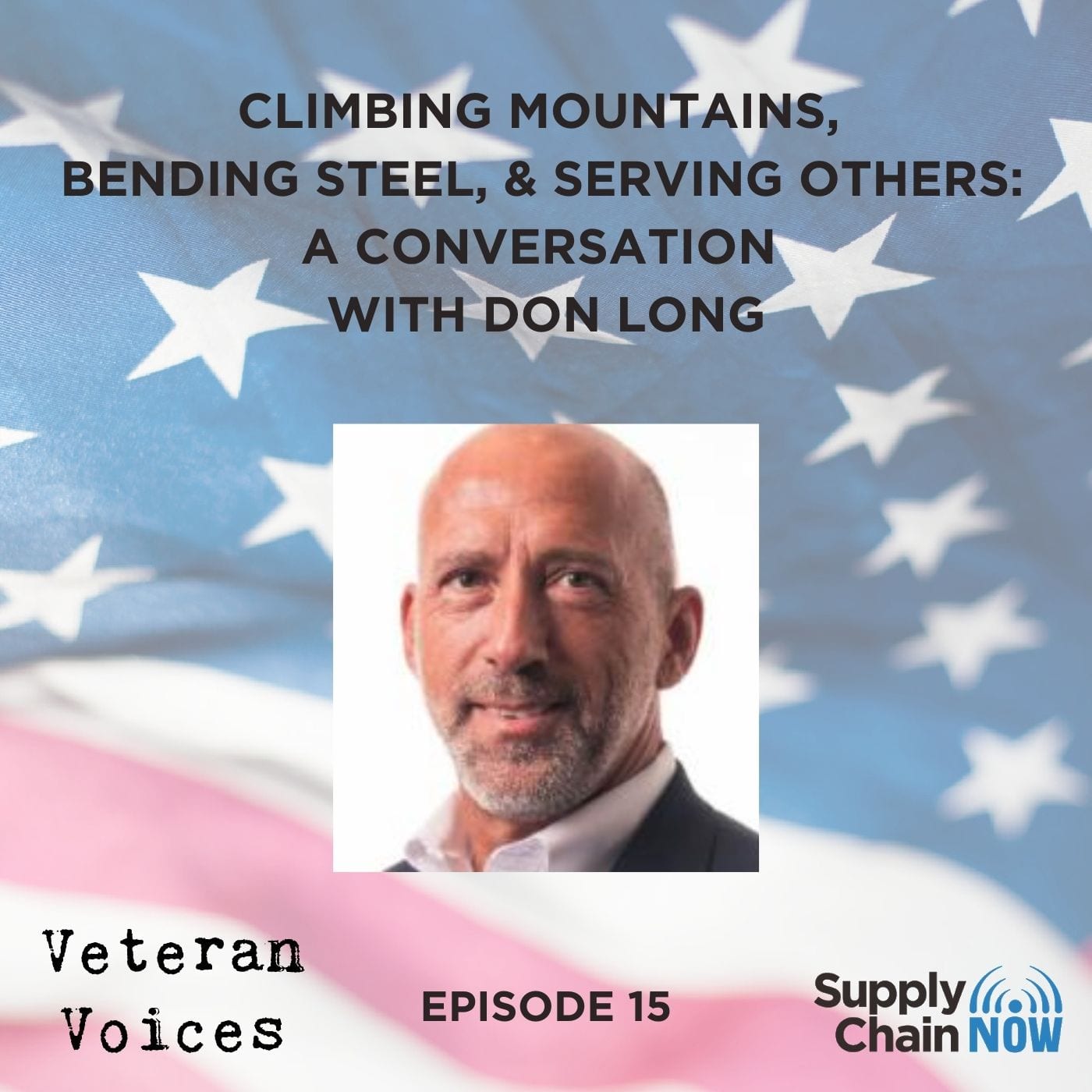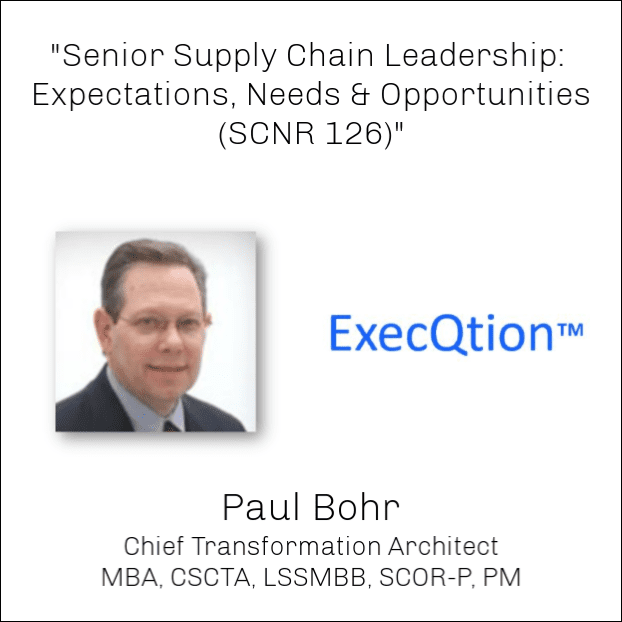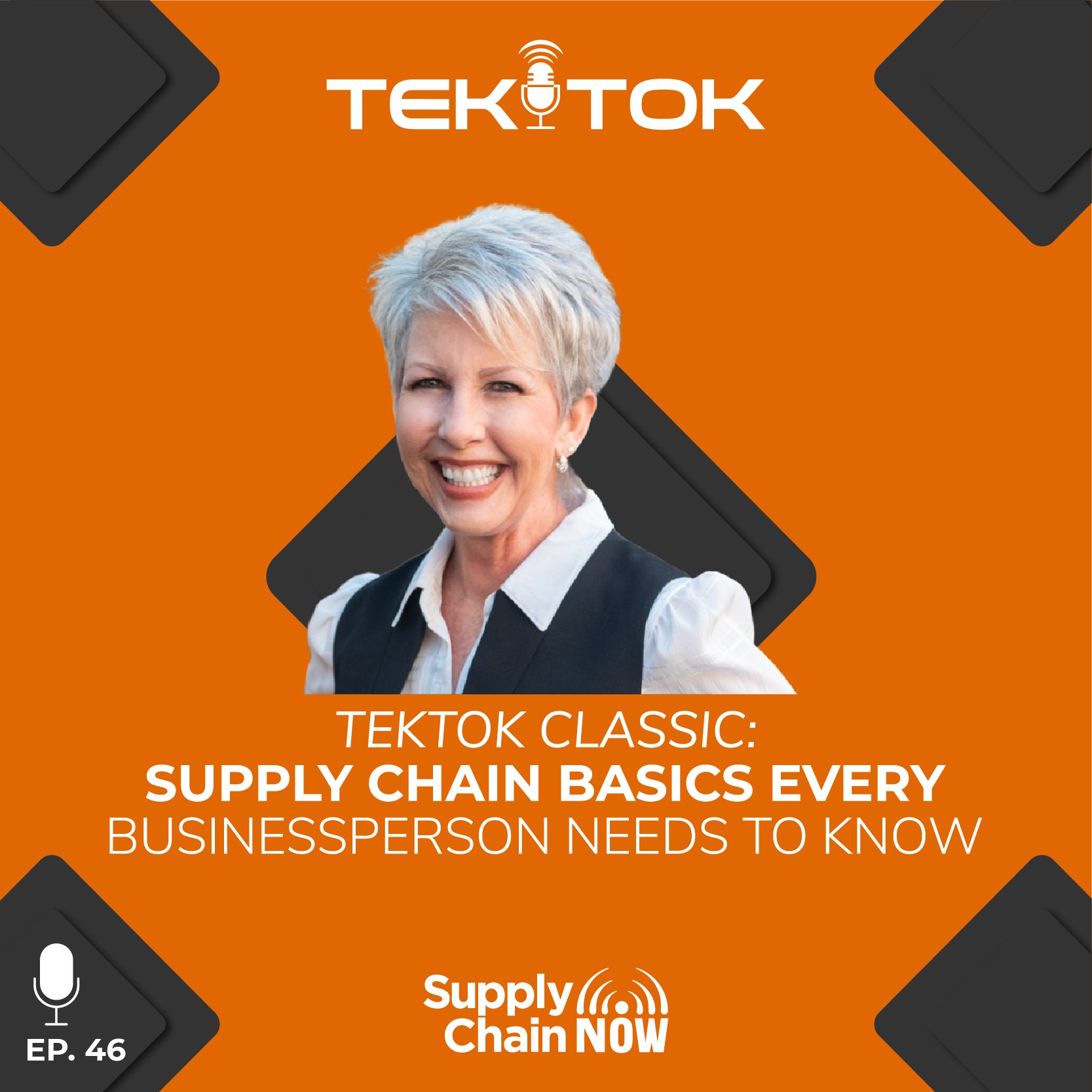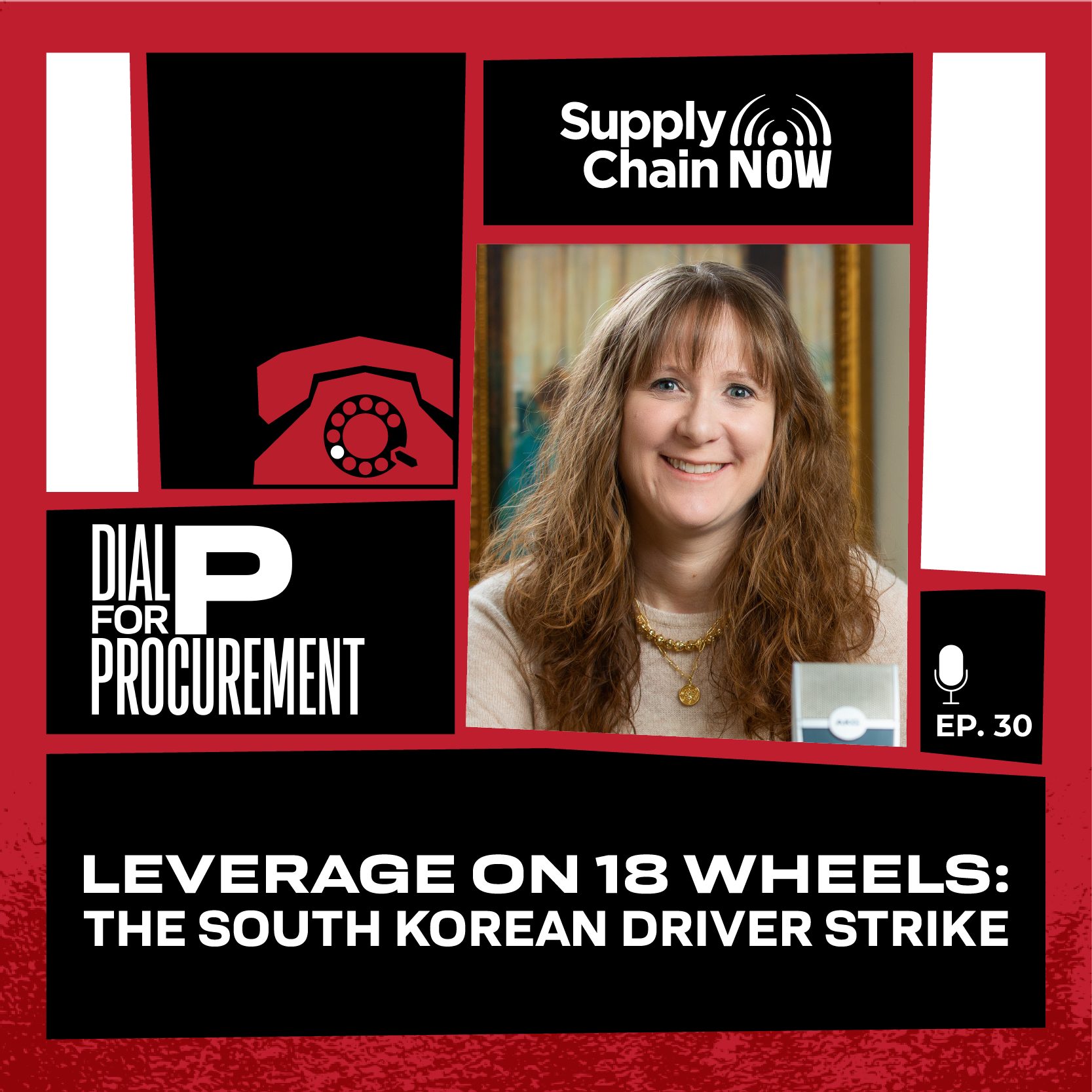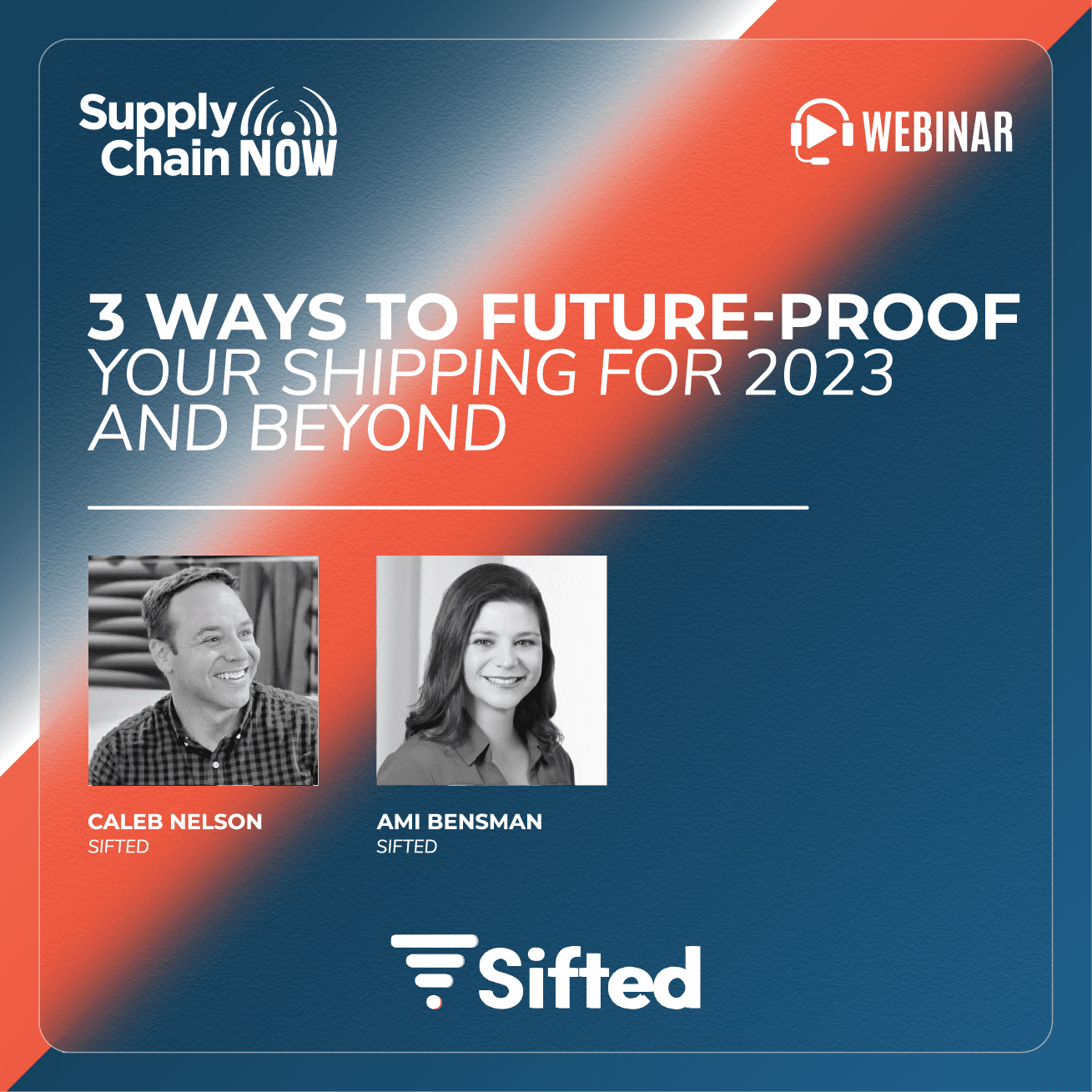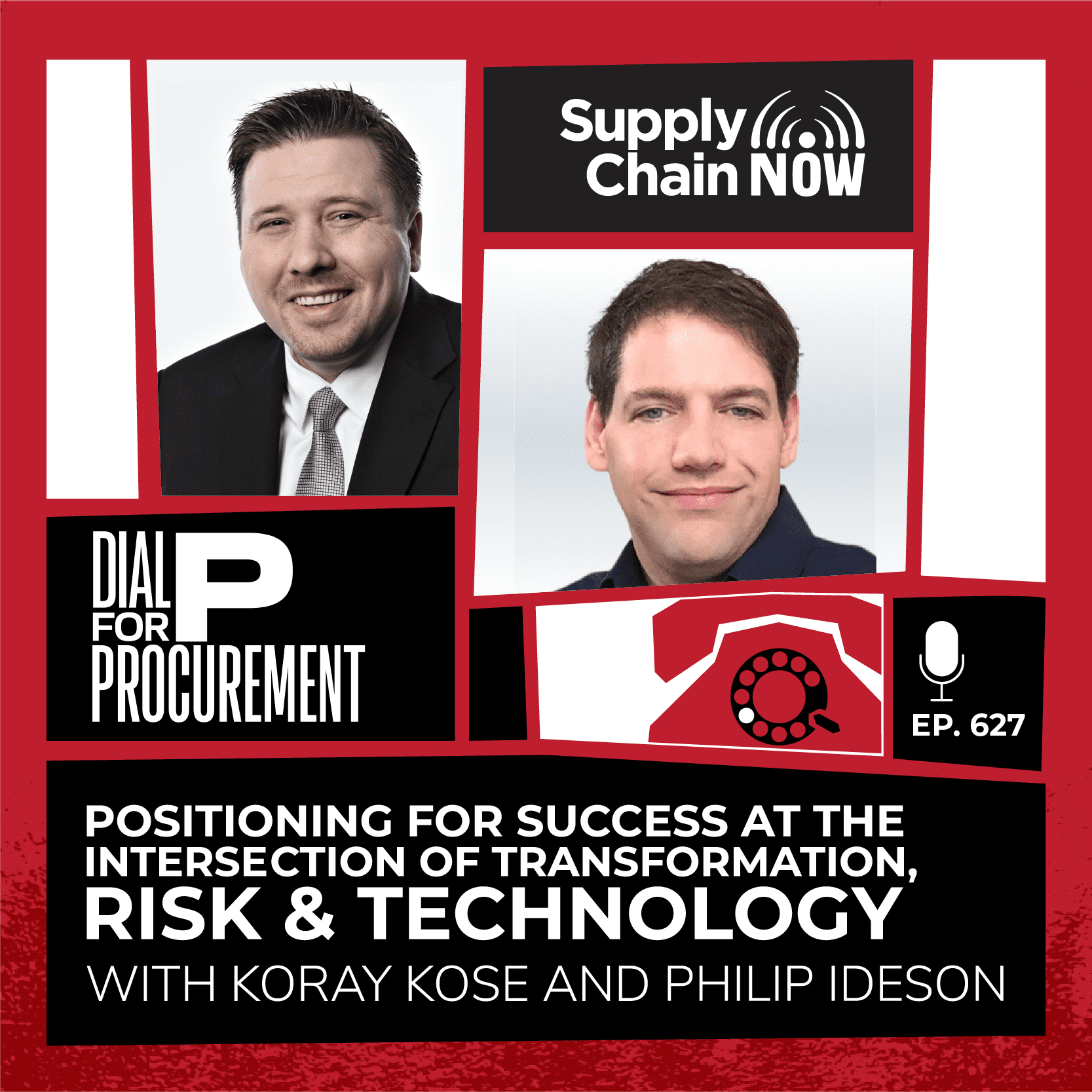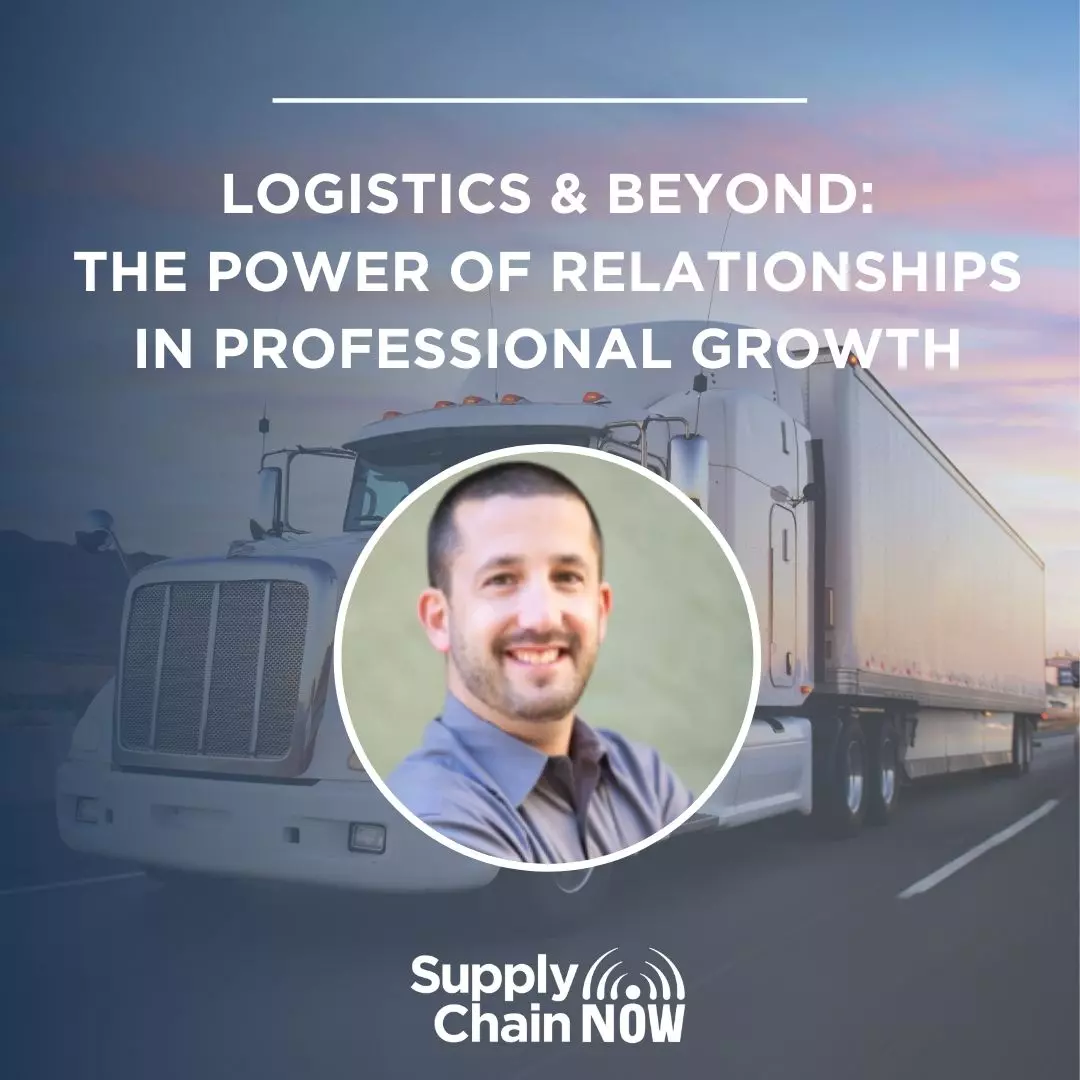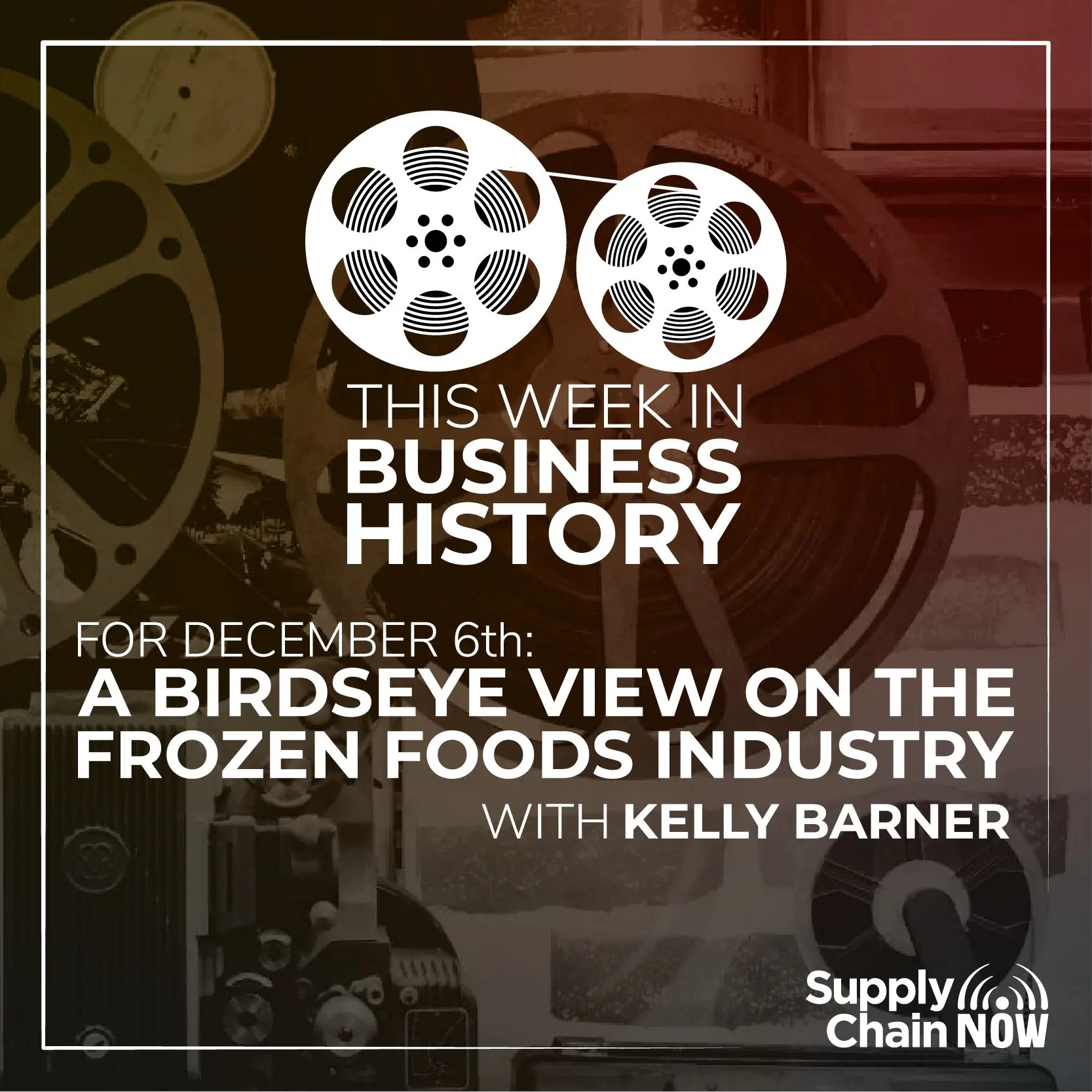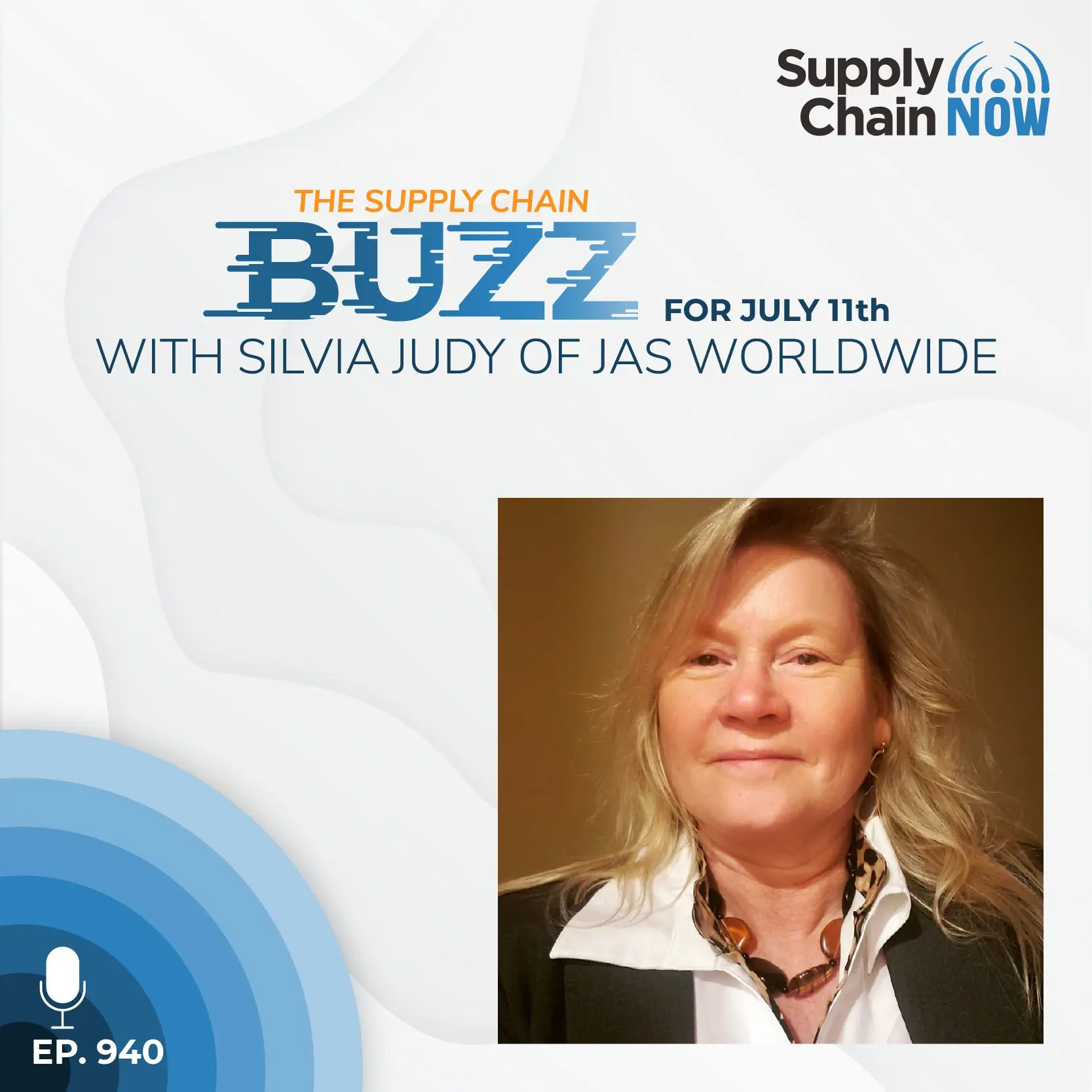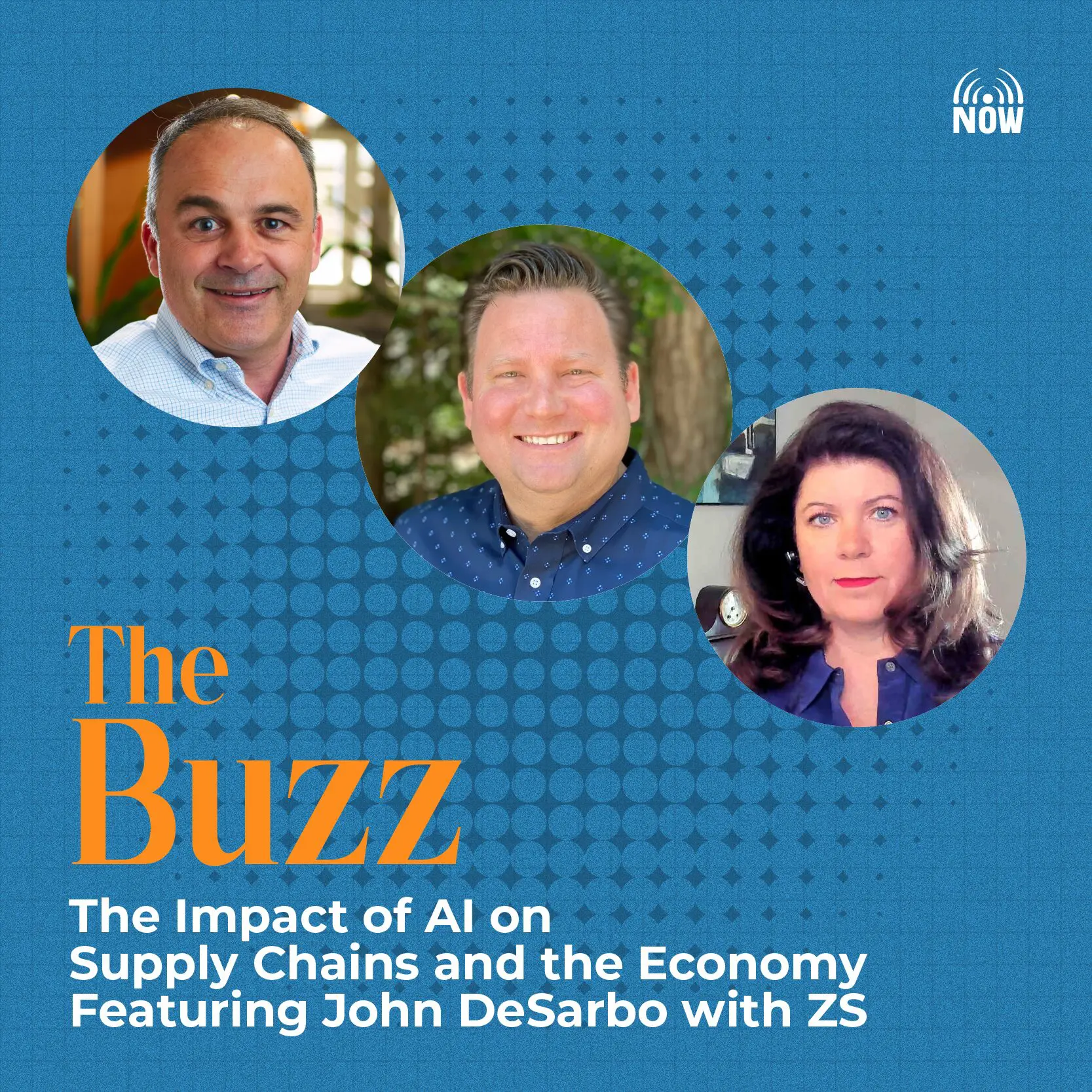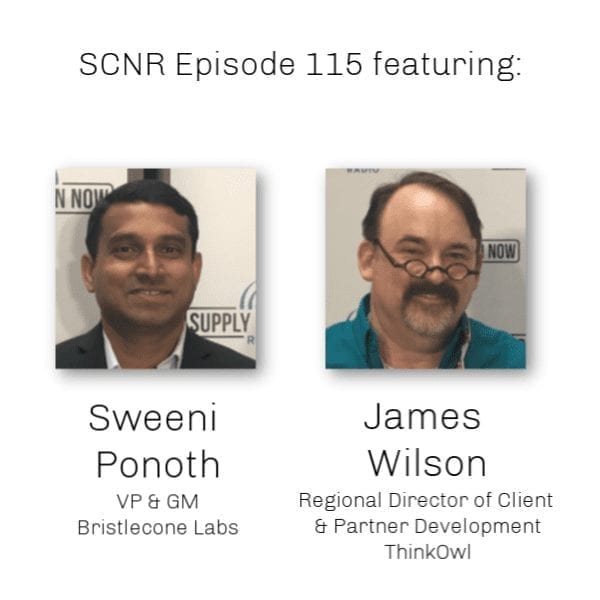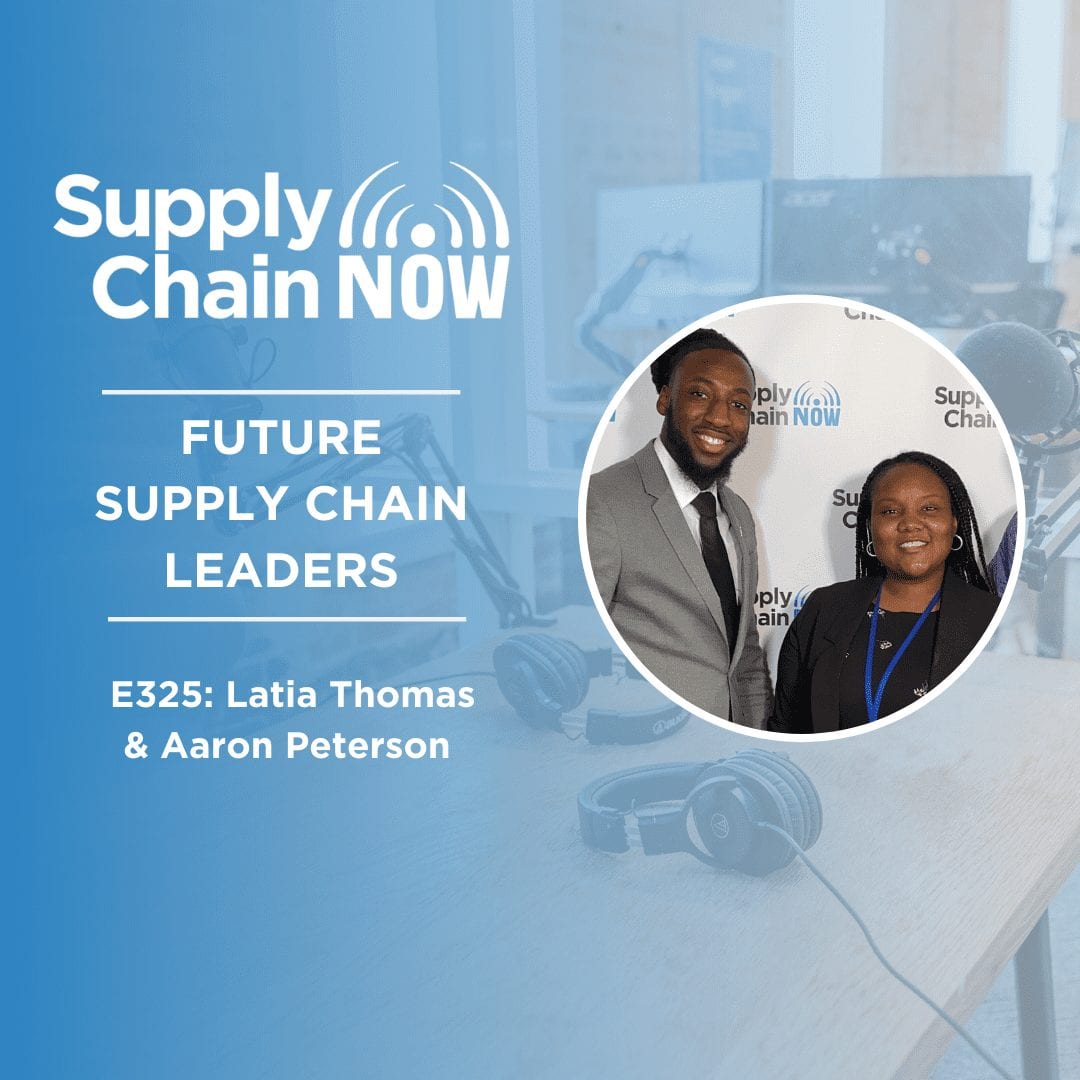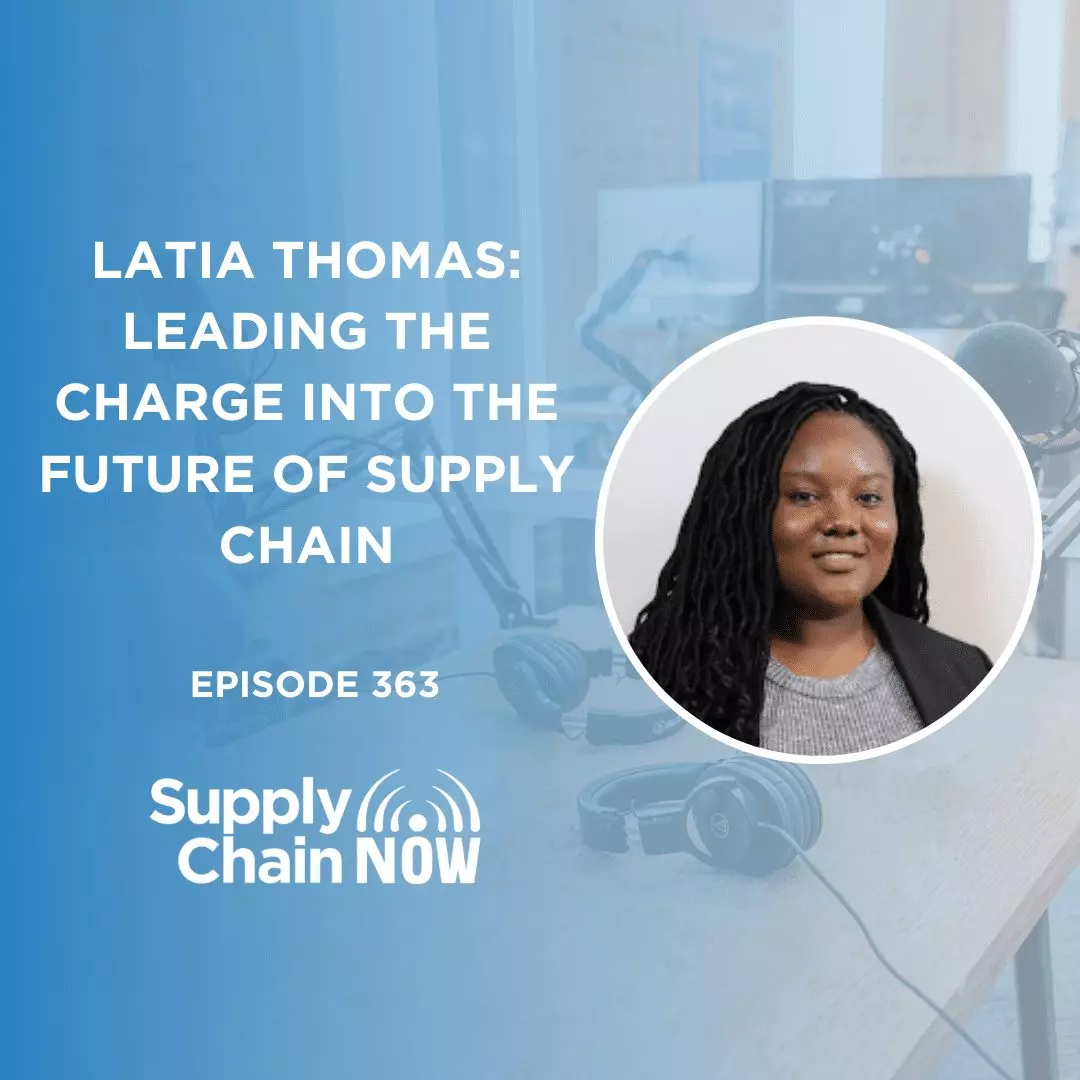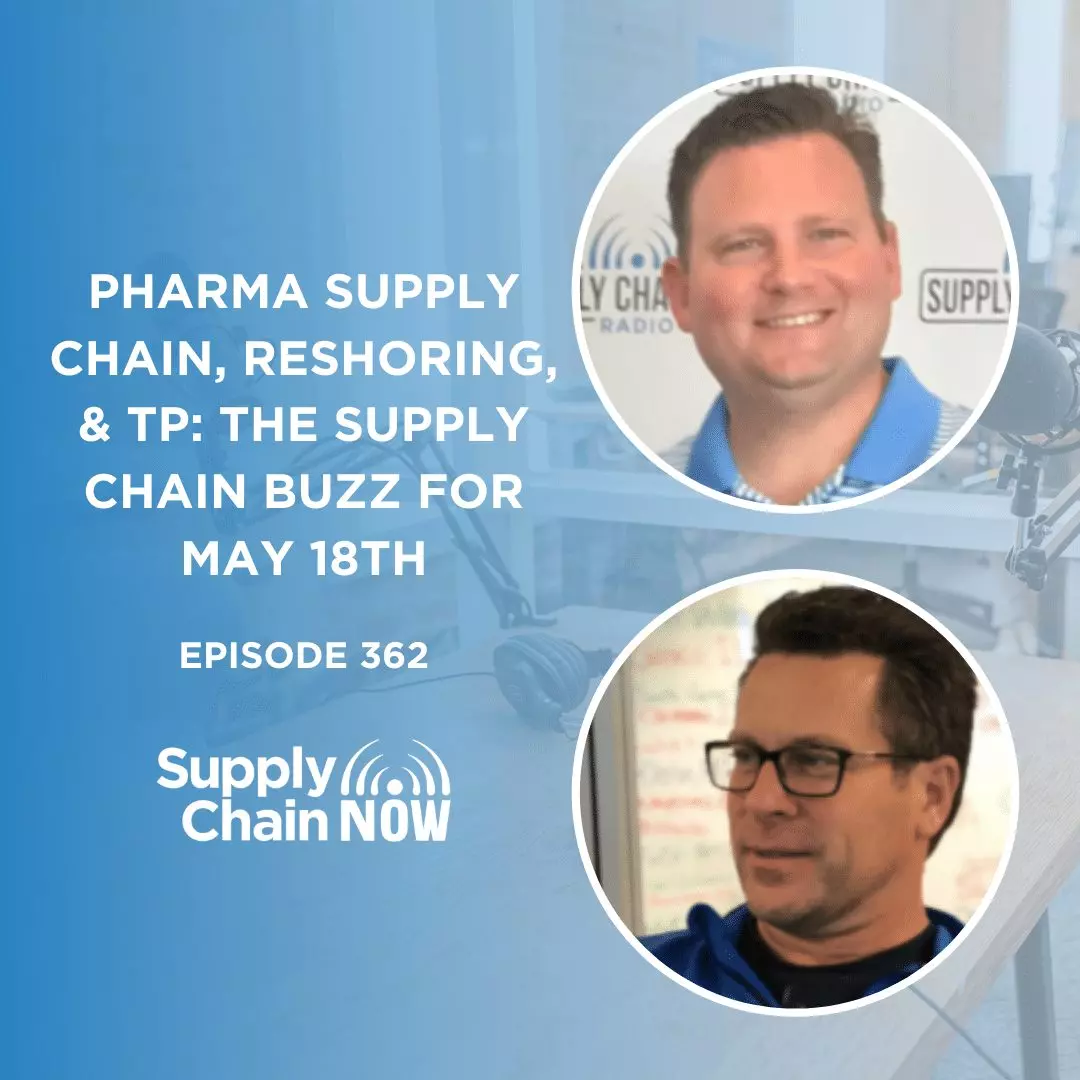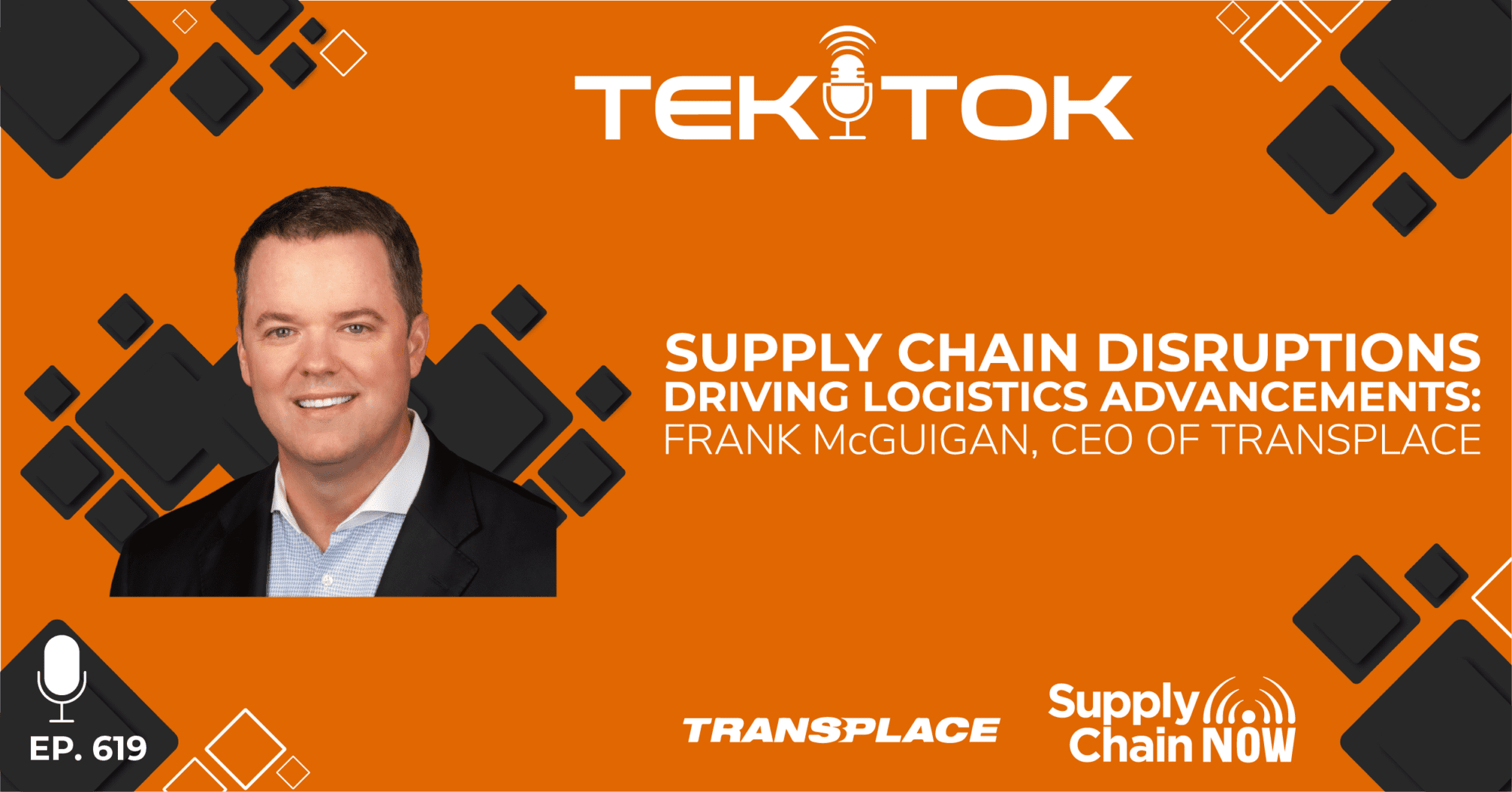
Episode Summary
“We have about $11 billion of freight under management that runs through the networks. And ultimately people do business with us because we’re committed to outcomes. And the outcomes that we’re driving ultimately are the things that shippers care about. It’s speed, it’s visibility, it’s transparency what’s happening in their network, but it’s also very much service and cost.”
-Frank McGuigan, CEO, Transplace
Major disruptions have pushed logistics and supply chain leaders to be creative and inventive. The digital transformation has been accelerated exponentially and many of the advancements have propelled our industry forward. In this episode of TEKTOK on Supply Chain Now, hosts Scott Luton and Karin Bursa interview Frank McGuigan, CEO of Transplaceto learn how supply chain disruptions are driving logistics advancements.
Episode Transcript
Intro/Outro (00:00:01):
Welcome to TekTok digital supply chain podcast, where we will help you eliminate the noise and focus on the information and inspiration that you need to transform your business impact supply chain success and enable you to replace risky inventory with valuable insights. Join your TekTok host Karin Bursa, the 2020 supply chain pro to know of the year with more than 25 years of supply chain and technology expertise in the scars to prove it Karin has the heart of a teacher and has helped nearly 1000 customers transform their businesses and tell their success stories. Join the conversation, share your insights and learn how to harness technology innovations to drive tangible business results. Buckle up it’s time for tech talk powered by support you now.
Karin Bursa (00:01:12):
All right, well welcome supply chain movers and shakers Karin Bursa here, and I am glad that you are with us for today’s TekTok live on supply chain. Now here with me is of course the one and only Scott Luton, founder of supply chain. Now Scott, how’s your day, sir,
Scott Luton (00:01:30):
Exceptional, uh, had a wonderful, uh, productive morning, had a wonderful pre-show with our featured guests here today. Really enjoyed chatting with him and Karin, always a pleasure to collaborate with you and, and connect with our community. Once again,
Karin Bursa (00:01:43):
Absolutely. Um, anything we should be aware of any upcoming events or things we want to make sure the community knows are going to be available for them.
Scott Luton (00:01:52):
I got one big event coming up and that is this setting, the standard for supply chain security webinar with Kevin L. Jackson, but in conjunction with several groups and to include the telecommunications industry association, which is really the voice of ICT. And as we all know, we can’t talk enough about supply chain security, global supply chain, cutie security, and this April 27th event would be a great opportunity for just that the sign up Karin, we’re not selling tickets, it’s free to join us. You can hit the, uh, the right link in the show notes, or of course you can visit us@supplychainnow.com and learn a lot more. So that’s, that’s the main announcement, but Karin, I’m excited to be here once again with you. I’ve really enjoyed a TekTok and all of the great guests you’ve gotten there. We’ve heard a lot of feedback around the interviews and the style of the interviews and this live stream is probably continue to reflect that right.
Karin Bursa (00:02:46):
Well, it helps out, I mean, you know, Scott, more than anything, it’s so much about what our guests bring to the conversation and how they share their experience, their recommendations, their new insights. Um, I just love the way that I learn something every time I hope our audience does as well, but I’m sure benefiting from the conversation in each and every time. So it’s been a lot of fun
Scott Luton (00:03:09):
Agreed, and it comes out. So speaking of, uh, all of our participants in the cheap seats as we call it, right, we love that regardless of who they are or where they are. I love seeing some of our fellow hosts will arrive in the cheap seats from time to time. Let’s say, look to a few folks. Rhonda is with us. Good morning, Dr. Bumpin Zimmerman from beautiful Arizona. Great. And see ya. Uh, Ishmael is tuned in LinkedIn. Great to see Ishmael would love to know where you’re tuned in from welcome today. David, you can’t have a live stream without David, which hails from Canada. I should know what city I want to say Toronto, but regardless, Dave and great to see here, I should know that I failed that quiz. Peter Beaujolais is with us, uh, him and Dave and, and Rhonda makeup, quite the live stream. Vishal’s triumphant.
Karin Bursa (00:03:57):
They keep it interesting. They do keep it interesting. What would be chatting about, uh, during the session,
Scott Luton (00:04:04):
But welcome everybody and, and Karin really excited about this conversation with, with really, uh, a mover and shaker that we’ll have here today.
Karin Bursa (00:04:11):
Yeah, absolutely. Well, it’s not something new to say. We have had a heck of a year, right. And 18 months in, that’s been one disruption after another, and we’re really gonna dive into this topic of supply chain disruptions, realizing that supply chain disruptions are really part of the normal operating procedure. I think we’re just seeing them amplified and certainly nothing compares to what we have all experienced with COVID-19 and the impact on business, personal life, our mobility, um, just our standard way of life. Um, but I think we’re going to hear some interesting insights about advancements that have been made as we’ve addressed those challenges. But if we just think so in the past 18 months we’ve had COVID-19, we’ve had shipping container shortages. We still struggle with that. Um, we’ve got chip shortages, right? That are holding up everything from your laptop to a new automobile right now, um, severe weather impacts. Um, and strangely enough, we even had a ship that became a barricade across the Suez canal. Um, so just lots and lots of examples of disruptions and certainly our playbook and how we anticipate and respond. And replan is going to be a little bit different each and every time. But those skills we build around that response mechanism, I think is really what we need to focus in on. And, um, and, and think about honing those skills and the playbook about how disruptions, um, can be actually a part of our operating procedures.
Scott Luton (00:05:59):
Love that. Uh, and I love this comment here from Nerman, Mervin, sorry, complexity proves that order come from chaos, Mervyn, hope this finds you well in Dublin. Great to see her today. And of course I saw Cavon say, hello. He weighed in, he coined this phrase, the new abnormal, that’s what we’re in and Karin. I’m going to give you a bold and fearless prediction in this time of, of unexpected events. Guess what? There’s going to be a lot more, but as we’ve seen time and time again, companies with these global supply chains or domestic supply chains, which the, that one or two we see there, they’re investing in their core strengths, our core operations and in their critical partners, especially the, the trust field long-term partners that help them get over a recent obstacles. And it’s going to help them deal with the disruptions that inevitably will, uh, the trials and tribulations that are ahead. So this episode is going to speak a lot to that, uh, especially in the freight tech space. Right?
Karin Bursa (00:07:03):
Absolutely. Absolutely. And, and I think, you know, one thing I would encourage is, is we talked about some of the research that McKinsey did and McKinsey told us that, uh, many companies have, you know, taken giant leaps forward from a digital transformation, you know, as much as three to four years of advancement, but I want to remind you and Scott that there are a lot of companies out there that have postponed those investments and just hunkered down and muscled through some of these challenges. And I want to encourage those businesses, that haven’t got momentum behind their digital transformation journeys to do so and to consider leveraging their partners, to help them get there faster in the process. And I think we’ll hear a little bit about that today when we bring our guests in, right? Because we want to be sure that we are helping close this gap. I don’t want people to get left behind. I don’t want businesses to get left behind. I want that momentum behind the digitization, behind the flow of information and using predictive analytics to help move all businesses forward.
Scott Luton (00:08:14):
Mm well said. So let’s talk about our guests here today. We’re going to be introducing our guests momentarily, but a couple of quick thoughts. So Transplace, we’ve mentioned freight tech. Well Transplace was leading freight tech before freight tech became cool this company and their fearless leader that will be speaking here momentarily grown up to a pro portfolio of $11 billion of freight under management, early adopters, and certainly Karin digital transformers before that was a hot thing to do. Right. What else before I introduced Frank, what else would you add to that?
Karin Bursa (00:08:48):
So what’s been really interesting in that, in that whole, what you’ve just said, you said 11 billion billion with a B of freight that’s under management. That’s a lot of product moving to multiple points throughout their distribution network. Um, the other thing that I think you’ll find interesting is that Transplace did not just sit back and, and, you know, do their current offerings through this last year. They’ve actually made a number of acquisitions to provide additional capabilities to their customers and help prepare them for the future as well. So I’m excited to hear what Frank’s going to share with us on that topic. Should we,
Scott Luton (00:09:29):
Yes. Let me introduce them really quick. Uh, tell you, uh, and really enjoyed the pre-show, uh, conversation with Frank. We’ve enjoyed the earlier episodes with their team. So Frank McGuigan CEO Transplace is joining us here today. He’s got more than 30 years of experience in executive leadership, supply chain operations and commercial leadership. Get this since joining Transplace in 2011, he’s been instrumental in tripling revenue. And of course, elevating the company as North America’s, leading provider of logistics, technology and services. So you mentioned, you know, it’s been interesting as a sideline observer, you mentioned the acquisitions where they’ve expanded their products, and they’ve also grown the customers that they work with, all which has led to an enhanced geographic presence, not just across North America, but newer here more recently the European markets. So no further ado. Let’s welcome in Mr. Frank McGuigan CEO of Transplace. How are you today?
Karin Bursa (00:10:29):
That’s the first time he’d been switched in. So
Frank McGuigan (00:10:33):
Is my hair all on this from the, yeah,
Karin Bursa (00:10:37):
You’re looking good. You’re looking good. Um, so thanks for being with us today, right.
Frank McGuigan (00:10:43):
And I, I was thinking that you should charge for this just an idea. We can talk about it all.
Karin Bursa (00:10:51):
Well, I like to think about, you know, certainly Scott and I know a little bit about Transplace, but for our audience that may not be familiar with Transplace and the services you provide. Tell us just a little bit about what you’re doing and some of the exciting new offerings you’ve got.
Frank McGuigan (00:11:10):
Yeah, sure. So, you know, Transplace is a logistics technology and solutions company that powers one of the largest managed transportational logistics networks in the world. And Scott, I think you referenced that in kind of my intro there, we have tech enabled services and a solutions platform that are backed by really a terrific combination of, um, technology and dedicated team of engineers and data scientists and domain experts all towards the improvement of shipper networks. We have about $11 billion of freight under management that runs through the networks. And ultimately people do business with us because we’re committed to outcomes. And the outcomes that we’re driving ultimately are the things that shippers care about. It’s speed, it’s visibility, it’s transparency what’s happening in their network, but it’s also very much service and cost, right? And so, uh, we do business with about a thousand companies, um, uh, around the world and large enterprise companies like GE and Kellogg’s come into need and then Tyson, et cetera. But we also do business with a tremendous amount of midsize companies, giving them the ability to compete with the big boys, if you will, uh, um, by providing them against scale and leverage and, and process automation and optimization.
Scott Luton (00:12:27):
Outstanding. I heard a lot of practicality and what you just shared there. And as the husband that gave his wife an umbrella on a Valentine’s day that still get a lot of grief over, um, a very practicali really resonates with me and with supply chain leaders, uh, that’s a very valuable thing that you’re, you’re delivering to your customers. Let’s talk about, you know, obviously 20, 19, 20, 20, and already into 2021, extremely unpredictable, right? And undoubtedly, you saw, as we all seen that across our customer base across markets, you name it, how did that impact how you deliver to them
Frank McGuigan (00:13:04):
Customers? Now, let me, it, it had a significant impact on how we deliver to our customers. And, and Corinne, you touched on this a little bit in your opening. You, you know, the last 13 months have been the most disrupted that I’ve ever seen as a logistics professional. You add to that, the fact that the complexity for shippers has increased significantly over the last decade, driven by increased service requirements, increased visibility requirements, elongated supply chain, whatever’s going on with a tariff issue at a given time. And then you need to digitally transform, right? And then, then along comes COVID. And as the impact of capacity dislocation driven by imbalanced shipper and carrier networks, making it one of the most challenging times that I’ve ever seen in my 30 year career. And so that said, this is, this is what we do best, right? This is what people hire us to support them with.
Frank McGuigan (00:13:58):
Right? And so during the first four months of COVID, we were able to leverage the complete power and scale of our platform and domain expertise and, and scale to kind of efficiently scale for CPG and food and beverage companies. And, and do you remember, uh, you, you know, you’d go into a store and there’d be no disinfectants. There wouldn’t be any soup. There wouldn’t be anything. Well, you know, how do, how does art platforms support them in that scale? And, and the companies that have invested in that digital transformation with Transplace, we help them scale seamlessly with that on the other side of that are the companies that slowed down, right? And then they couldn’t get their workforces. And because of what was going on in the marketplace, people couldn’t go out and purchase their products. And so we had to rapidly work with them and re-engineer a network that reflected the reality of a reduced demand, right?
Frank McGuigan (00:14:48):
And, and so that was the world that we were living last year, and that’s the work that we were doing. And we’re really proud of what we accomplished all the way through that continuum. And now you’re on the other side of it. And I’m not saying we’re out of a, COVID a pandemic by any stretch of the imagination, but I do think we’re over the Hill and now you see an economy that’s taking off. Um, you see a tremendous amount of pent demand and, and you’re seeing a tremendous amount of dislocated inventory. That’s trying to be replenished, that’s impacting a lot of things, mostly speed, the cost of raw materials and the price of Spock capacity right now. And so we’re very sleeves rolled up with our partners in navigating and collaborating with them through this time.
Scott Luton (00:15:37):
It’s interesting. We had our, uh, manufacturing Monday edition of the clutching buzz this past Monday. And we were looking at recent manufacturing index, right. Germany, for example, all time for as long as they’ve been keeping records, manufacturing records that are all time, uh, in terms of manufacturer activity for the month of March, we’re seeing other multi-year records across Europe and here, even in the U S uh, so a ton of activity, Frank, you were addressing some of the needs as they evolve that your customers had. Anything else. Can, can you add to that to kind of add some more color commentary about how customer ABC was looking for something to be different from the Transplace team here into 2021?
Frank McGuigan (00:16:17):
Well, I, I would say that, uh, first of all, a couple of things, even at the beginning of COVID, I mean, we had customers that were March 1st, their business was X, March 31st, their business was two X, and then they had to run flat out for the next six months and our ability to provide kind of an automated platform that, and scale that secures capacity automatically for them and work with them so that they it’s one thing to be able to move, but you have to be able to move efficiently as well. Right. It’s not scale at all costs. And so we had to deliver that platform for them in order for them to kind of deliver this once in a lifetime cycle for them. And I think you hit on an earlier Karin, there are the companies that have made that investment in digital transformation, and there are companies that have it and settled on silence, the companies that made that investment, and we all know who they are, right.
Frank McGuigan (00:17:13):
Really we’re able to capitalize during this time because their business just worked better. Um, and, and, uh, than other businesses as we come into this year, again, at different, a different scenario. Right. And so all the businesses are really, you know, and I would say all the businesses, but, you know, restaurants are still coming back, retail still coming back. Right. But their needs now are a little different. They have pent up demand to your point. Manufacturing is at all time highs. The capacity’s not there at the ports on the rails or in the trucks to kind of get, so everyone’s running flat out and it’s unbelievably expensive. Right. Instead of go ahead, sorry, Karen, that seems like it was
Karin Bursa (00:17:57):
No, I was going to say it just underscores Frank, that all of those variables are still in play. We haven’t established a new normal, I, I do like to talk about a little bit about these companies that have in fact, you know, focused on transformation made investments and are able to take some big steps forward. But I think that there is a significant portion of the market that just postponed it that said, I know I need to go there, but I’m going to have to wait in that process. So, so two things I’d like to get your perspective on the first is your company also did some transformational things, right? You made acquisitions, you expanded service offerings, you grow your business offerings for your existing customers and new customers in the midst of a fairly chaotic market overall. So talk, talk to me about that just briefly. And then I want to come back and talk about how we bring these late adopters or the folks that postponed it forward faster.
Frank McGuigan (00:19:05):
No. So, so a couple of things, and we had a very busy 2020, right? And, and the market allowed us to really uncover what we consider a $500 million of savings to continuous improvement initiatives for our businesses. I think that you mentioned earlier, Scott, that we opened our first European office in the Netherlands I’m at the end of last year. And it was something that we had been working on for more than a year prior. Uh, we broke grounds and later this summer we’ll actually take delivery of a new, 150,000 square foot building in Rogers, Arkansas. And that new center of excellence will certainly support the growth of our customers and our employees and provide like a collaboration hub for them and driving value through their network. And so a lot going on in, we made three acquisitions, right? And so we honestly, we had a very busy period and we were talking you before this, we didn’t miss a day in the office because our customers needed us.
Frank McGuigan (00:20:04):
Right. And, and we were doing a tremendous amount of other things. We made the acquisition of lane hub scan data in Lincor, really to one enhance our lane matching capability to enhance our parcel transportation management services, and three enhance our lean manufacturing support capability. Right. And all three of those things mean different things, but they all drive towards the same outcome. And that is how, how do you utilize technology and scale to drive the most efficient outcomes for your shippers? Right? And so we’ve always made significant expenditures and innovations onto the platform, and we’ve always made acquisitions. Those were our, I want to say 10th and 11th acquisition maybe. And so, um, that’s always been a constant through the years, but what’s happening now is that the market has never needed it. As you heard me reference earlier over the last five to 10 years, the change in, in, in what shippers are feeling, the market has never needed this scale in this platform like they do now.
Frank McGuigan (00:21:06):
And our acquisition strategy is in, in our build strategy and our partner strategy, as it, as it relates to capability in the platform itself is all around solving these problems for shippers, right? How do you create that transparency? How do you create that speed? How do you protect them from, you know, the market being up at 50% versus where it was a year ago, as it relates to spot protect those budgets right. And protect them from, uh, from, for that entire environment, that’s what we’re looking for. Right. And so our product council is largely driven by shipper insights, right? It’s not our shippers talking to us, it’s us sitting on the front lines with our shippers, solving these problems together and understanding, geez, what do you need? You know, what’s new, what’s changing out there, et cetera. But we also, we’re living in a technology Renaissance in the, in the logistics space right now. And so what’s what, what are, what are the things that are being developed outside our own ecosystem that might be able to help the ecosystem? Do we partner with those companies or do we buy those companies? So those are the things that we’re constantly talking about. And so that will love that those three acquisitions and some of the products that we launched over the last year are all in response to the world that we’re living.
Scott Luton (00:22:25):
All right. So let me weigh in real quick, Karin, you have one more question that was kind of one, a one B for Frank, he shared so much there and really quick, just a couple of quick. No, no. W this is exactly what we, what we had in mind, uh, of the acquisitions. I mean, I’ve been familiar with lean core since I’ve been in manufacturing 20 years ago, w highly respected firm, highly capable. And what I love that you you’re, you’re illustrating and Transplace illustrating is rather than playing it really safe. You go bold, and you’re really strengthening that value proposition in a meaningful, practical way that you can deliver, which undoubtedly is fueling your growth and expansion. So let me, but, but Karin, I’ve got to share a couple of these comments really quick, and then I’ll circle back. So initially, uh, so we partnered with good three 60 is our nonprofit of the quarter doing great work, helping a lot of families out there.
Scott Luton (00:23:12):
Peter says, Hey, I was donating to good three 60 with Frank, started talking and thought, Hey, is that Greg white? And that’s a compliment, Frank, Greg and Frank both tell it like it is in a very educated and informed manner. So Peter, thank you for that. Give on to prepare for extremely unpredictable plural, right? That’s critical. Kevin loves that. C’mon and loves that. Cindy, of course, who’s with vets to industry check out that nonprofit bets to industry.com says the amount of change that took place last year to adjust to move forward was incredible. Peter bullae to elaborate on that point, it had suppliers that their business was X then April 1st, or would the X minus infinity Joseph really appreciates the discussion regarding the current landscape quote. We have not found our new norm yet. Uh, I think we all agree that, and then one final comment here, two final comments here, Rhonda speaks to many companies that aren’t, they don’t have the wherewithal to make something the great acquisition. So they’re having to find other ways to navigate through including improve their own processes and enhancing the value prop. And then Mervyn, what is the new normal candy asked every day now? Amen to that Mervyn. You’re absolutely right. Okay. So Karin, where are we going with your second question?
Karin Bursa (00:24:29):
Well, first of all, I just hope that the new normal is not Groundhog day. I hope it’s, it’s something different as we keep going forward, but you know, my next question is kind of bring a few of these things together, Frank, that you’ve already spoken about, but Frank, you may not remember, but a mutual customer introduced us. And I must say he was so impressed with the level of service there’s company, a midsize company in the food and beverage sector, the service, his company was able to get in leveraging a partner in Transplace to do things that allowed him to predict better respond faster and gain efficiency. So he was a raving fan. The experience with Transplace. I got to tell you, I was a little jealous or a little jealous in the marketplace because that kind of support from a mid-market company that’s taking advantage of your offering. One of the things he was really excited about, what some of the things that Transplace is doing and leveraging some artificial intelligence to do more prediction and response. Tell us a little bit about that.
Frank McGuigan (00:25:48):
Sure. And so, you know, we talked about Transplace expanding capability through build partner or buy, and we spoke about the buy pace, and I’ll come back to that in a second, why we bought those companies, but from a build and partner standpoint, we recognize that many of our, many of our customers, what they care most about is the stuff that’s not going to work. And it’s very difficult. You know, when you have, you know, a thousand shipments a day or 500 shipments a day, or even 15 shipments a day, you can’t sit and watch them all day your business to run, right? And so Transplace has partnered with a number of AI firms to drive different outcomes. But one of them is a company called risk pulse and risk post supports our ability to grab information on every single load. The time of the day, the pickup location, the carrier, the time of the is a quarter end, is it a Friday on quarter end, right?
Frank McGuigan (00:26:46):
Traffic patterns, weather patterns, and put a health score, a predictive score on every single shipment on our platform and rate that. And what it does is as you’re kind of bringing up the platform, it gives you the shipments that they feel are ones that you should be watching more closely than others through the order cycle. Right? And so that is the, you know, at the, at the end of the day you want, that’s what digital transformation is, right? You want to be able to scale seamlessly and there’s a little touch as possible. And so that’s what our predictive health score does, uh, on the shipments. And it allows us to kind of focus where the problems are when you have our con we couldn’t be in digital. You know, there’s been a lot of talk about digitization over the last few years. If we matched employee for employee to what our customers do to run their business, we would never have the business that we have, right. We have to be a very low touch digital business, and the health score helps us. And it helps us be more proactive to our shippers as it relates to potential service problems. Because I hate to say this there’s always service problems, right? There are right. Even, even, you know, the best networks that run in between 95 and a hundred percent, that variation of service is very painful for many shippers. And, and so it’s, it’s our job to focus on a proactivity when there are services.
Karin Bursa (00:28:10):
Yeah, absolutely. And, and understanding what those trade offs are as you look at service opportunities in the mix as well, I think is very beneficial because you’re, you’re constantly looking to improve. And one of the things we talk about here in supply chain now quite a lot is the fact that we as supply chain professionals, not a big part of our job is problem resolution and handling these disruptions. Yes. So one of the advantages, I think, you know, we talked a little bit about companies that have postponed investments during COVID, right. They, they pulled back and focused on what they could control that was right in front of them. And now are starting to realize that there’s a gap there and they need to get some momentum and some energy behind those initiatives. The good news is Frank, it sounds like Transplace has continued to push forward. And that engaging now allows for even a greater set of capabilities, maybe that can be available to midsize providers, as well as some of the world’s largest brands. Tell us a little bit about, you know, what that innovation cycle looks like, or how frequently Transplace is rolling out these new capabilities
Frank McGuigan (00:29:30):
For, you know, trans places, as you’re aware is it is a single, single instance multi-tenant platform. It’s a proprietary technology. And we wrap, we want to be a single point to represent all of the other point solutions in the market that we currently don’t own form for the marketplace. And so, um, there’s so much growing up in the marketplaces. You see everyday a lot of, in some instances, you know, hammers looking for nails, they represent a need for part of the network, but not all of the network. And how do we, how do we build, buy and deploy some of the terrific stuff that’s been developed? That’s number one, number two is, is we have to meet shippers where we’re at, what we’re for, what we feel very strongly about is the best place in the world for a shipper’s network to be is completely on the Transplace platform, leveraging the complete totality of our network, right?
Frank McGuigan (00:30:23):
That’s it, I mean, I know that’s shameless, selfless and, and, or, or say shameless plug for our business, but we actually have pure technology customers on the platform. We have customers that don’t leverage the entire capability. It’s easy for us to see the best capable, uh, from a metric standpoint on tender, acceptance, financial metrics, service metrics, et cetera, who’s performing the best. And we do a really good job of sharing that information with the entire community. And so, uh, our first, our first move is, is we want to invite everybody into the network and do so in a way that makes it very easier and low barrier for mid-sized and smaller shippers. And, and we’ve done a really good job of that over the last couple years. The second thing though, is we continue to, we need to continue to drive modular applications and the development thereof, because the reality is, is that we have to meet shippers where they’re at.
Frank McGuigan (00:31:19):
And some of them are in these entrenched DRP systems. And they can’t really kind of lift up their entire network and put it on our platform, but they can value from our net can get value from our network. And so we’ve launched a couple of like, like I said, products in modular apps that shippers that are not necessarily on our network that can leverage its scale lane hub, but the acquisition of lane hub was certainly part of it, right? Why do we buy lane HIB? Because we already did fantastic amount of lane matching in our current network. What we wanted to do was add scale to that network through the lane upfront end for the companies that they were doing business with, that weren’t yet fully on the Transplace platform, if that makes sense. And in addition to that, we launched a data insights product where anybody that, that follows lean and follow six Sigma, you, you, you, if you can’t measure something you can’t manage, right.
Frank McGuigan (00:32:11):
And so what we’re doing is we’re, we’re, we’re taking in an API, uh, network information from shippers that aren’t on the platform, and we’re giving them real time benchmarking on how they’re performing from a cycle time standpoint, a speed, a service, and a cost standpoint. Right. And, and very, very powerful because if you, as you can imagine, the amount of density of data that we have in the real-time being trumpet, this is not something where we’re, you know, people are in stuff once a month or it’s three weeks in the rear or whatever. This is real time, you know? And so that’s a very popular product right now. And then additionally, we’ve launched an intelligence spot product. And this goes to what I was talking about earlier, and that’s price volatility in the spot industry. I’m amazed at, you know, as we’re coming out of 2020, and, you know, we did a tremendous amount of procurement exercises for our customers.
Frank McGuigan (00:33:07):
Most of them took some sort of inflation in their contract rates to reduce their spot percentage. Um, and we thought that the overall spot market would come down as a result of that. And so we were pretty blown away in the first quarter to see still rock records, spot markets. And one of the things that we feel really strongly about here at Transplace is that if we all agree that there is no new normal, and that nimbleness is the order, the order of the day, then all of this volatility, shouldn’t just represent profit pools for a percentage of the industry. It’s, uh, um, we, we want to be able to provide the ability to find spot freight by using the leverage, the scale, the scale of our network to either get an instantaneous rate, not one company, but for 10 companies, right? To be able to create a dynamic continuous move, to leverage a dedicated fleet, to leverage a mode shift, um, in a transparent way. So you can see all the moving parts and understand that you are not overpaying in that very difficult situation, right? And so that’s our intelligence spot product. And, and we feel like that is a game changer for companies that are not already on the, uh, the transplants platform on the Transplace platform. Uh, um, participants today are getting both of those as part of their engagement with us. But, but we want more engagement. We want more scale. We want to help more shippers quick.
Karin Bursa (00:34:37):
Yeah, lots of good stuff there. Scott. I know we’ve got some comments from, um, from the community as well.
Scott Luton (00:34:43):
I want to share a couple of these here from our dear friend, Simon from the UK. Simon says digital transformation options cost over quality, quality over cost, or just not at all. They are all risky. But seems to me that the last two are becoming riskier now, as the competition gets there first excellent point. And Mary mentioned something you said earlier, Frank, best way to problem solve is by seeing the operations firsthand. And I would add to what Anne Marie said, which is one of my favorite things that you’ve shared a couple of times now is you got to meet the customers where they are. That is what is fueling the best customer experiences, right? And we all know how CX has become a dominant measurement, Donaldson discipline dominant a North star that folks are chasing after here and these days, regardless of what industry you’re in, Mohib in Wichita, Kansas air capital.
Scott Luton (00:35:35):
The world is with us here today. I love thank you. I was having supply chain now, withdrawal problems. Then I just found TekTok is loud. Now. Thank you, Mohit. And I want to get videotape of Greg speaking to your class from last week. And then he also says normal was moving from simple predictive to prescriptive, which was nothing. Frank was talking about. New normal have to incorporate risk management into the equations. We have to think more like professor Sergio with money heist. That’s a new one for me guys with contingency plans for all abnormal adverse scenarios, excellent point and Kayvon agrees, contingency plans, like he said, for all abnormal adverse scenarios. So Frank, can you address, obviously you mentioned risk pulse, our friends over there, which I think part of Everstream analytics now, I believe
Frank McGuigan (00:36:28):
That’s right. Forgive me for EverString for, uh, for not calling out that acquisition.
Scott Luton (00:36:33):
No, that’s new. That’s new and Todd Craig won’t, he won’t be mad at off. So Todd it the fine where you are, but Frank speak about, you know, risk management is, is all of a sudden you you’ve got companies hiring chief risk management officers. Corporate boardrooms are really, uh, they, they want to really bring on new, effective, practical risk management strategies. Can you, can you speak to the topic of risk?
Frank McGuigan (00:36:57):
Well, listen, there there risk is a very broad topic and, and, and I could span every entire function of every single business. Th the one we’ll focus on obviously is supply chain risk. And if you haven’t been studying supply chain risk, forget about, you know, the ever given, blocking the Suez canal, but you focus, you know, think about everything that we’ve tried to learn as an industry, as it relates to supplier diversification, trying to shorten supply chains, right? Modal diversification, where possible the reality is is you can’t completely, de-risk a supply chain. I love to say that you could, but you can’t. What, what, what you need to make sure of though, is that you have plans in place that you can at least operate and be nimble enough to be operate through a major disruption. And so, and, and those plans need to be absolutely drawn up and work through well before something like that happens.
Frank McGuigan (00:38:00):
And so we can take every single example, what we learned and all the disruptions that we’ve mentioned over the last, you know, 36 months, and talk about how that’s impacted the supply chain and what they could have done better. The reality is, is, is it is planning and not enough people are spending enough time on this. What’s good for our industry is the fact that this is forcing these conversations to the point that you just made Scott into the boardroom, right? Digital transformation is in the boardroom risk management is in the boardroom of supplier and, uh, is in the boardroom, et cetera. And so we stand ready with our shippers to coat all the way upstream with them to understand if I do this, this is the permutation of your, uh, this is, this is what happens to your network. If I go from far short and near shore, if I completely re-engineer my network. And so I have more suppliers, it might be a little bit more expensive at the end of the day. These are just cost benefit decisions that we have to help engineer or be a part of with our shippers so that they understand the puts and takes. It’s easy to say, de-risk my supply chain, the reason exactly right. That it doesn’t happen all the time is that there’s a cost to it. Right? And, and, and, uh, you’re trying to get that issue to the top of the priority list,
Scott Luton (00:39:23):
Right? Business leaders didn’t embrace any risk. There would be no growth, there’ll be no exponential growth. There’ll be a very less, a lot less innovation. And the customer ultimately would not be served as well as the modern day global supply chain does do. I mean, sure. It’s two quick points there in current. I’d love to throw it over to you and kind of see where we’re going next, but the obvious is data and having, having data at your fingertips, predictive analytics and beyond at your fingertips is one of the best ways you can mitigate risk and develop an effective miscreant risk management strategy. And then secondly, Frank mentioned, we, we all kind of mentioned how these things are coming into the boardroom, not just for executives to talk about, but the leading companies like Transplace, they’re taking action and they’re, you know, that’s driving a product development, that’s driving what they offer their customers is driving, what they, who they acquire and why, and how that meaningful. It goes back to meeting and serving the customers where they are. And that’s the beauty of all this here. So Karin, where are your thoughts and where are we going next?
Karin Bursa (00:40:23):
So, so what I like about the conversation is that for the first time in decades, it’s not just a cost reduction conversation, right? Or, or just service and cost. It is now strategic in nature on, um, looking at some redundancy or some additional capacity or new lanes of distribution or new suppliers in that it’s going to give me more and more an opportunity to take some of that risk off the table. And I need to be willing to invest for that to happen. But as Frank tells us that will create more prints of distribution or more nodes in my network, and that’s going to put even more impact or more emphasis on your distribution networks. So the ability to measure these trade offs, Frank, I think that demand for that is only going to increase in, in the months and years ahead.
Frank McGuigan (00:41:23):
Okay. Karin, we’ve been in business long enough to know that there are companies that will just put their head down and hope that all the disruption is over. And then there are companies that what we’re seeing now is more frequent, significant disruptions, and, um, everything that’s been sent via Twitter, you know, in the notes that Scott keeps calling out is talking about that. Exactly. And that is, I don’t want to say disruption is the new normal. What I would say is, is, uh, flexibility and nimbleness has to be the new normal. Our job is to, is to try and empower that with the platform with data, but also with the ability to harness what, whatever they need at any given time, in a way that’s fair for the carrier fair for the third party air for the ship of fair for Transplace so that, um, we don’t want disruption to be incredible profit opportunities for a portion of the industry, right? Because if we think disruption and nimbleness, we feel like Nimmo. This is a requirement that we have to find a way for, for shippers to achieve nimbleness in a transparent way, if that makes sense.
Karin Bursa (00:42:35):
Yep. I think that’s really important because that’s, if we think about this, I’m kind of a math geek, Greg, as a huge math problem, right. And all the variables in between and lead times associated and costs and service requirements for availability. And we need to be able to evaluate that from several different angles and help present it to the shipper. And here are your options. Here’s our recommendation. Here’s option B, if you want to go with option B, but I think that, uh, Scott, to your point, harnessing new data or more frequent data cigars as Frank was saying, right, as near real time as possible, and bringing that in and using those new indicators as the most recent or the one to be responded to at this point, because that, that will show what current market conditions are versus what I fought. Those market conditions were going to be a week ago or three days ago.
Scott Luton (00:43:33):
Excellent point. And I think when we talk about data, you can get your hands on all the data. You want tidal waves of data, but you’ve got to use, you got to use great partners and platforms and packages. So you could actually do something with the data that matters the signals. Otherwise you just get a wash in all the noise that’s out there. And, and, and that’s part one of the things we’re hearing here, I want to share a couple more comments and then, uh, Karin, we’ll see where we’re going next with Frank and Transplace Cindy happened to be in Japan when Fukushima happened. And she says you can’t plan for every situation, but have to have to have something to start with that can save a ton of time, resources and otherwise excellent point Cavon who Peter says he is on a roll today.
Scott Luton (00:44:16):
Kayvon says risks. That impact by ability are severe as it may disable supply chains, a collaborate, but risks. That impact resilience are disruptions that affect a single supply chain alone. And then he adds, we should prepare for the new which he’s coined. If we want supply chains to be viable and the new normal, if we wish for supply chains to be resilient. How about that? All throwing all into a couple of sentences, there, a couple of thoughts, but Hey, one last thought you mentioned math, Korean and advanced math, and Frank mentioned permutations. And all of a sudden I had a deer in the headlights. It took me to a bad math pop quiz, whatever my last math class was above my pay grade comes advanced math principles, but Hey, that’s, what’s fueling modern day supply chain analytics, which of course make up a big part of the value prop that Transplace offers their markets here in North America and Europe. So Karin, where are we headed next?
Karin Bursa (00:45:13):
Well, let’s talk about that for just a minute. And Frank, we’re starting to hear more about talent shortages. So now as people are coming back into the, into their roles and, and the market is picking up again, you know, talent supply chain talent is, is very valuable. What are, what are you doing or how can Transplace help either mitigate some of those challenges for your clients, but also what are you doing to augment your talent pool so that you can serve a bigger and bigger client base? You mentioned this huge new distribution center coming online, know, give us your thoughts.
Frank McGuigan (00:45:53):
Yeah, for sure. And so from our standpoint, there is no doubt about it. I mean, companies, one of the attractive aspects of doing business with Transplace is we’re bringing a world-class platform with tremendous domain expertise to work together with our customers to drive measurable outcomes. Ultimately, that’s why they’re engaging with us. And it’s the combination of those two things. And the fact that, that we have folks that understand their networks, understand how those networks work and then work together within the platform to solve problems. I think a lot about just as a quick aside, I think a lot about, you know, the fourth quarter of last year and for, you know, every one truck, uh, for every hundred trucks that needed to come northbound out of the border in Laredo, there was only a one truck going southbound. And it was just simply because their recovery was not as fast as ours.
Frank McGuigan (00:46:49):
Mexico’s recovery was not as fast as ours as a company, as a country. And so the trade lanes were imbalanced. And how did we, how were we able to kind of leverage the scale of our platform to say, okay, no longer are we looking for clean, you know, things that are destined for, uh, Laredo, but, you know, we’re moving it to Houston, we’re moving it to Dallas, we’re moving it to, you know, further and further North to divert assets to kind of make that happen in a very transparent way for shippers so they can move their products into the United States. And, and, and in addition to that, by the way, we started a March service out of Mexico to get around that problem for our shippers, right. And, and working with a barge company and moving from, um, uh, Mexico over to Tampa, Florida to just fried another entry point in the United States, because the capacity of so maps, those are the things that partners are supposed to be doing in a very real time, in a very nimble way to support what’s going on in network.
Frank McGuigan (00:47:47):
That’s number one from a talent standpoint, wasn’t, Transplace, uh, you know, we have a saying around here and it’s, it’s customer first people always, right. And you have to, and I happened to be at, and it’s not a distribution center. It is, uh, it’s an office building, right. But it’s also a collaboration center, right. And it’s 150,000 square feet and it’s going to serve, we’re going to have 1200 people sitting there. We have 750 people in Northwest Arkansas today. And we will fill that building probably two years. And what we want is a state-of-the-art building with state-of-the-art equipment and breakout rooms of technology to support everything associated with how do you collaborate and engage with a shipper in real-time to drive real-time value. That’s a hundred percent about engagement. And so, uh, that’s really important for bringing talent. All right, we want Transplace to be an employer of choice.
Frank McGuigan (00:48:43):
We want our employees to feel really good about our mission here and be aligned with what our mission here. And, you know, the thing that I was referencing earlier about not only servicing our customer in a meaningful and way that you can feel that, which people want purposeful work for sure, but also serving your community in a meaningful way. Right. And so I mentioned our support of the Navy seal foundation earlier, but I’m not sure you also know that, that we provide all the technology for feeding America. And so for, um, for the utilization of all the food stuffs into their fulfillment centers, we provide that for them, we provide engineering services for them so that they can efficiently drive what’s necessary to feed Americans. I think that we all know that food insecurity is actually a lot more of a logistics problem in the United States than it is an actual food problem. And so we want, we want to be great, a community citizens in addition to great business partners, and to be able to attract the best talent in the world and have them feel that, and be a part of that.
Karin Bursa (00:49:46):
I was just gonna say, that’s, that’s fantastic. I wasn’t aware of your support for feed America, but thank you, first of all, thank you for that effort and for making that a priority in your business. I’m sure it’s something your employees get excited about contributing to and being a part of as well. So I just really appreciate that
Frank McGuigan (00:50:07):
Your w listen, it is, it is our own gift to ourselves, honestly. And so, especially in the last 12 months, if you look at what that organization has been able to do, providing between four and 6 billion meals for people with food security, it’s an astonishing number. And so, so I can go off on a tangent here, but Scott Scott
Karin Bursa (00:50:28):
In particular could spend several hours on that. So this is, this is really big on, on Scott’s list from a leadership perspective as, as opportunities to give back and to do so, and in very tangible ways. So amen
Scott Luton (00:50:45):
Coined, that Greg is going that phrase give forward here and, and, and give, you know, give small, but give often is what Karin and Greg’s talked about. And I love to hear Frank, how, not just all that you do, but how passionate at the top tiers leadership it is to number one, be an employer of choice and all that comes with that to truly act on that. But number two, to make a difference. And that’s what global supply chain leaders, organizations, and the industry, the craft is doing to get us through this pandemic, and then also to change society on the other side, when we get into truly the post pandemic environment. So,
Frank McGuigan (00:51:20):
All right, totally agree. Yeah. That’s we live in a stakeholder world, man. Right. And, and, and so we, we are absolutely leading in that, in him now take an action, not lip service, which we more
Scott Luton (00:51:32):
Here. So I love that Frank. And then I also like how Frank tells it, like it is going back to what Peter mistaken, you know, I love folks tell it like it is, Hey folks, risk, isn’t leaving supply chain anytime soon. It’s an inherent part of the process. So, all right. A couple of quick comments and then Karin we’ve got, I think we’ll probably, I bet Frank’s got a full slate here today. I want to share just a couple quick things. T squared, he holds down the Fort on YouTube. It says visibility is key to properly adjusting to meet customer and customer needs. I would just add to that, that we heard from Frank where the customer is so great points there. Let’s see. Uh, [inaudible] who I don’t think I mentioned earlier loves, uh, the examples that you’re sharing Frank and what you shared. Peter stung Alon, who appeared on tequila. Sunrise with Greg white, with DB Schenker is here with us. He enjoys the discussion and check that out wherever you get your podcasts, tequila, sunrise, T C H, and then finally, um, [inaudible] also says due to COVID what are, well, we’ll circle back to that question if we’ve got time, but a lot of folks that we can’t get to have enjoyed your POV and your insights and what you’re sharing again, very authentically and transparently. And again, just with, with candor, which we can’t get enough of from the executive suite. Can we currently,
Karin Bursa (00:52:48):
No, it’s so true. And I think people don’t realize sometimes that, you know, people who hold the executive roles are just the same as folks who are out there driving the track, right. They just have a different vantage point of the scope of problems solved, but they’re still problem solvers. And they’re still dealing with a group of problems and trying to set a course for the business. Think with that in mind, one last thing. Would you like to leave with our audience today? What recommendation might you have about disruptions or, you know, just the, the road ahead, if you will, in this area,
Frank McGuigan (00:53:27):
It’s a good question. A couple of things I would mention, first of all, you know, Transplace obviously, hopefully you feel that we care passionately about what we do. And, and one of our core values is actually thrilled. The customers that we owe that thrill sometimes, uh, might be a little excessive when we’re dealing with such a turmoil and supply chains. And, and, but, but no, this, you, you know, it is what everybody in this organization gets up and tries to do every day. Right? And so you mentioned lean core earlier, Scott and we already did inbound, full management as a company, but lean core because we think that they could actually do it a little bit better than us, right? And you have to constantly look in the mirror. We already did parcel TMS before we bought scan data. But you know, the way that that market has evolved and the need for really multi parcel carrier optimization in a real-time basis, and what you, you know, we, we just said to ourselves, this is no longer good enough to sit on this platform.
Frank McGuigan (00:54:29):
We need to either build it or buy it. Right. And so I do think one of the secrets of our success is complete honesty and looking in the mirror and also listening right, and saying, this is what the market’s going. This is where our customers are dissatisfied. And then what are we doing about that? That’s part one part two is, as I think about shippers, the shippers are ultimately need to work with partners that are going to provide them with transparency. But in addition to that, this is a really important point. They’re used to doing business a certain way, and what we’re challenging, our shipper is a is more autonomy within their supply chain. Let us kind of come back to with the way we should configure the technology, the way this should be automated and the metrics that we’re, that we’re trying to achieve together, and then let it go.
Frank McGuigan (00:55:18):
And, um, I think shippers are so over sensitive right now to disruptions or being true to a traditional method that they used to do, or a traditional partner that they used to do business with, et cetera, that they need to kind of step back and let some of the technical expertise to do the work and heavy lifting for them. And that’s, that’s part of the journey right now and everything that’s happened in the marketplace. The good news about that is everything that’s happened in the marketplace over the last five and 10 years is absolutely setting the stage for that moral autonomy, because our figuring out, Hey, what used to work just, you can’t rely on that process anymore. You can’t rely on that piece of technology anymore, et cetera. That’s what I would leave you with. Also, I’d like to just say, thank you for having me, as, as I’ve mentioned earlier, I don’t do a lot of these. I have found this to be a terrific forum and conversation, and I really appreciate the candor. Okay.
Karin Bursa (00:56:12):
But thank you, Frank. We really appreciate it. Frank McGuigan with Transplace. Thanks so much for being with us today and sharing some of your insights from the last 12 to 18 months as well. A little inspiration for what’s ahead.
Scott Luton (00:56:26):
All right. Thanks so much, Frank, you take care, the swoosh waits for no one, what a great conversation with Frank and, and just, you know, um, I didn’t, I, I didn’t have the good fortune of meeting him prior to today’s session and the pre-show and like you have Karin, but man, just, uh, um, you know, much like some other executives like we’ve had on here recently, Billy from Monday comes to mind who was former chief diversity inclusion and inclusion officer with Goodyear tire, Sandra McQuillan obviously last week and many others, fantastic, authentic, you know, we’ll take whatever question you send his way and give it to you in a way that, that you can understand that regardless of how much experience you have in, in supply chain.
Karin Bursa (00:57:14):
Yeah. I agree, Scott. I agree. Great, great conversation. Uh, just great insights as well. And just very practical. I think you used the term practical a couple of times approach to serving the market and serving the shippers in a global forum now, as they continue to expand
Scott Luton (00:57:32):
Agreed. But you know, on that note, I want to share a couple of quick things I loved in particular. I love that they’re not sitting on their hands. Clearly. They’ve been a successful company for quite some time, but as one of our favorite guests of all time, Kevin Bell with agg said famously, which is certainly a t-shirt ism. You can find opportunity without being opportunistic right in these challenging times. And I love the action they’ve taken to improve how they serve their customers, outcomes focused. It’s shallow, it’s practicality. He said that early on meet, meet your customers where they are, which we love and customers. First people always, you can’t let people get lost in the shuffle. And clearly that’s important to the Transplace team. So I love that. So, Chris, those were a couple of my quick takeaways. There’s a lot more there, but we’re a couple of years.
Karin Bursa (00:58:20):
Yeah. I, all of those that you called out, you should see, I’ve got a piece of paper here that I have scribbled all over it, just with some great things that Franklin going and shared with us today. You know, I just keep coming back to this theme, this Winston Churchill quote about never waste a good crisis. And we have all been through it. We are still in the midst of it, but are getting better at managing at least the COVID aspects of it, but disruptions are going to continue to occur. So let’s look at how we build some of that resiliency and some of those agile practices into our organization or into our partner network, right? Maybe we’ve got a partner that’s really got some skills in this area. Clearly today, what we’ve heard from Transplace is they’re able to do that for the customers they’re serving. So, you know, don’t limit yourself to what’s available within your four walls, look into your supplier network, your customer network, to see if there’s opportunities there that, that you can harness as well.
Scott Luton (00:59:22):
I love that if you, if you can’t, if you can’t optimize to perfection internally, look for those outside partners that you can bring into the fold, whether you acquire them or, or establish a different relationship, getting that creative collaboration is going to help fuel creative growth. Uh, especially in, in, I hate to keep saying the new normal and I hate hate to keep stealing new abnormal
Karin Bursa (00:59:44):
Flashbacks to the Frankenstein movie with a brain that’s labeled Abby normal or something.
Scott Luton (00:59:52):
We need a graphic for that, but wherever we’re wherever we are headed, w we’ve got, uh, I mean, um, creative leadership, creative, practical action, focused leadership, innovative leadership. So Karin, always a pleasure to do this. Thanks so much for, including me today in our discussion with Frank McGuigan CEO with Transplace. Are you going to take us out today? Yeah. Can I, well, one little programming of course, connect with Frank and transplants. We’ve got better information in the show notes. Be sure to join us on April 27th for the securing the supply chain webinar free webinar, and in particular on that information and communications technology bend. So really important in the information age. All right. So Karin, all yours.
Karin Bursa (01:00:41):
I feel like you just gave me the steering wheel. This is awesome. Thanks, Scott. So I hope these insights today are going to raise your supply chain IQ. I know they’ve raised a mine and I’m the topic of raising your supply chain IQ. Be sure to check out all the digital content that’s available on supply chain now.com. And while you’re there, please find TekTok. That’s T E K T O K, and subscribe. You don’t want to miss a single episode. This is Karin Bursa, host of tech talk, the digital supply chain podcast. And I’ve been here today with Scott Luton, founder of supply chain. Now, remember our goal is to help you eliminate the noise and focus in on the information and inspiration. You need to transform your business and replace risky inventory with valuable insights. We’ll see you next time here on supply chain. Now the voice of supply chain. Thanks.
Featured Guests
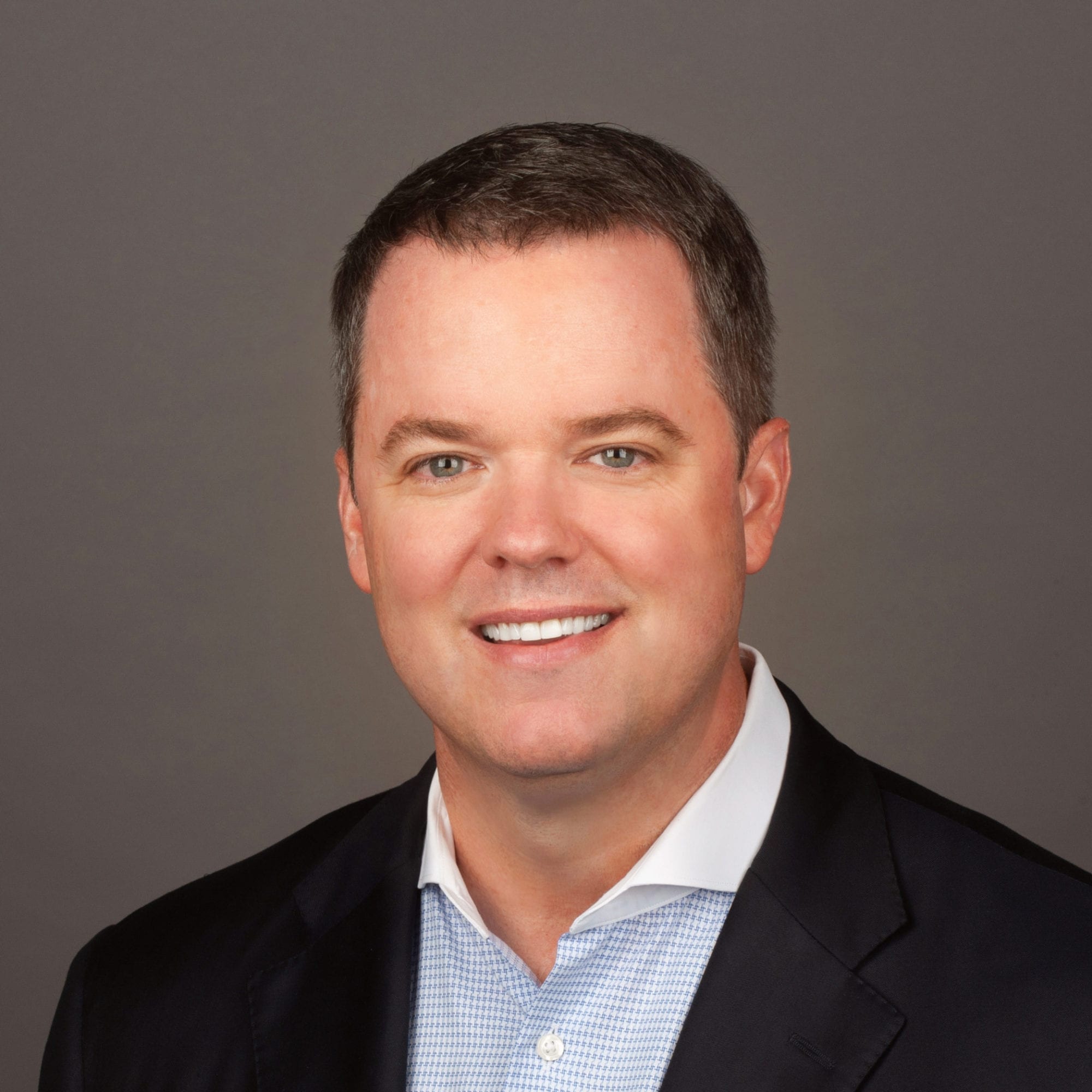
Frank McGuigan brings more than 30 years of experience in executive leadership, supply chain operations, and commercial leadership to Transplace. Since joining Transplace in 2011, Frank has been instrumental in tripling revenue and elevating the company as the leading provider of advanced logistics technology and services. Prior to his role as CEO, Frank was President and Chief Operating Officer of Transplace, where he led the company’s Logistics Technology and Services business, as well as the Cross-border and Capacity businesses. He previously served as President and CEO of SCO Logistics before it was acquired by Transplace. Connect with Frank on LinkedIn.
